Fork Farm
Norwood, NC
The Fork Farm is an exceptional sporting property and working farm located one-hour east of Charlotte, NC. The 1,460± acre farm is a very private landholding that sits at the end of a state-maintained road. It is flanked by the Rocky and Pee Dee Rivers, which join at the southern tip of the property to create the eponymous “Fork.”
A tribute to classic European field sport estates, The Fork’s multiple land uses and best-in-class components overlap effortlessly. No single pursuit defines the farm, although among the standouts are world-class equestrian facilities, highly productive quail and waterfowl programs, and multiple sporting clay and shooting courses. The quality of the operations and flexible land uses are a testament to the management and planning of the current ownership. In addition to its enviable sporting reputation, the farm has been routinely recognized for its outstanding conservation efforts. Extensive improvements are spread throughout the farm, including a main house, guest lodge, farm buildings, and phenomenal stable. The Fork proves the sum is greater than any one of its parts and represents a real estate offering of the highest caliber.
Full Photo Gallery
Overview & Facts
- 1,460± acres
- 12,100± square foot, 15-stall stable with numerous amenities
- Extensive equestrian improvements, including 4 outdoor riding arenas (2 with all-weather footing) and cross-country course
- Exceptional hunting and wildlife, including intensively managed upland habitat, timber, shallow water impoundments, and dove field.
- Two 14-station sporting clay courses, five-stand course, 65-foot tower, and accompanying gun lodge
- 1.9 miles of Pee Dee River frontage
- 1.4 miles of Rocky River frontage
- Main house with connected 3-bedroom guest cottage
- The Fork Lodge, a 9-bedroom guest lodge
- The Carriage House, a 2-bedroom guest cottage
- Miles of trails and farm roads
- Farm office, kennels, and multiple farm buildings, including a 6,000± square foot heated building
- One-hour east of Charlotte
- One hour and fifteen minutes from Charlotte Douglas International Airport and 30 minutes from Stanly County Airport
- End of the road privacy
- Offered turnkey with all farm equipment and furnishings (excluding all personal property in main house and select items as designated by the seller)
- Property is under conservation easement but contains four parcels with additional homesite
Interactive Map
Maps & Downloads
Property Details
- Property Video
- General Info & Location
- Main House, Fork Lodge & Carriage House
- Stables & Riding Arena
- History & Sporting Amenities
General Info & Location
The Fork represents true end-of-the-road privacy, further accentuated by the major rivers that border it. The property was designed as a classic field sport estate and blends recreational components with a working farm. When the owner purchased the property in 1999, the sole land use was monoculture farming. However, two decades of careful planning and steady execution have changed that. Today’s Fork Farm honors its agricultural roots but has evolved into a much more complete property with diverse land uses, strong wildlife populations, and effective conservation practices.
The topography is surprisingly varied for this part of North Carolina and encompasses open upland ridges and fields, steep headlands, hardwoods and managed timber stands, extensive river frontage, and productive bottomland. The boundaries of the property roughly form the shape of a diamond, the top half of which is a gently rolling landscape well suited to equestrian uses, agriculture, and grazing. A portion of the lower half of the diamond features similar terrain before the land drops off and transitions to fertile floodplain. Numerous steep, wooded ravines and draws punctuate the change in topography.
Location
The Fork Farm lies in the far Southeast corner of Stanly County, a rural part of south-central North Carolina, where agriculture and timber are the most common land uses. The nearest town is Norwood, a five-minute drive from the farm. Other nearby towns include Mt. Gilead, Troy, and the county seat, Albemarle. All are within 25 minutes of the farm and feature a wide array of amenities. The nearest city, Charlotte, is approximately one hour to the west.
The farm is within driving distance of a number of major metropolitan areas and cities, and the closest major airport, Charlotte Douglas International, is one hour and fifteen-minutes away. The airport ranks among the top five “mega hubs” in the United States, making it one of the most connected airports in the country. Less than 30 minutes from the farm is Stanly County Airport, which has a 5,500 foot runway suitable for private jet access.
Cities and major metropolitan areas in the region include:
Charlotte, NC ~ 52 miles
Greensboro, NC ~ 72 miles
Winston-Salem, NC ~ 78 miles
Raleigh, NC ~ 109 miles
Greenville, SC ~ 161 miles
Charleston, SC ~ 207 miles
Atlanta, GA ~ 300 miles
Locale
The rural area surrounding The Fork offers many opportunities for outdoor recreation, including golf, hiking, and boating at Badin Lake and Lake Tillery. One hour east of the farm is Pinehurst, home of the historic Pinehurst Resort and its renowned golf courses. For those seeking more urban pursuits, North Carolina’s largest city, Charlotte, is only an hour away. Nicknamed the Queen City, this financial and cultural hub is one of the fastest growing cities in the Southeast. The easy accessibility to a vibrant and sophisticated metropolitan area is a great asset to The Fork and provides an excellent counterpoint to the farm’s rural setting.
Climate
Summers in this area are warm and humid, and temperature average in the 80’s and 90’s. Spring and Fall feature delightful weather with lower humidity and highs in the 70’s, and cooler temperatures at night. Winters are enjoyably mild with highs in the 50’s and average low’s in the 30’s. Average annual rainfall is 47 inches, and snow is infrequent.
Acreage
The Fork Farm measures 1,444± acres and covers a variety of terrain. Approximately 60 percent of the farm is wooded, comprised of a mixture of hardwoods, planted pine, and managed pine savanna. The remaining acreage is open and encompasses paddocks, fields, cropland, and native upland habitat. Elevations at The Fork vary from 200-350 feet above sea level. Within that range, the overwhelming majority of the land has a slope of less than 15 percent, making it ideal for any number of land uses or recreational pursuits.
Utilities
Fiberoptic internet service was recently extended to The Fork. Fiber internet is not common in rural areas but is increasingly essential for today’s landowners and remote workplaces. The owner also extended municipal water to all of the buildings on the property, while the remainder of the farm’s operations are serviced by wells and an extensive irrigation system that draws from the river.
Temporary Stables & RV Hook-ups
For events and visiting equestrians, there are 32 temporary stalls totaling 8,000± square feet, along with 26 RV sites that have electrical and water hookups. These are located near the main gates but can also be reached by a separate entrance.
Main House, Fork Lodge & Carriage House
The Main House
The main house is the result of years of planning. It seamlessly blends into the surrounding landscape and celebrates the Fork’s sporting lifestyle with elegant and comfortable living spaces. The LEED certified home (silver level) exemplifies craftsmanship and efficient design. The mostly one level house flows around a central great room with living and dining areas and a kitchen. Adjacent to that is a secondary prep kitchen and large mudroom. Beyond the great room, the floorplan transitions to more intimate spaces including a library, office, and expansive master suite. Downstairs there is a large family room with a full bar, as well as a wine cellar and precisely organized utility rooms.
The approximate combined square footage of the main house and guest house is:
Heated – 6,355 SF
Unheated – 921 SF
Other (porches, breezeway, etc) – 1,630 SF
Patios – 1,106 SF
The house, like the farm, emphasizes outdoor living and has a deep porch with an outdoor fireplace, accompanied by multiple seating and dining areas spread over an expansive patio. Just off of the lower level of the house is an attractive swimming pool surrounded by additional hardscaping and seating areas.
A breezeway connects the main house to the adjacent two-story guest house. The three bedrooms all have en suite bathrooms, and downstairs there is a kitchenette and laundry room.
The Fork Lodge
The Fork Lodge is a 7,700± square foot guest lodge that accommodates The Fork’s overnight visitors. The Lodge has nine spacious and well-appointed guest rooms, all with private bathrooms. At the center of the Lodge is a shared common area with a comfortable seating area, full kitchen, and large fireplace that is perfect for gathering around after long days in the field. Outside, a deep porch lined with rocking chairs overlooks the surrounding paddocks.
The Carriage House
The carriage house is a recently renovated 1,600± square foot, two-bedroom guest cottage. It is conveniently located next to the stables.
Stables & Riding Arena
The Fork Stables
The Fork Stables are an outstanding 12,100± square foot, full service, state-of-the-art equestrian facility. During the design process, the owner told his architect he wanted a first-class facility that could also accommodate a black-tie supper in the main aisle. Amazingly he and his team achieved exactly that. The center-aisle structure features 15 stalls, three wash racks, a veterinary lab, private office, laundry area, locker room, and a conference room with a gourmet kitchen.
Riding Arena & Cross Country Course
There are two all-weather arenas, built by Equestrian Surfaces Inc. The “Large Grande” arena is 80 X 110 meters (262’X360’) and the “Small Grande” arena is 50 X 90 meters (164’X295’). The footing is a combination of Eurofelt, stone dust, and RX rubber. There is also a 105’X238’ sand arena adjacent to the barn, as well as a 180’X285’ grass arena.
Farm Buildings & Infrastructure
Farm operations are centered in two areas. The first is a 900± square foot office sited near the entrance that houses the clerical side of the farm. The second is a separate cluster of farm buildings for the maintenance operations. Among these structures is a 6,000± square foot heated and insulated building, efficiently designed for year-round equipment maintenance and storage. This area is also home to The Fork’s kennels.
History & Sporting Amenities
History
The Fork boasts a rich history. It begins with “The Fork” itself, where the Rocky River joins the Pee Dee River. Strategic positions like these have always been prime real estate, and for thousands of years, this site has attracted people of all cultures, occupations, and walks of life. Evidence of this history reveals itself in sunken carriage roads, Native American fish weirs, and vestiges of the Revolutionary War.
The Cheraw tribe of the Siouan Nation is thought to have been the first human inhabitants of the area around The Fork. Later, during the 15th and 16th centuries, Native Americans from the Pee Dee River valley migrated up the river from South Carolina, settling in the area and replacing the previous Siouan inhabitants and culture.
In the mid-1700s, European settlers began moving to the Southern Piedmont, and records from 1748 recognize the Colson family as the first large scale landowners in the area. In 1771, Anson County (of which Stanly County was then a part of) issued John Colson a permit to operate an “ordinary”, or inn, where food, drink, and lodging were available to travelers. The Ordinary was described as a large, two-storied log structure with a space between two sections of the building wide enough for a carriage to drive between – a large “saddle bag” log cabin. Records show that this “ordinary” was the first licensed tavern in North Carolina and was located along the King’s Highway, most likely on the present-day Fork Farm. Sections of the King’s Highway still exist and farm visitors can walk and ride the sunken roadway much as they would have 250 years ago. Records exist of a Revolutionary War battle, and there is ample evidence to suggest that George Washington may well have been a guest at Colson’s on a tour of The South.
When the Colsons owned The Fork, it’s likely the land was mostly forested with dense hardwoods. However, beginning in the early 19th century, owners and farmers cleared portions of the land to grow crops such as corn, cotton, and soybeans, which aided in shaping the land as it is today. Additionally, those who grew crops logged the hardwoods periodically without any type of systematic program for renewal.
The Fork began its most recent chapter in 1999 when the current owner purchased the property. Today’s version continues to draw on the history and uses that came before it, albeit with significantly different focuses and sustainable land management practices.
Recreational Considerations
Equestrian
Equestrian activities are a major focus at The Fork, and the facilities are remarkable. The farm welcomes all riding disciplines but specializes in three-day eventing. For many years the farm was the site of the Fork Horse Trials, one of the most prestigious competitions on the North American Eventing calendar. The equestrian program is organized around the centrally located barn, which is surrounded by paddocks and riding arenas.
The cross-country course winds through the center of the farm and is a standout feature – and not just for equestrians. Stands of warm-season grasses, legumes, and annual crops form the borders of the course, which doubles as excellent upland wildlife habitat. In the winter months paths and shooting lanes are cut within the stands, and when horses aren’t running, hunters and bird dogs take their place.
Finally, the extensive trail system benefits riders as much as anyone and creates endless opportunities for trail riding. The remarkable design and diversity of The Fork make it an outstanding home for all equestrians, from novices all the way up to top professionals competing on the international circuit.
Hunting & Wildlife
The hunting program is a top priority at The Fork and runs throughout the farm. Quail are a big part of this, and quail courses cover large portions of the property. This includes a 200± acres block of managed pines, developed through years of selective harvests and habitat management. From here, the courses extend outward weaving around the impoundments, annual crop fields, and through the cross-country course.
Adjacent to the rivers, the rich soils of the 200± acres of bottomland are a cornerstone of The Fork’s wildlife management. Fields are planted in annual crops and contain hedgerows and established borders of perennial forage, warm-season grasses, and early succession. Within this acreage are two shallow water impoundments (30 acres and 15 acres). The impoundments are planted annually in sorghum, and the edges are carefully managed to create transition zones and cover for waterfowl and hunters alike. Multiple blinds are situated through the impoundments.
Thousands of trees have been planted in the floodplain over the past 20 years and have matured with excellent success into hardwood stands. These buffer zones greatly enhance wildlife habitat while also stabilizing the riverbank and floodplain. The remarkable scale of this conservation effort is indicative of the practices and improvement projects regularly undertaken at The Fork.
A large dove field is planted annually near the river, and as the season progresses, it’s transitioned into additional upland habitat. The deer hunting on the farm is also topnotch and the population is actively managed. Tree stands and tower blinds are carefully sited around the farm and take advantage of the expansive trail network and variety of habitat and terrain.
Sporting Clays & Shooting
As mentioned previously, The Fork features two 14-station sporting clay courses, a covered five-stand, and a 65-foot tower/flurry. Many of the stations have been interspersed throughout portions of wildlife habitat and hunting areas, providing excellent simulations of live quarry targets.
Trails
The miles and miles of trails are one of the most impressive recreational assets at The Fork. They access all corners of the farm and benefit all users. The opportunities for riding, hiking, mountain biking, and ATV’s are endless, and users could go all day without retracing their footsteps.
Fishing and Kayaking
There are several ponds on the farm, and the main pond between the house and barn is regularly stocked. In addition, there are multiple put-ins at the rivers, offering excellent kayaking, canoeing, and fishing.
“The Ordinary” (Gun Lodge)
The Ordinary is The Fork’s gun lodge and the center of the sporting clays and shooting program. The building is a wonderful nod to history and is modeled after The Colson Ordinary, a former stagecoach stop on the property that began operation in 1771.
Sporting Clays & Shooting Courses
There are two 14-station sporting clay courses at The Fork that cover a variety of wooded and open terrain. In addition, there is a covered five-stand and a 65-foot tower/flurry. All traps and target throwers are Promatic machines. The courses were originally designed by renowned shooting instructor John Higgins and updated over time by the current owner, an avid and accomplished shot.
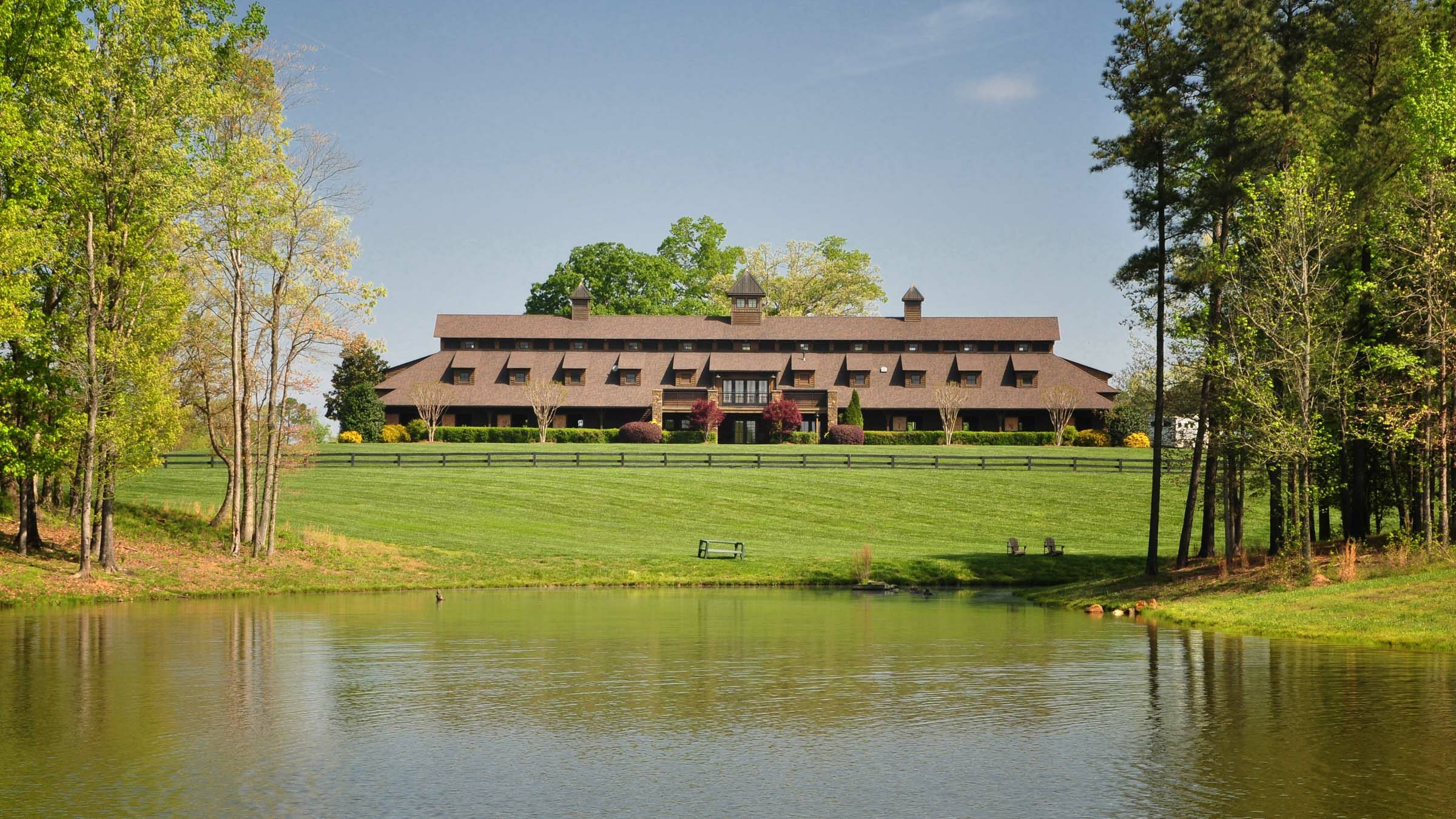

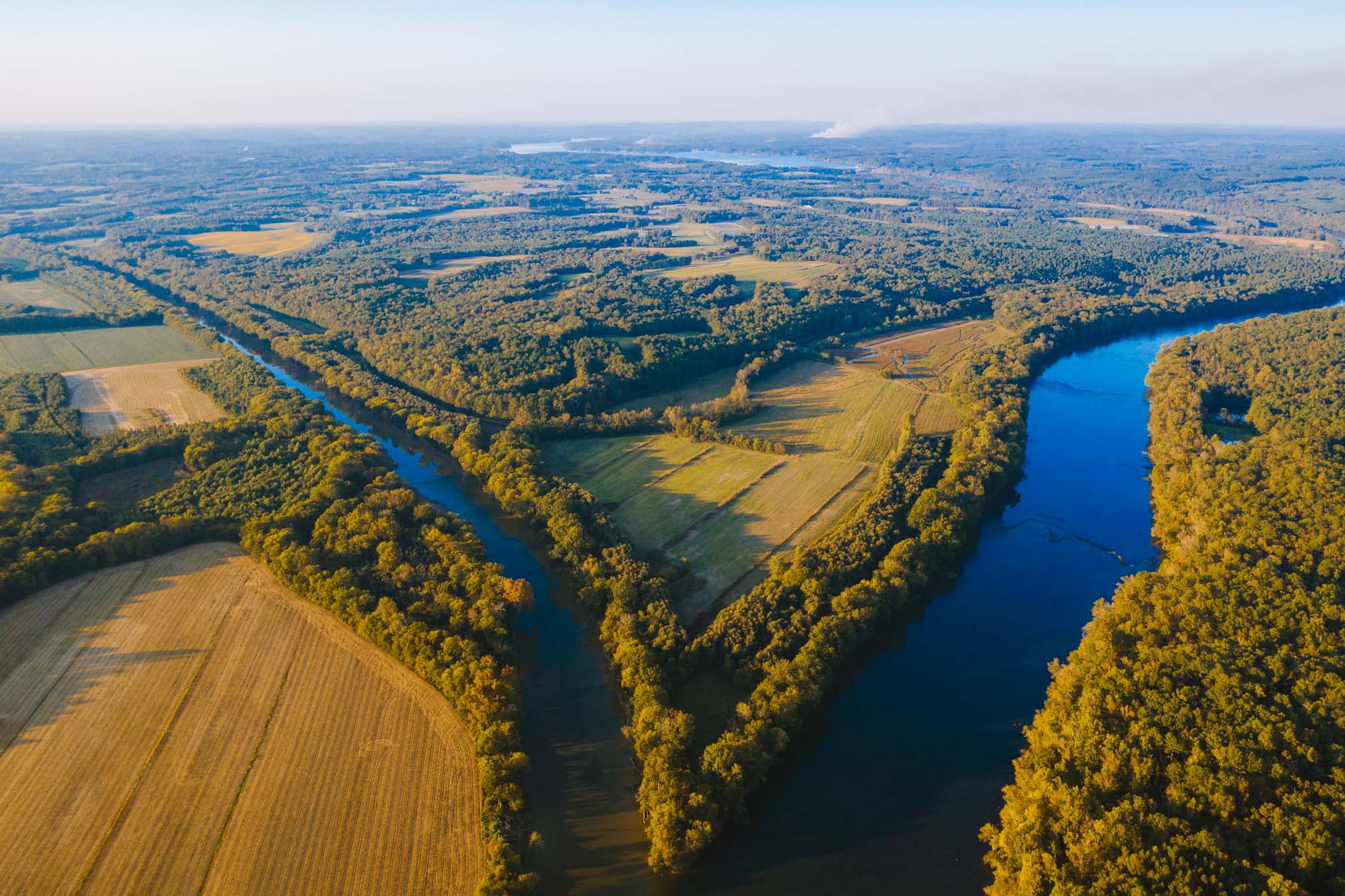











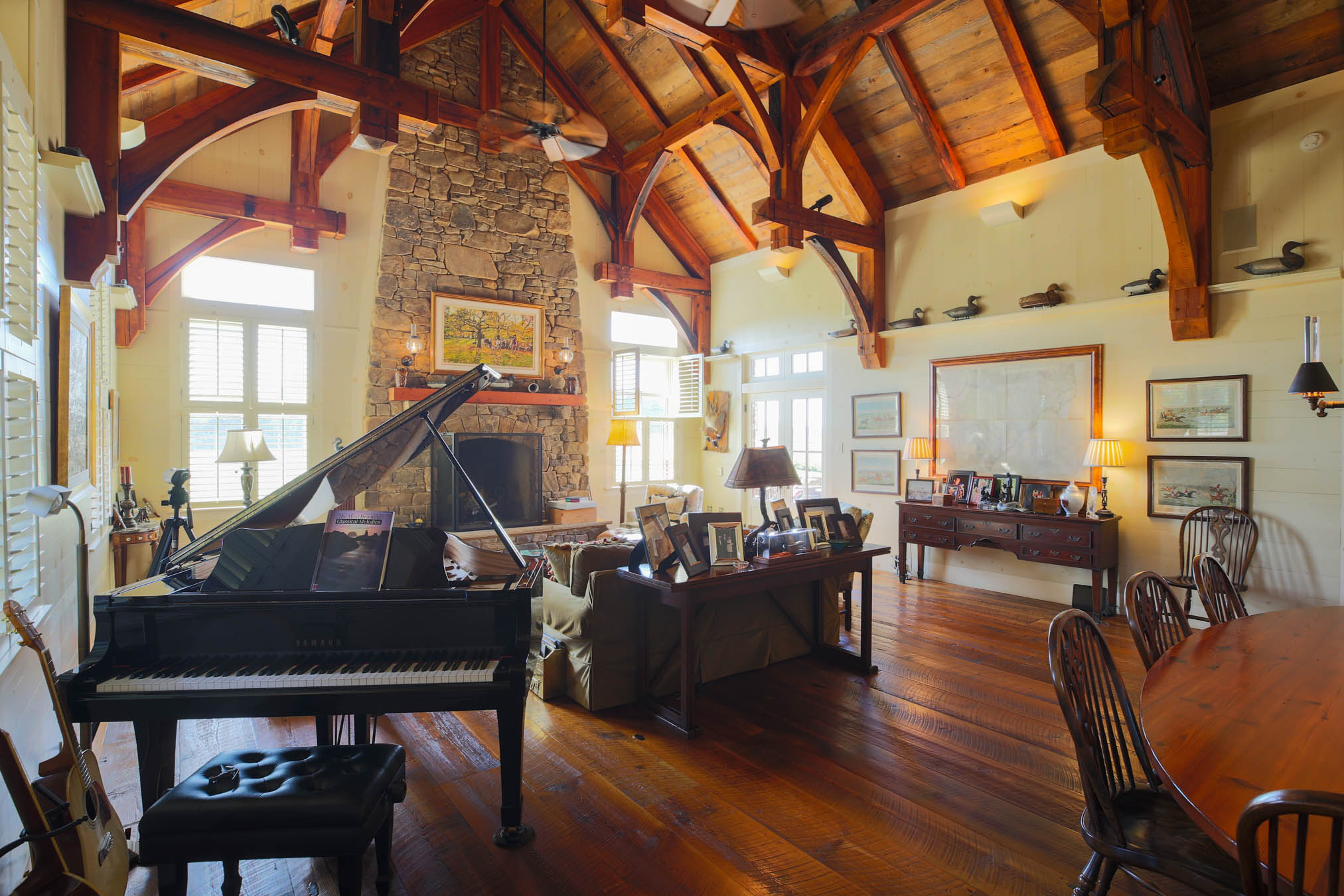
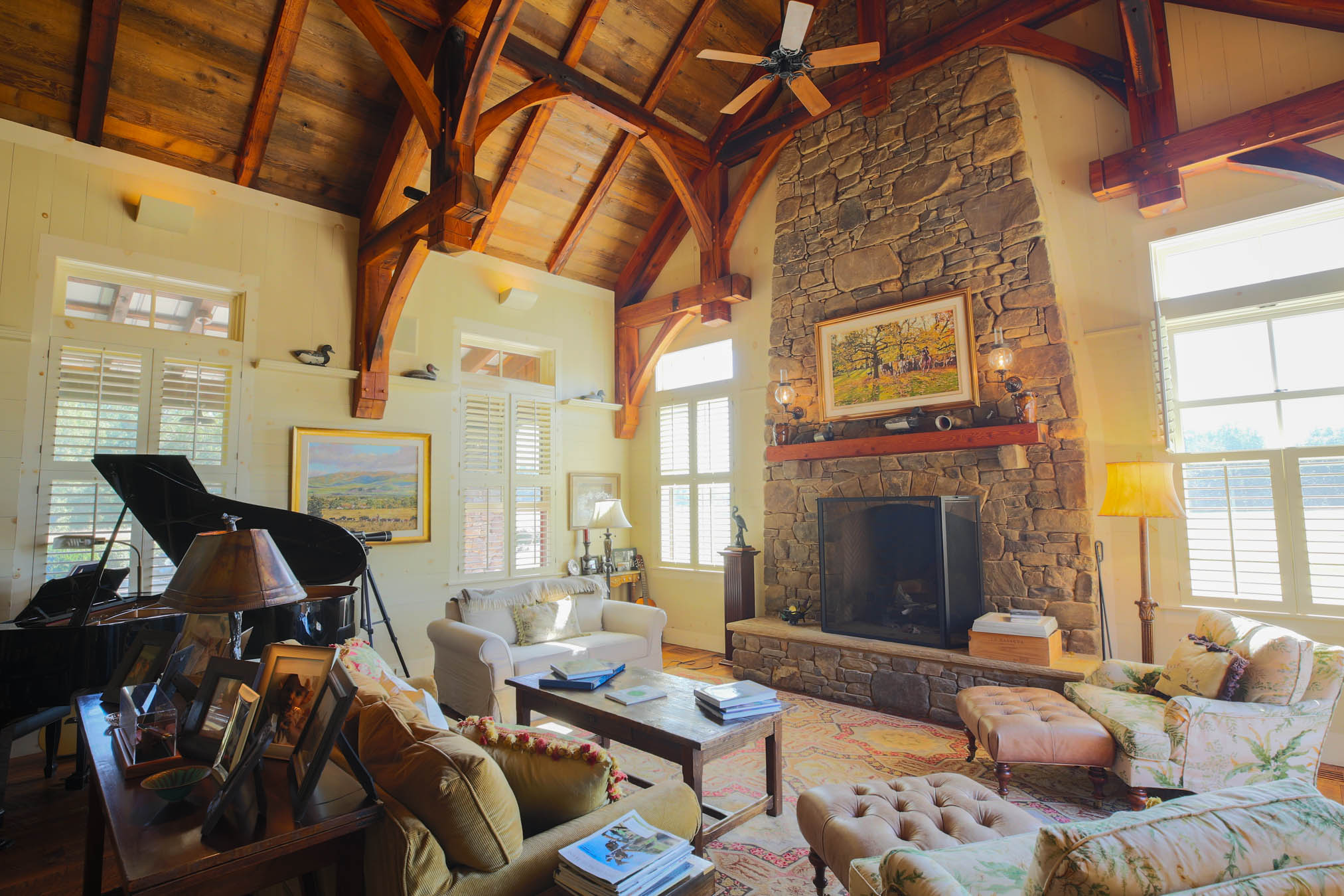

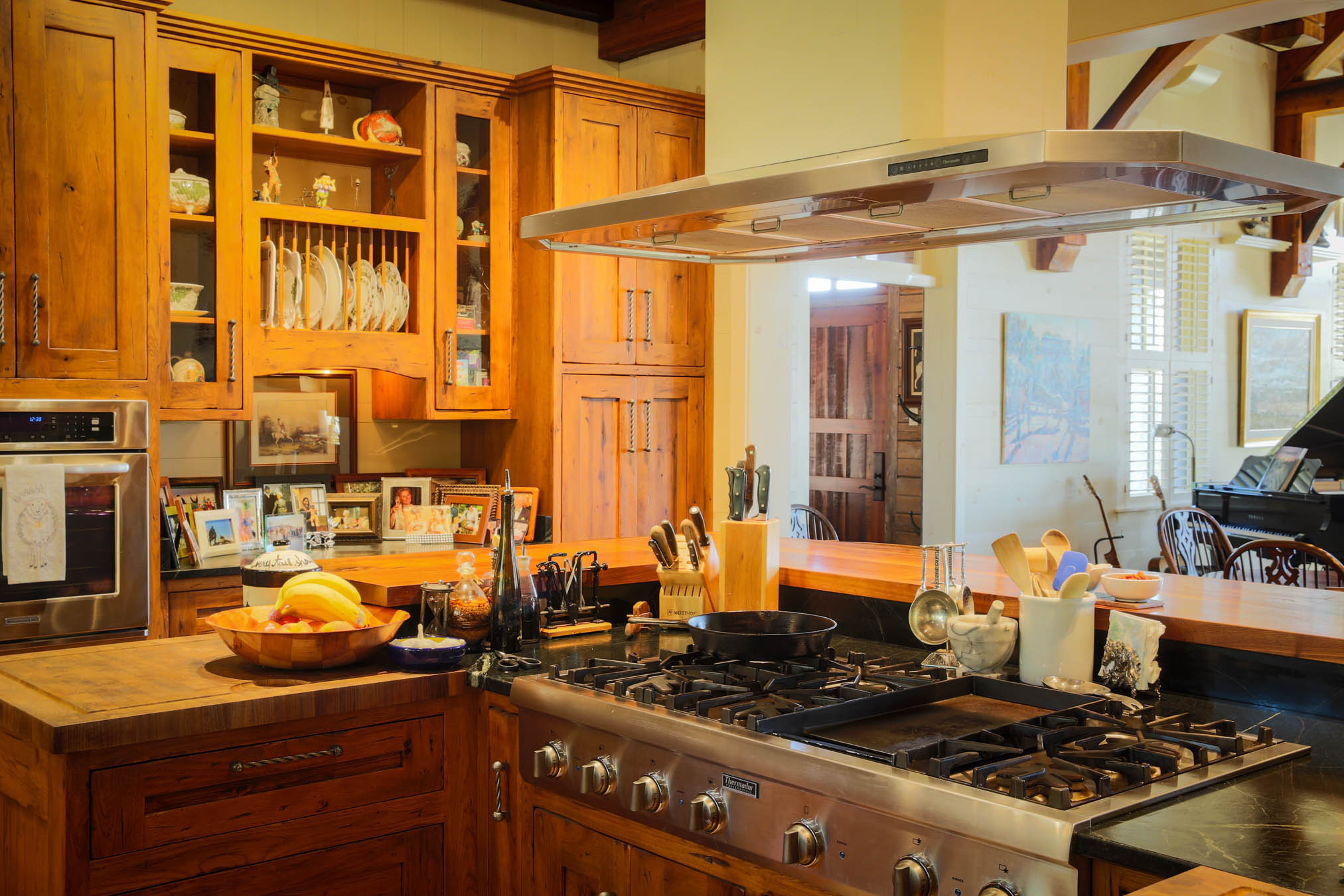


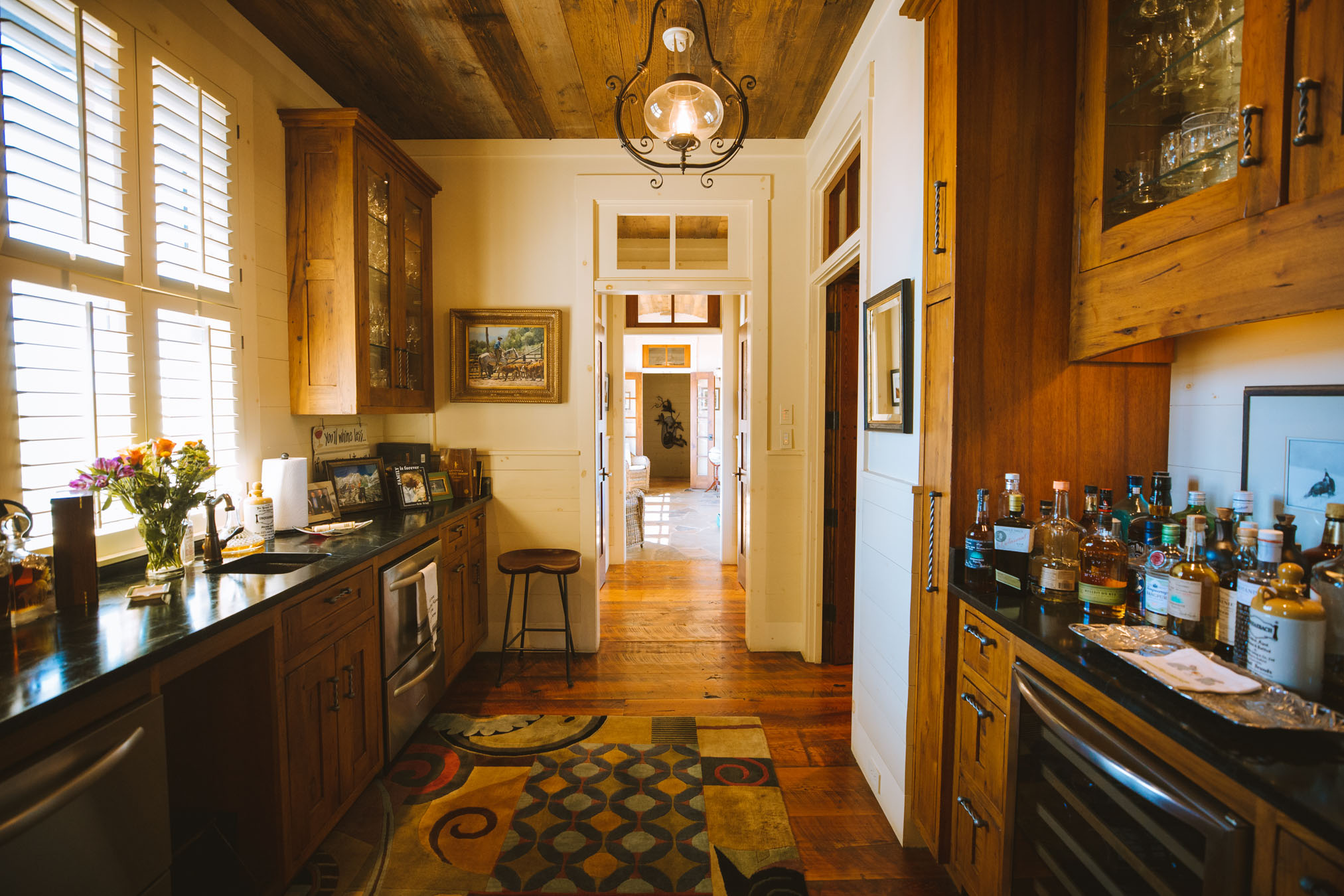
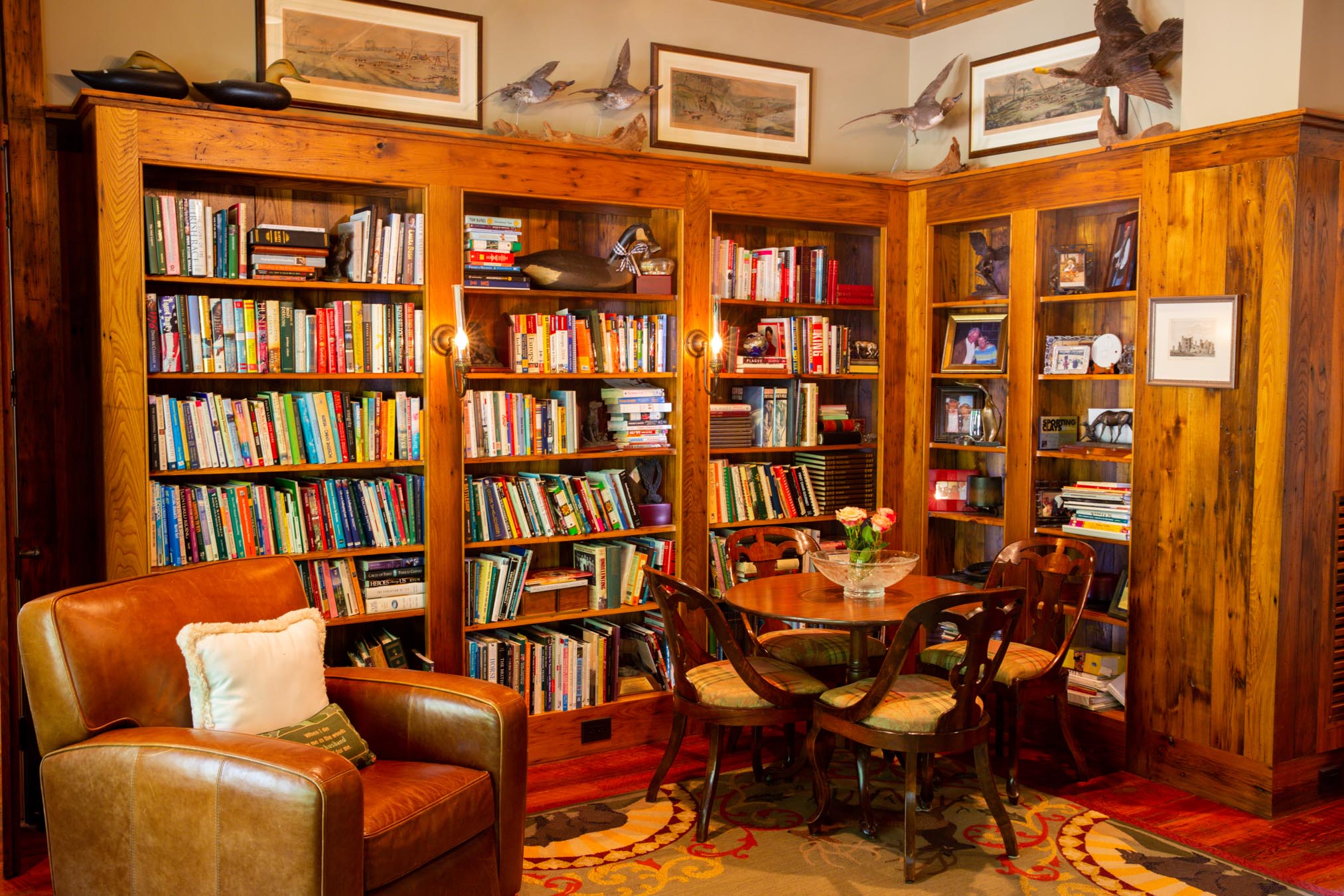
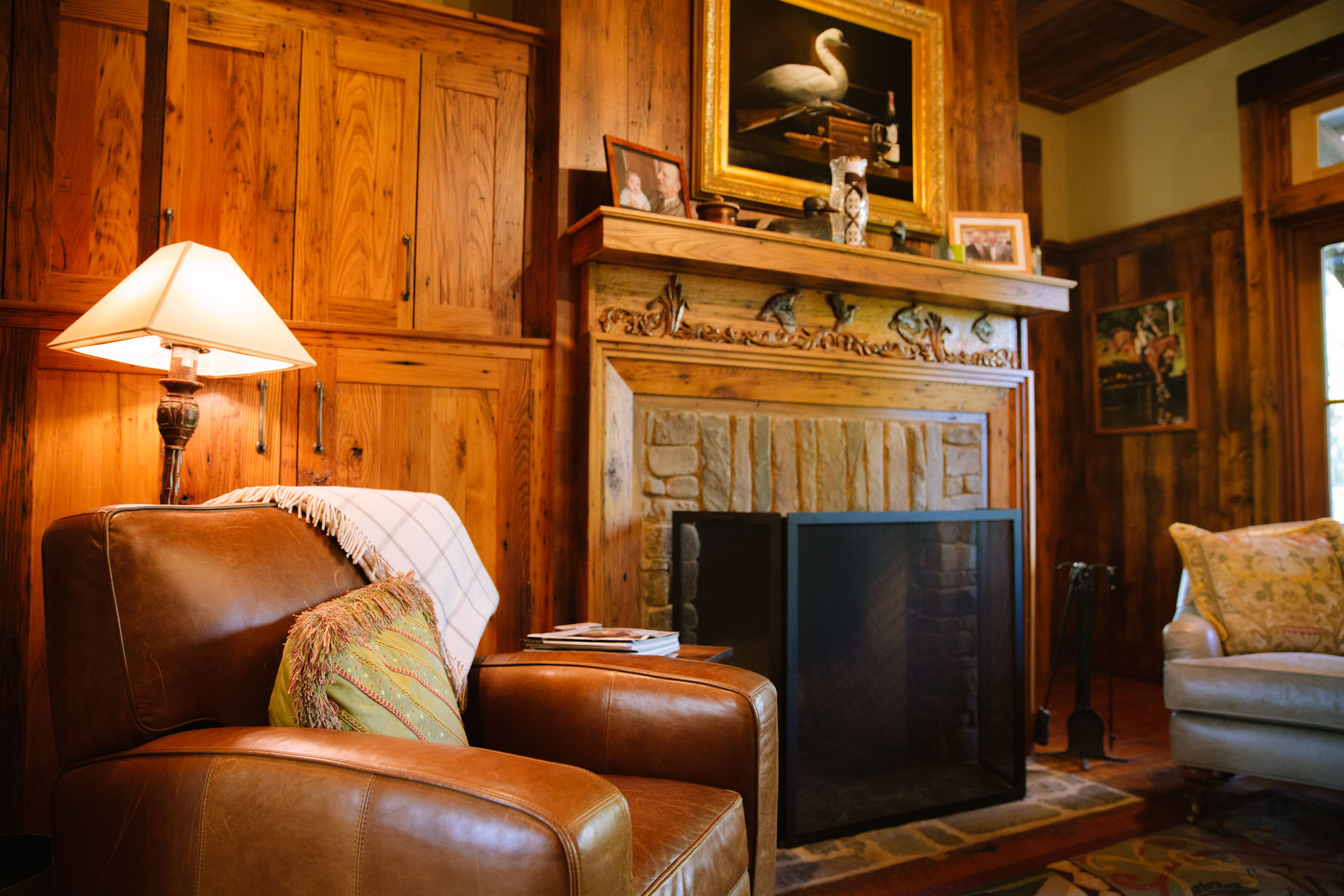
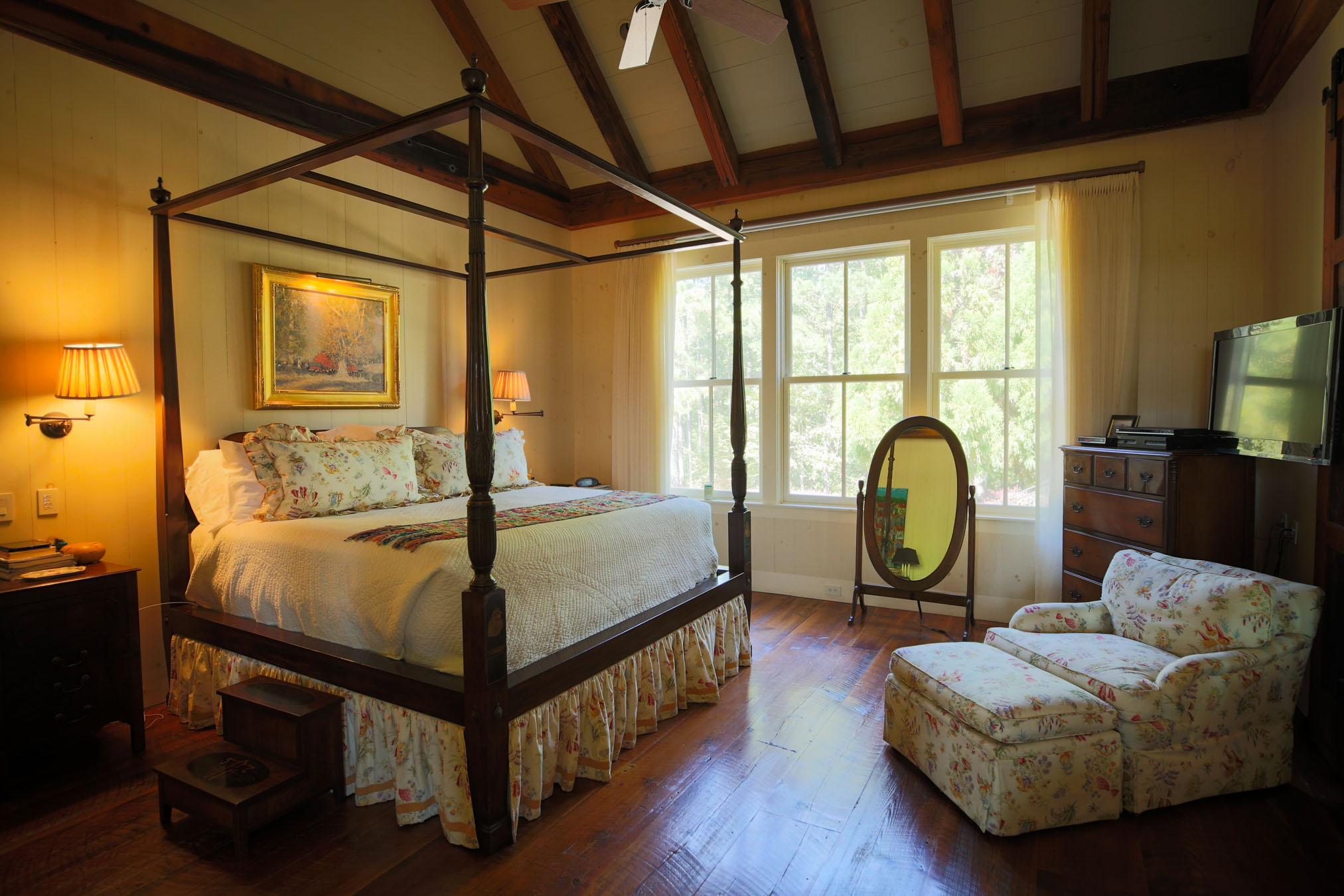
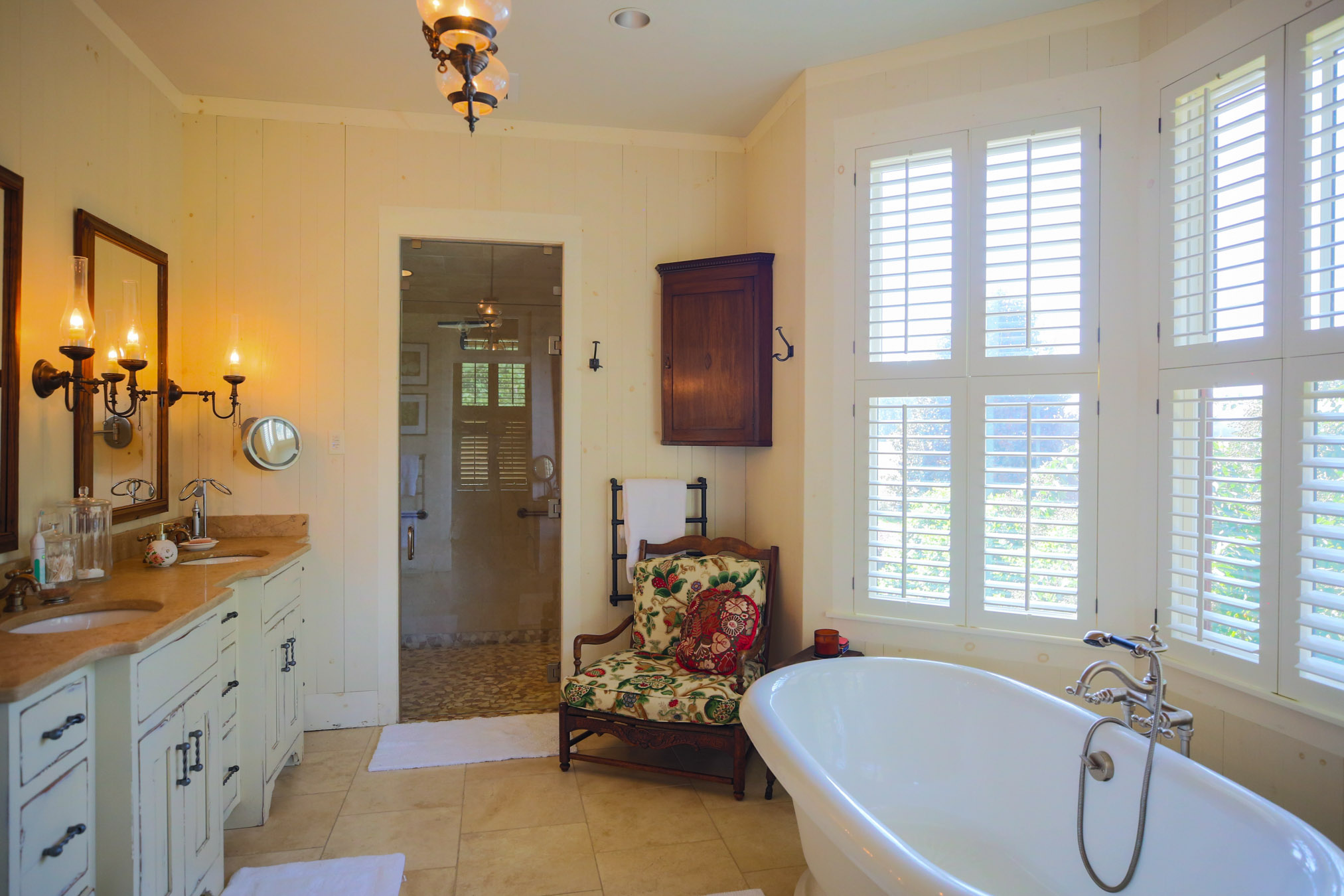
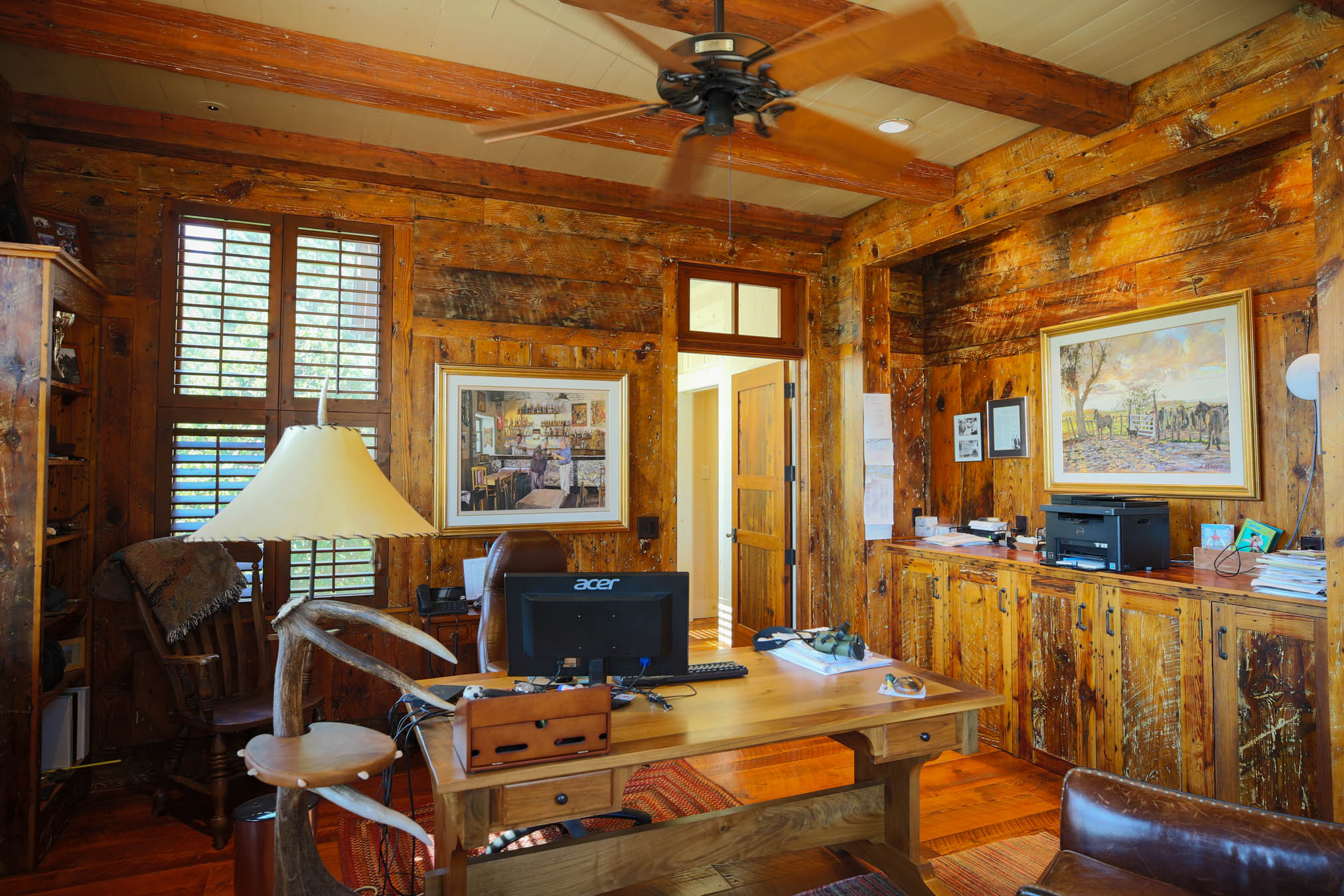
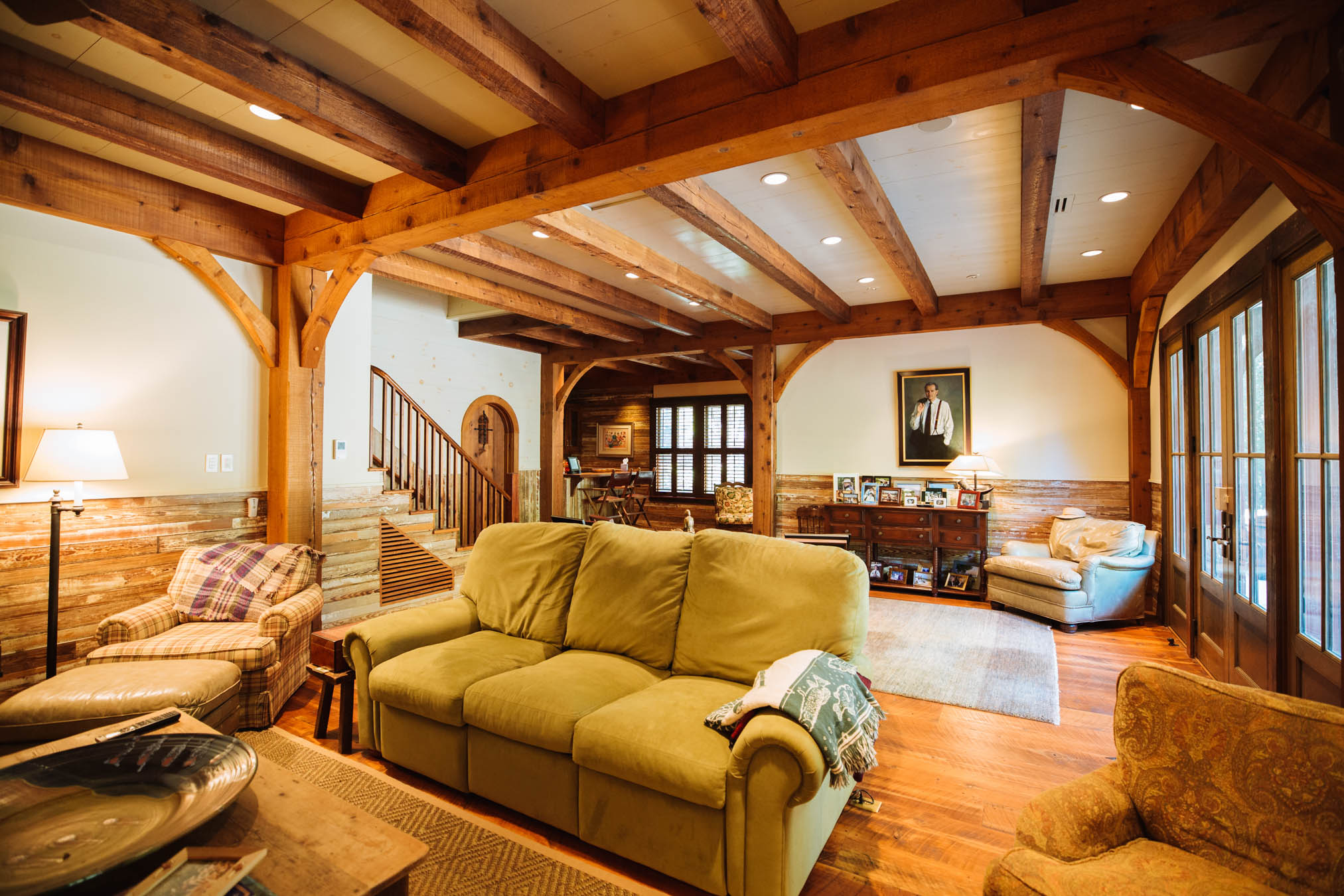
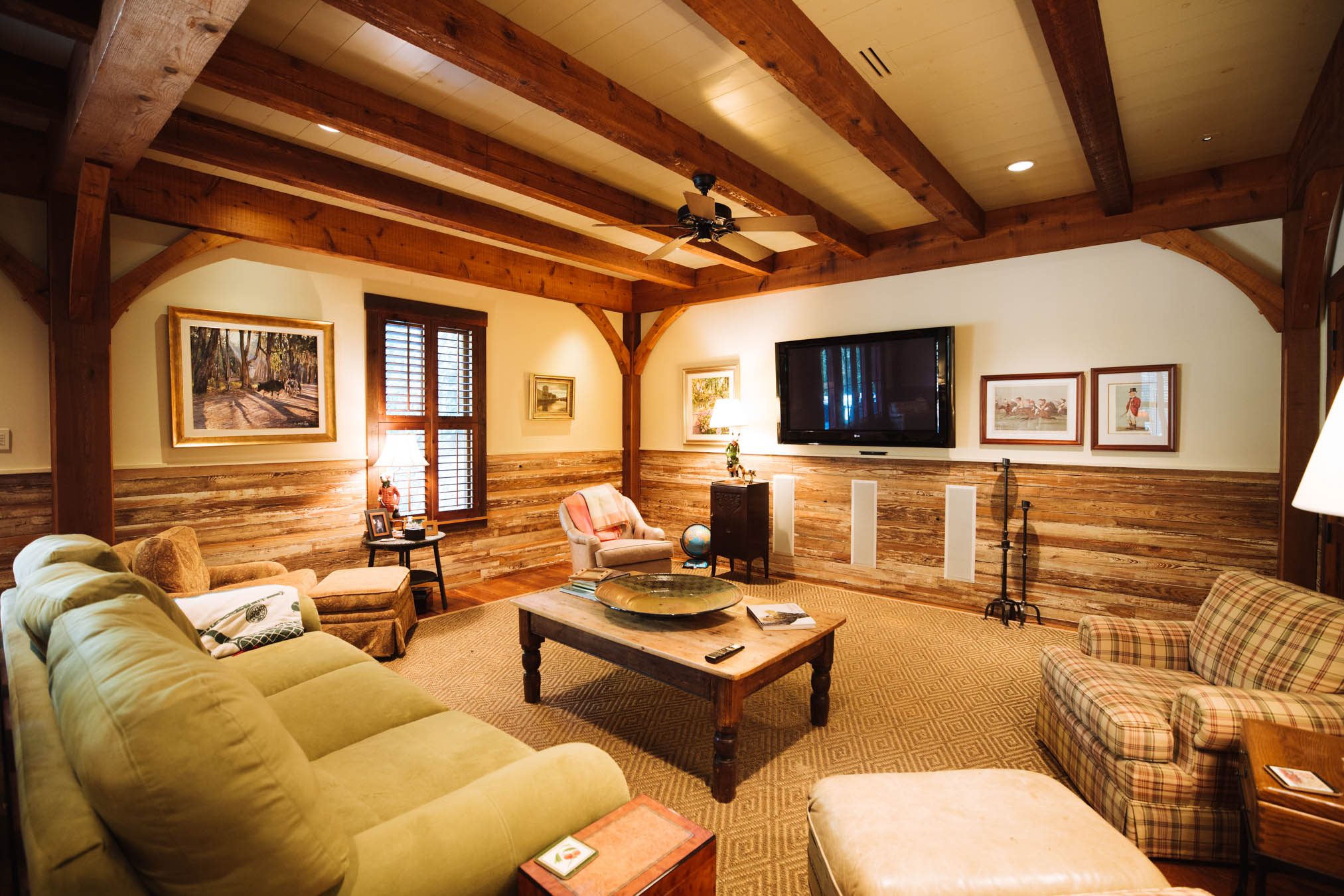
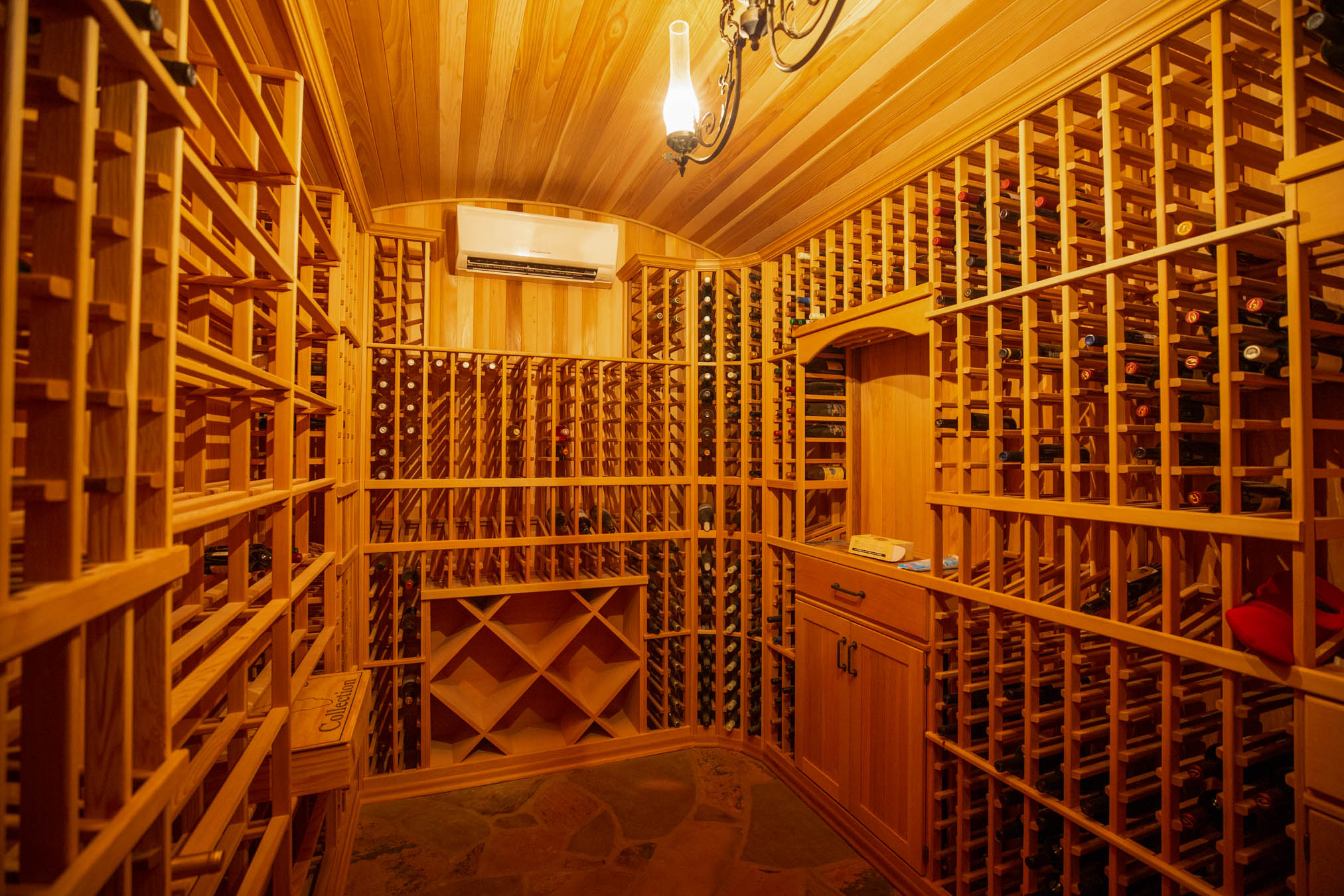
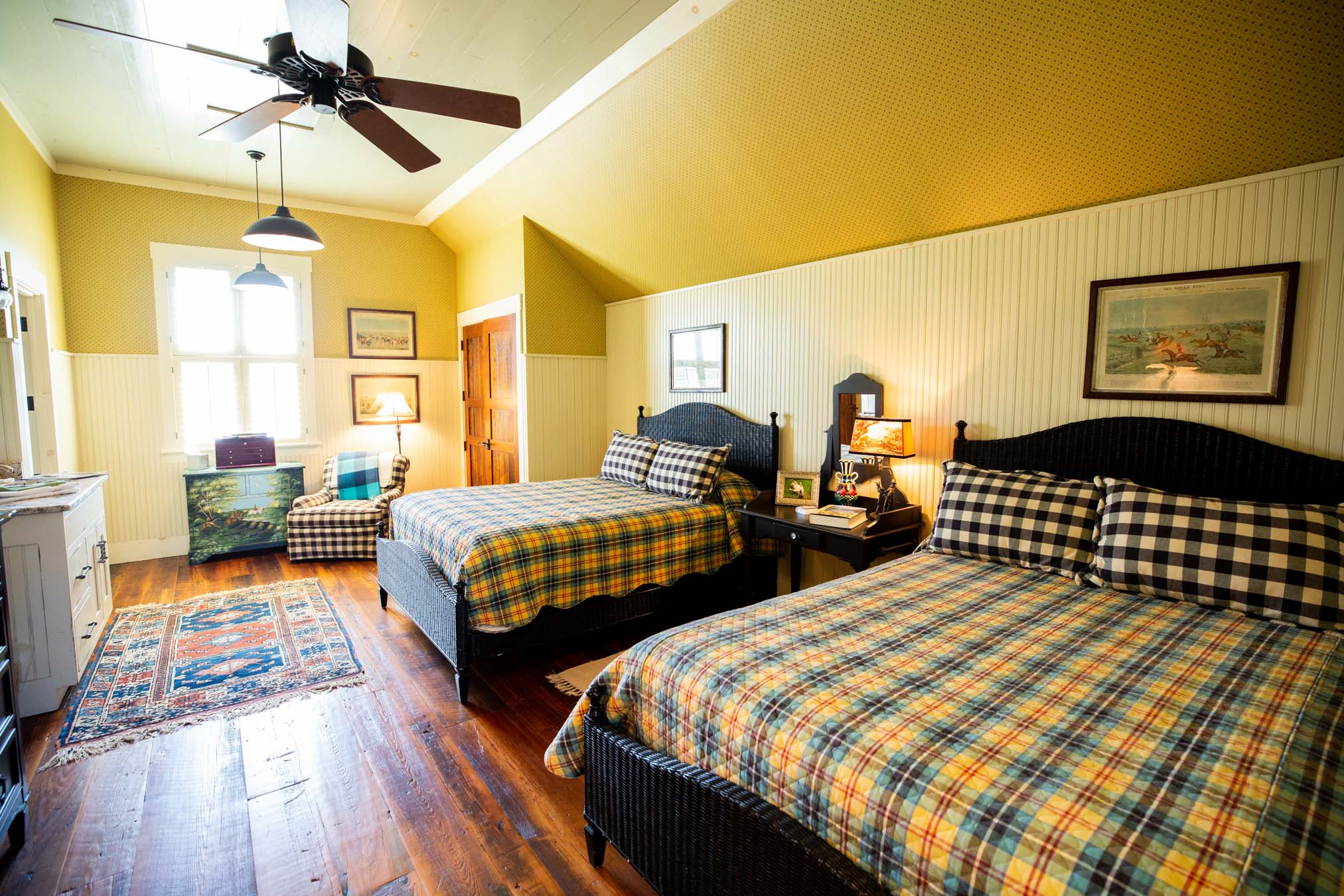
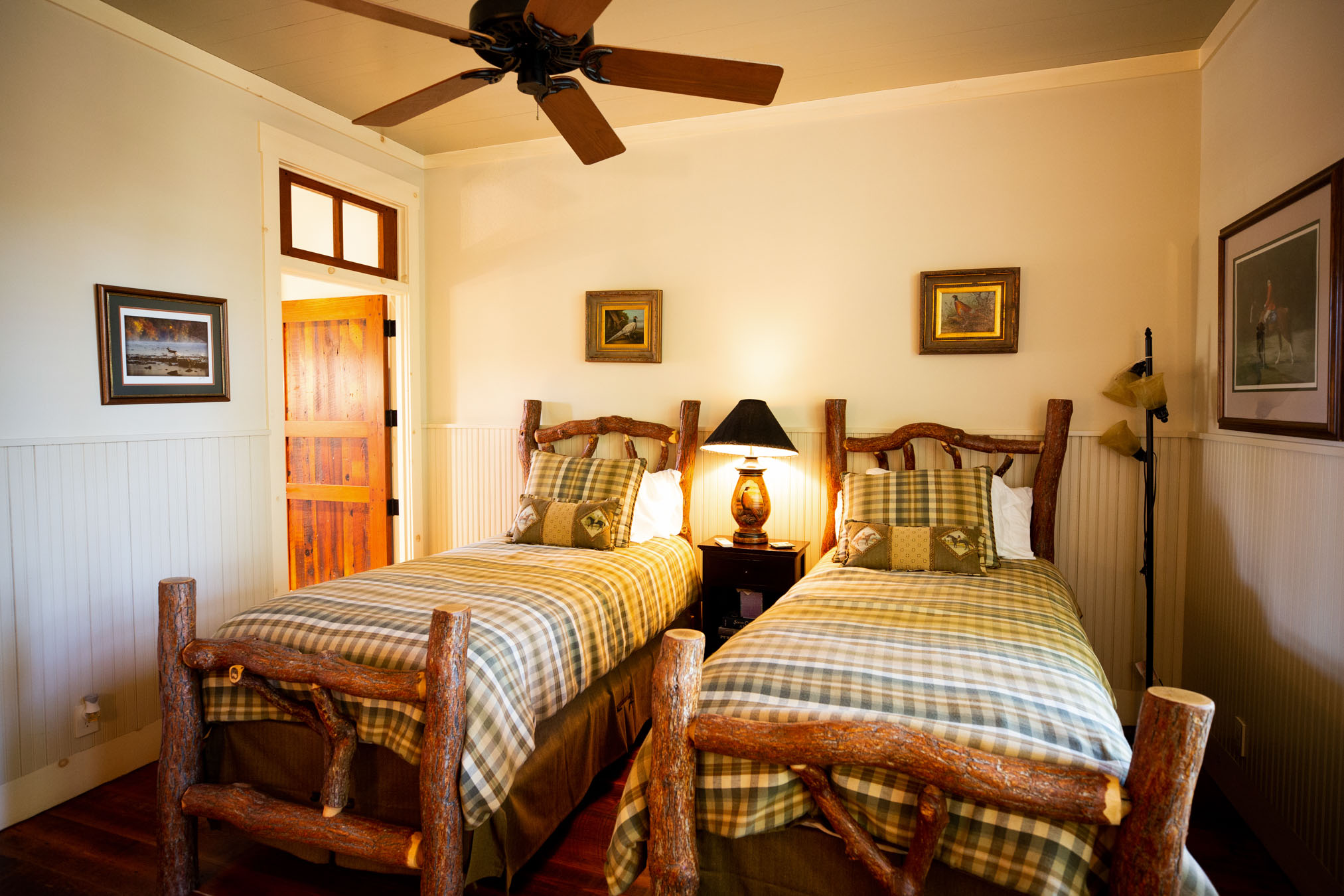
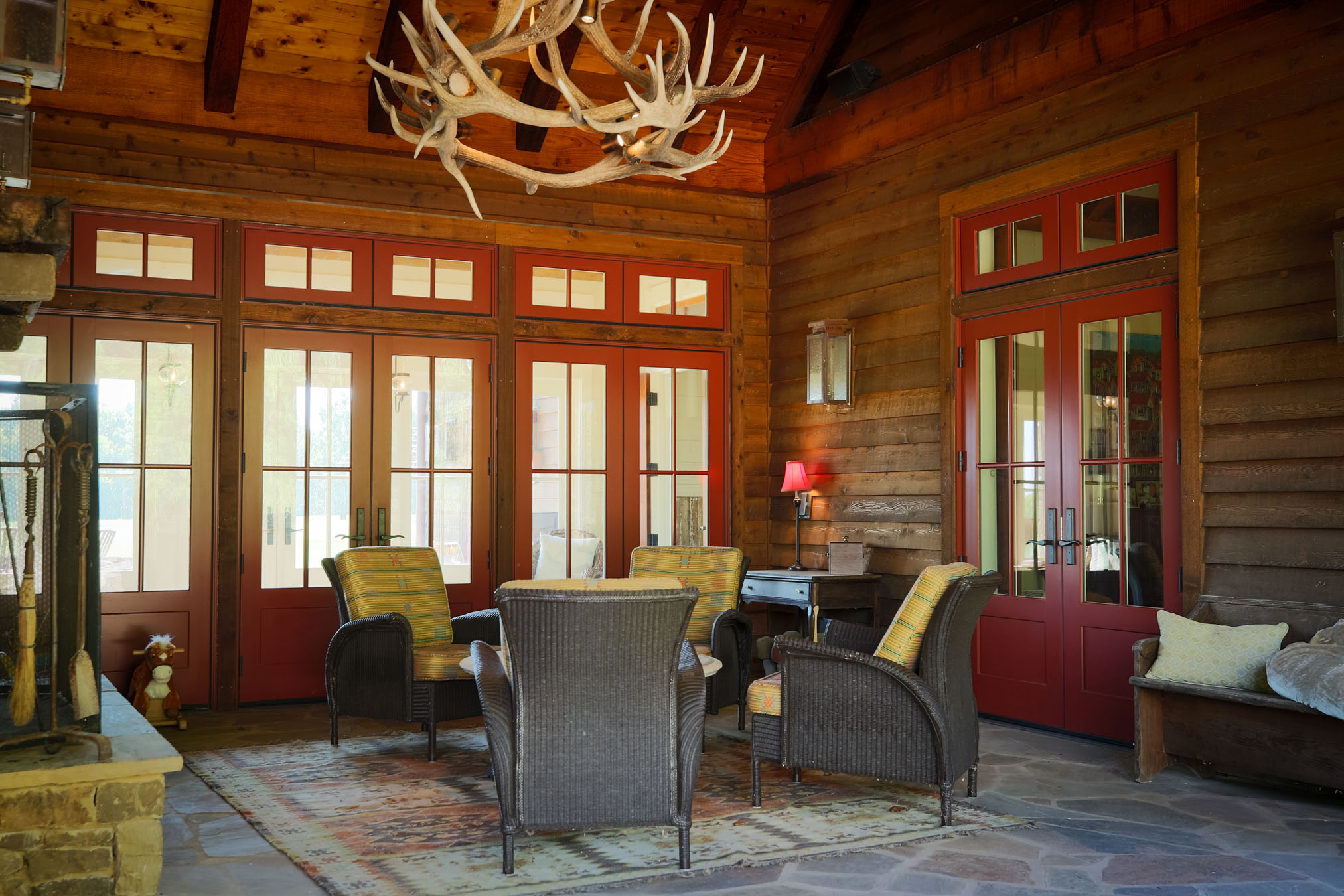
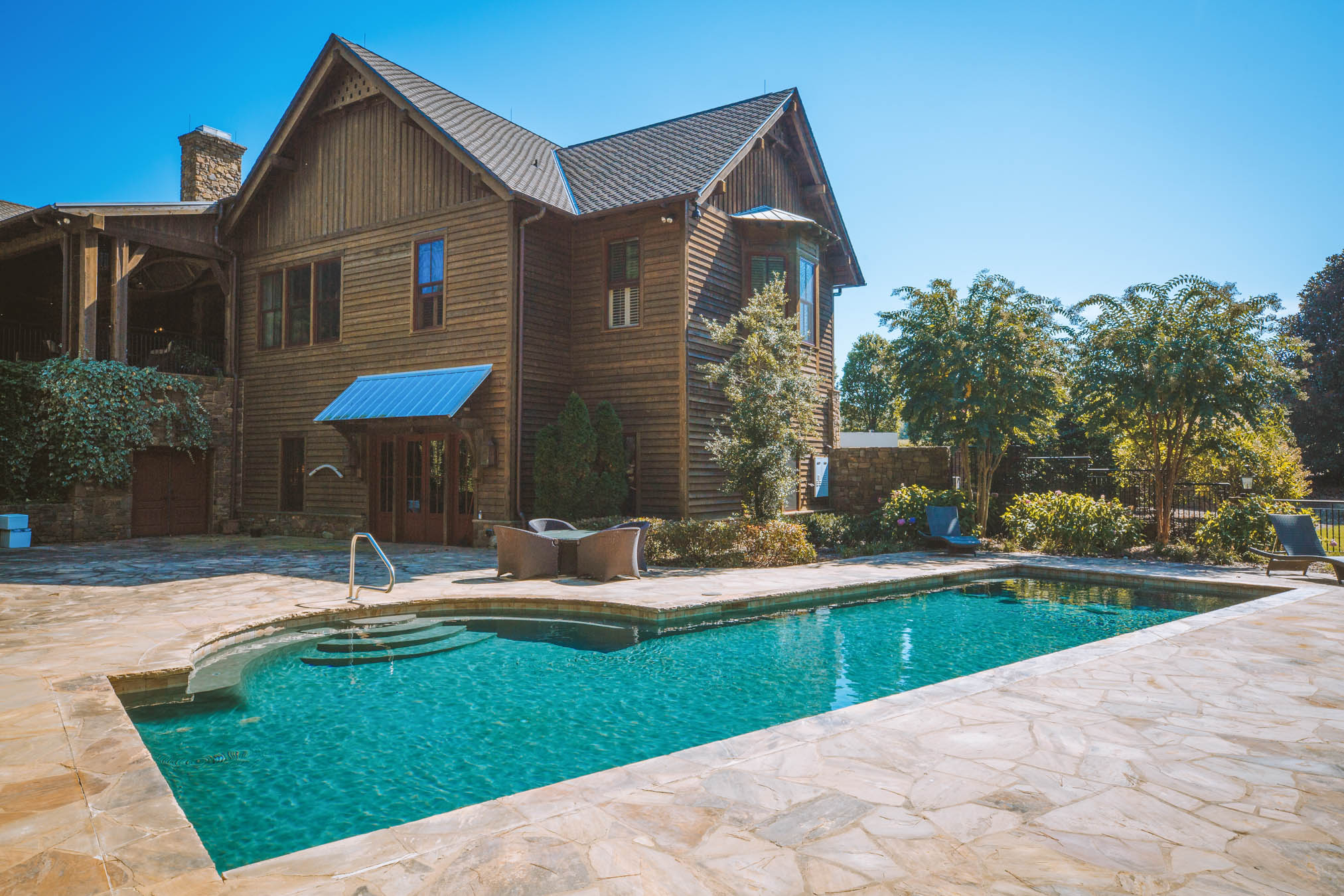
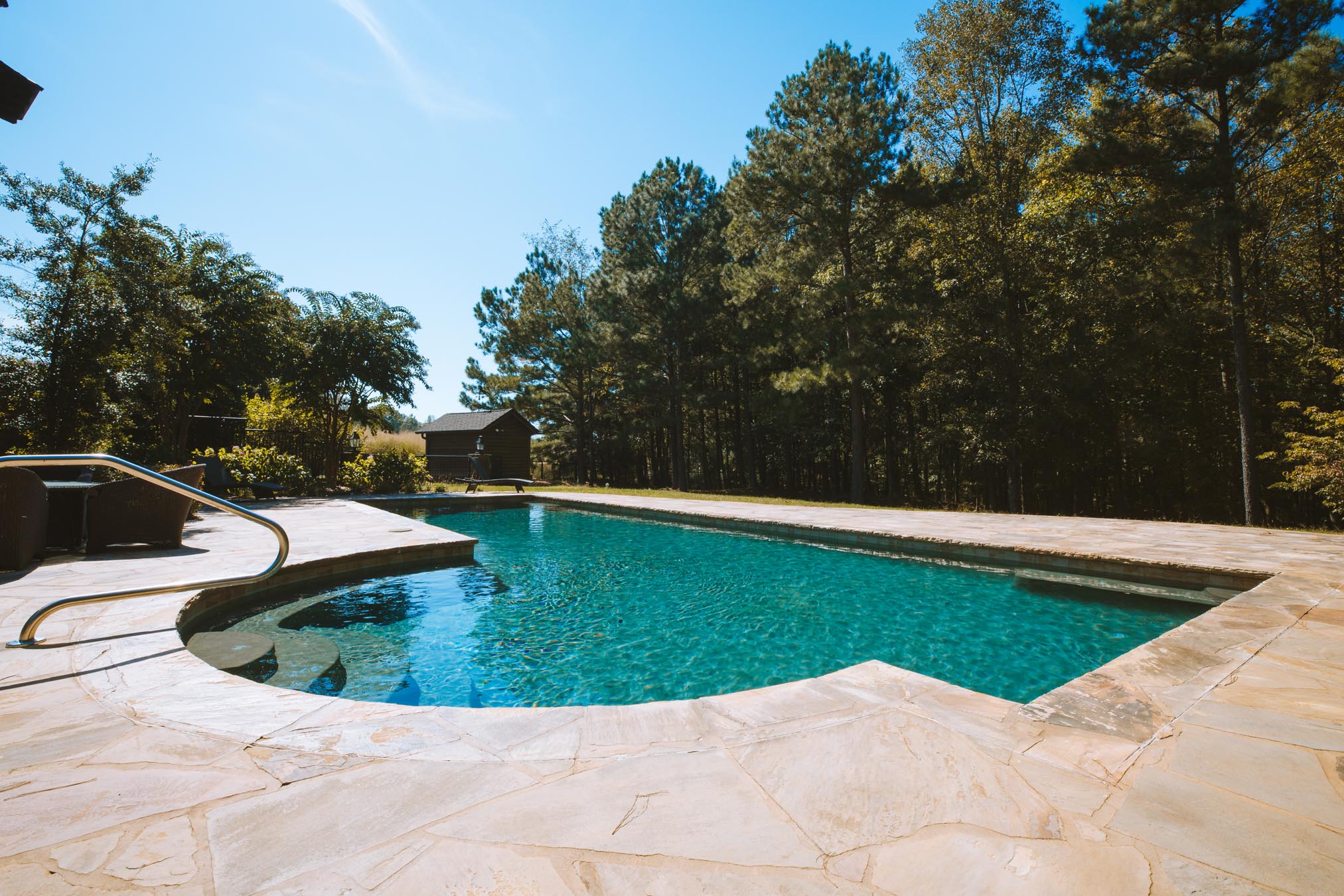
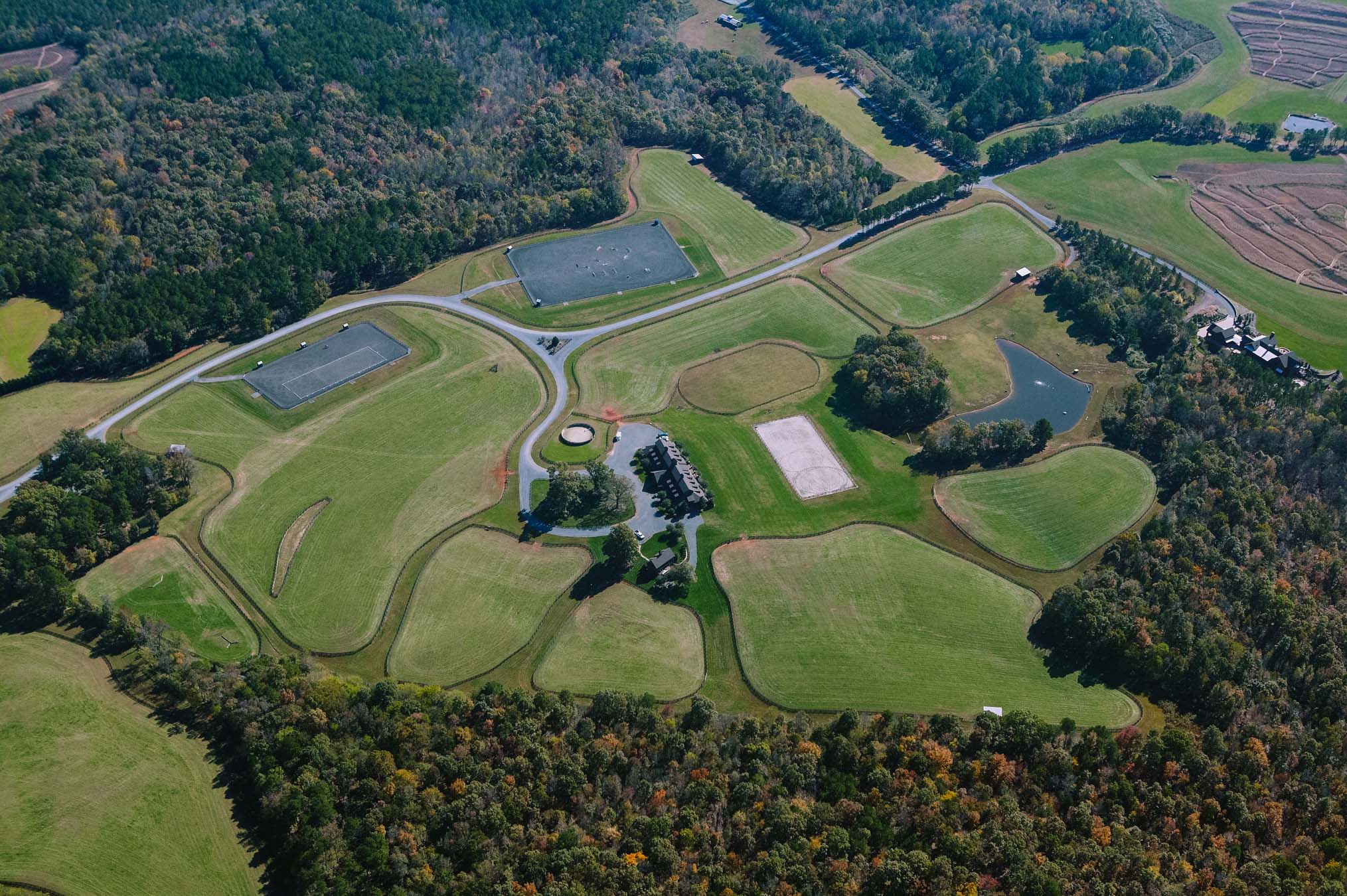

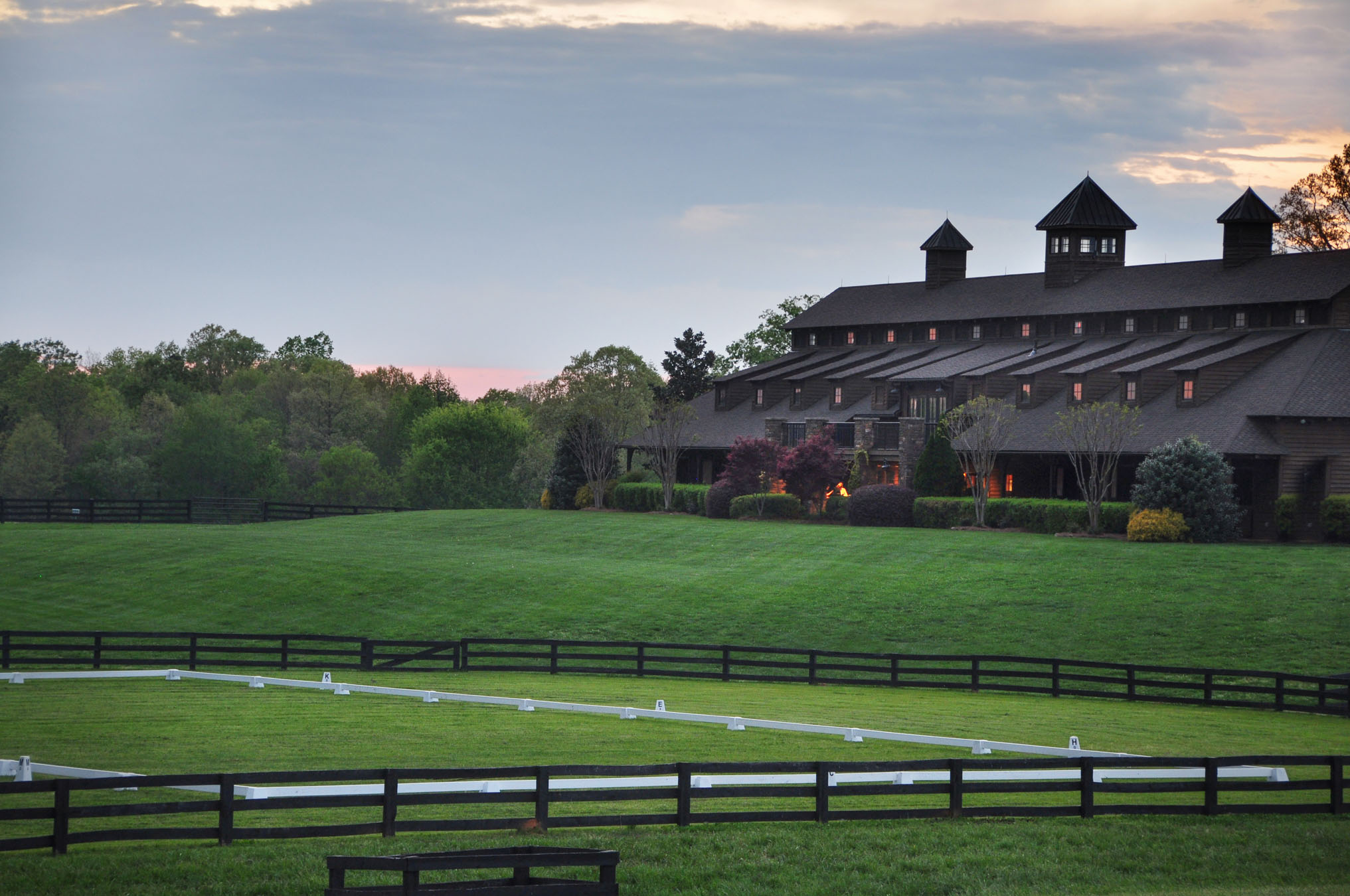
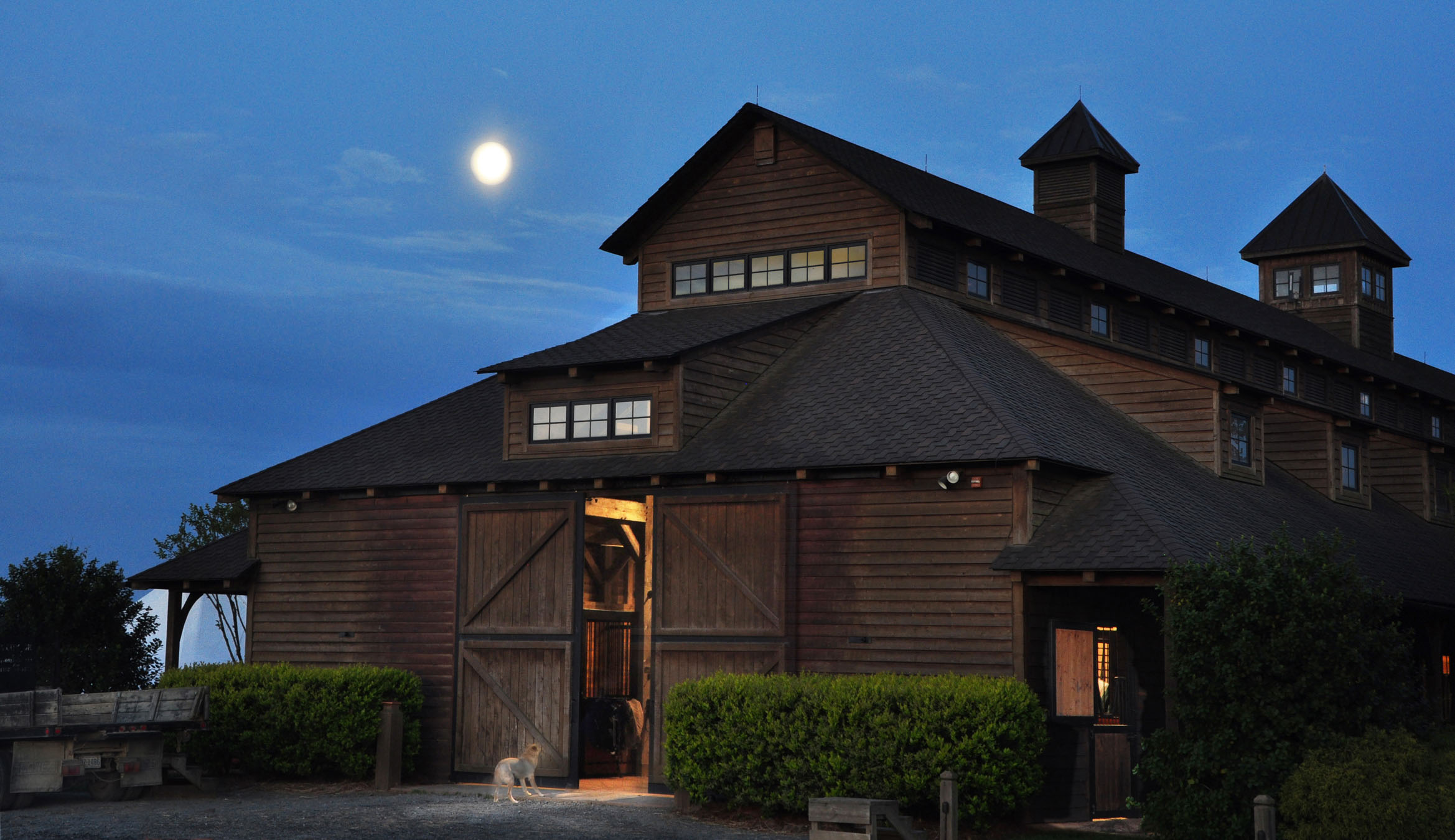
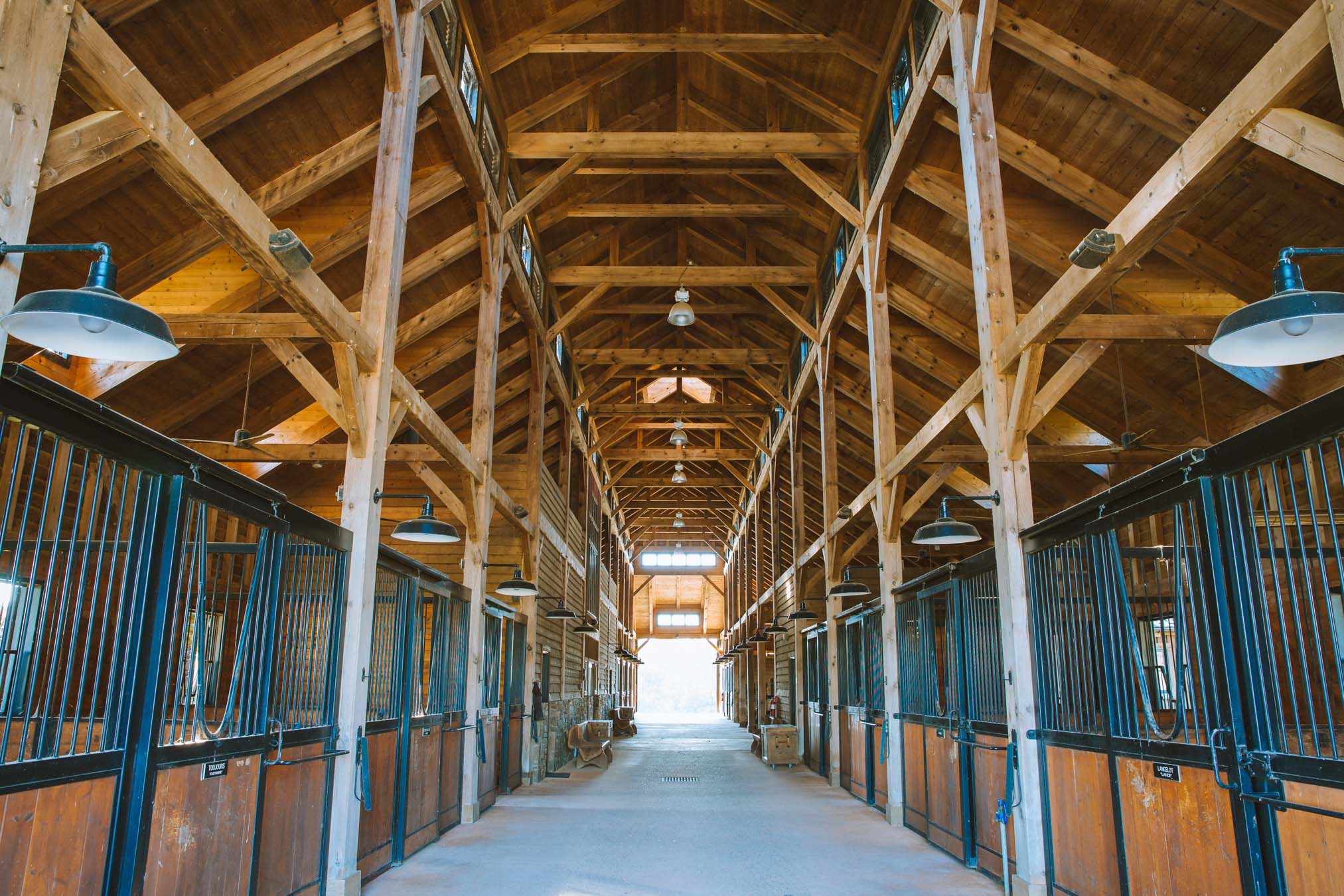

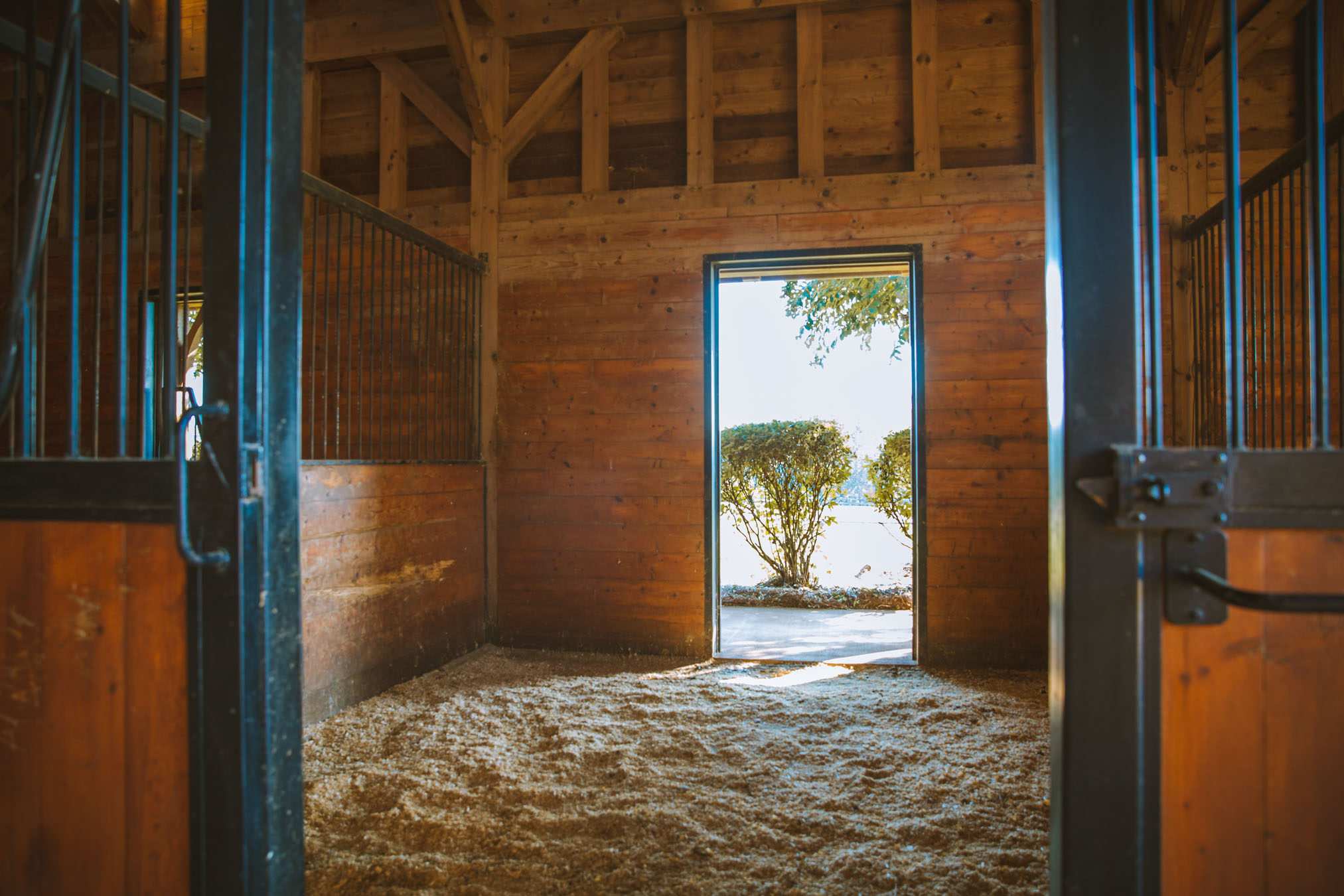

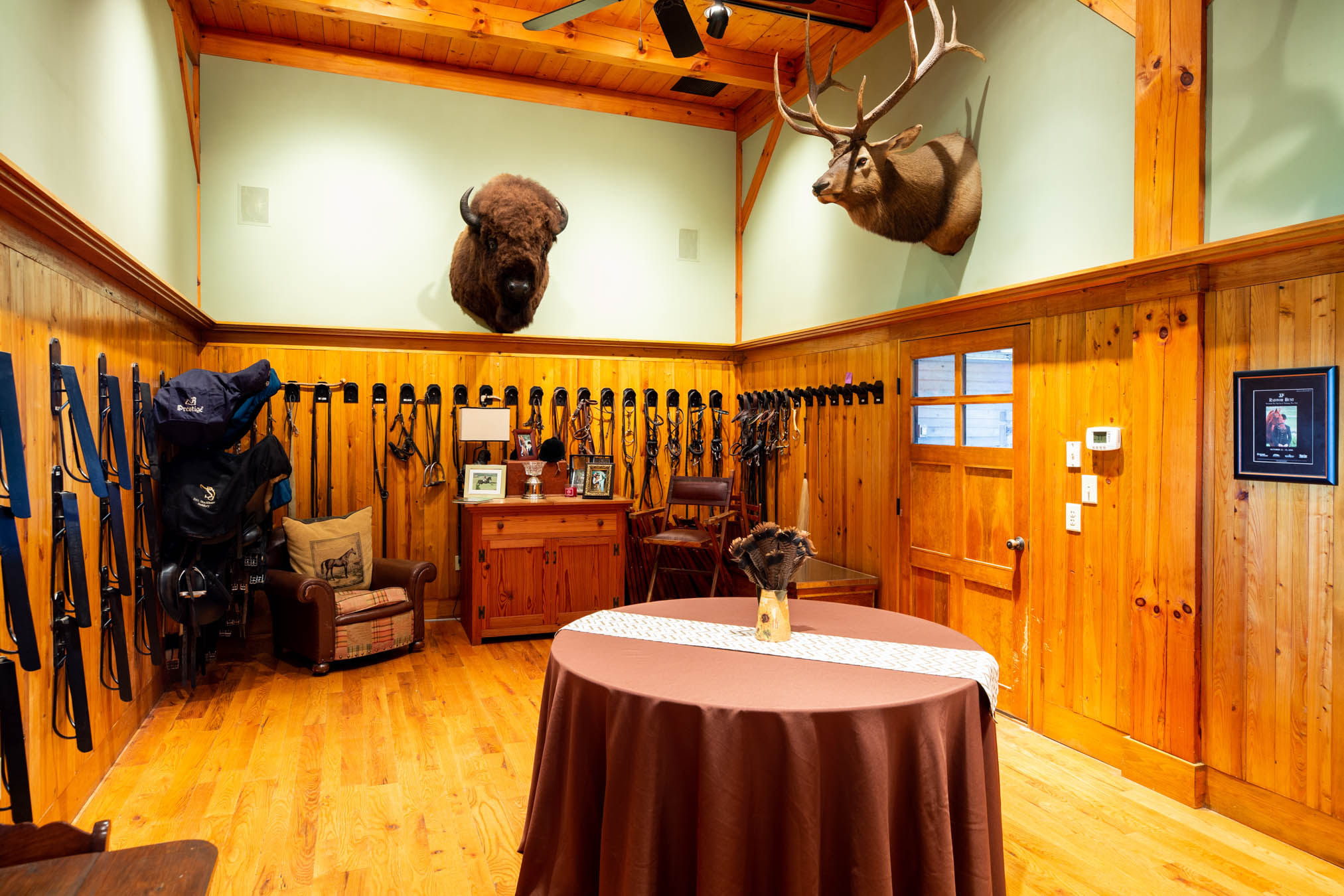
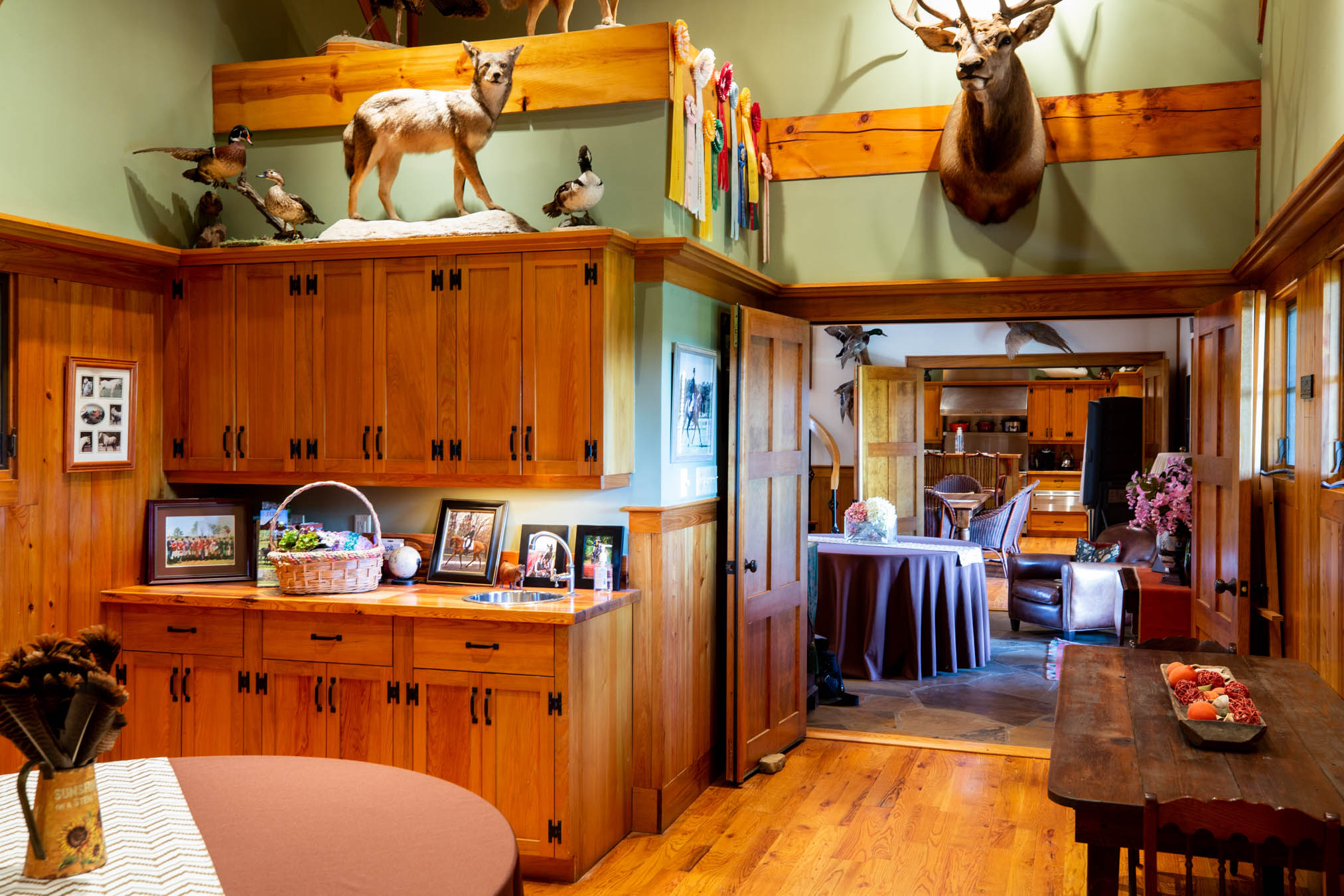
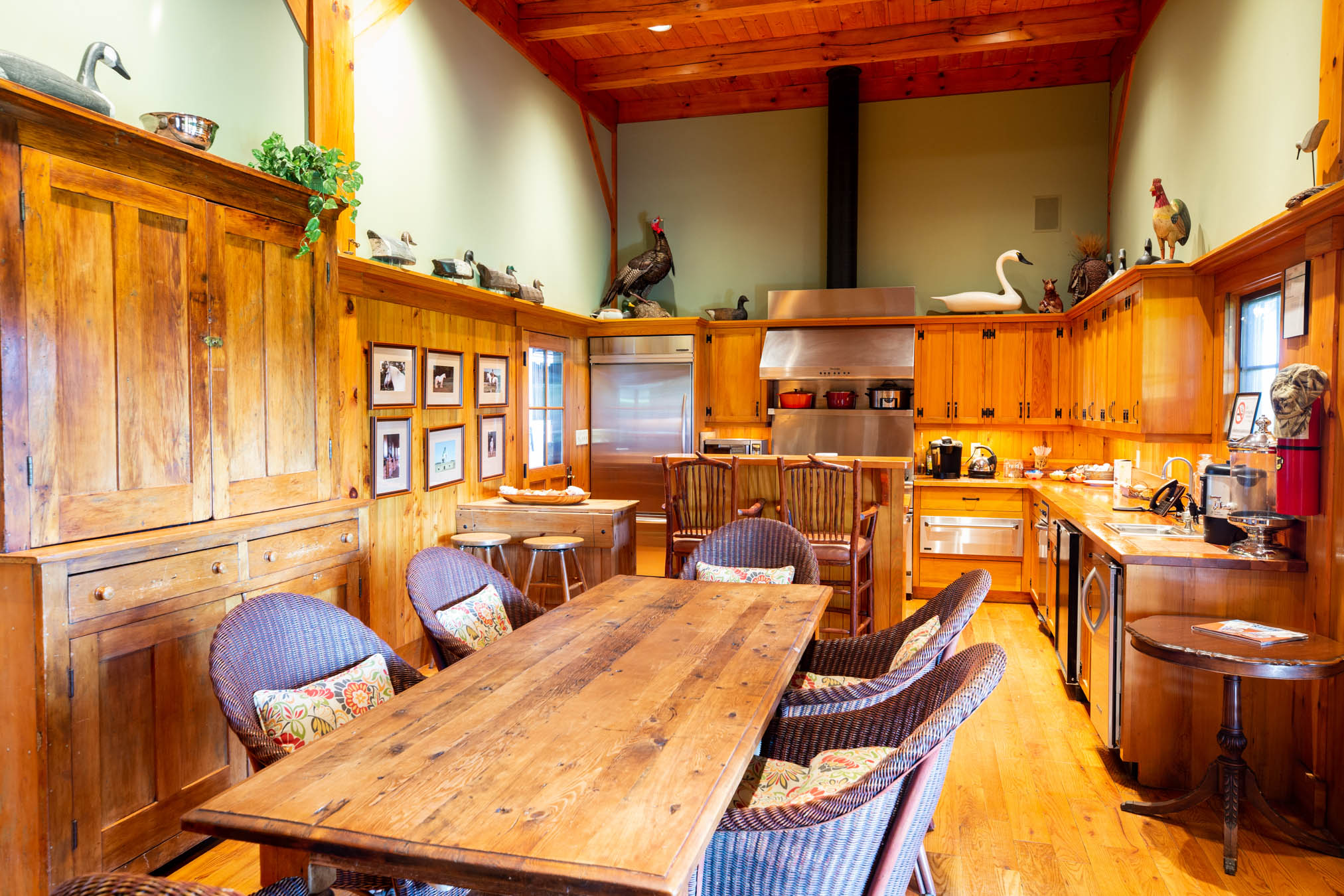

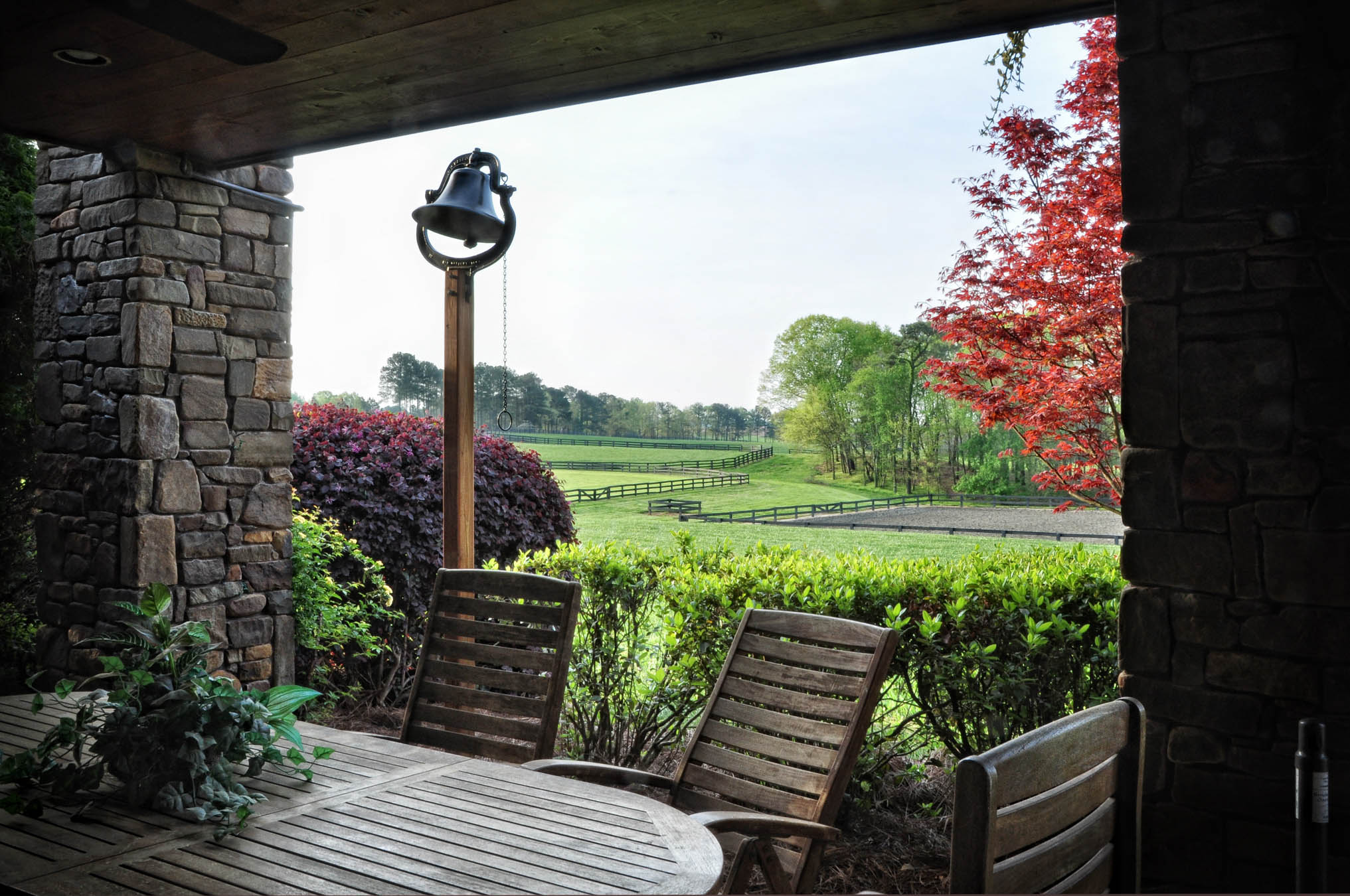

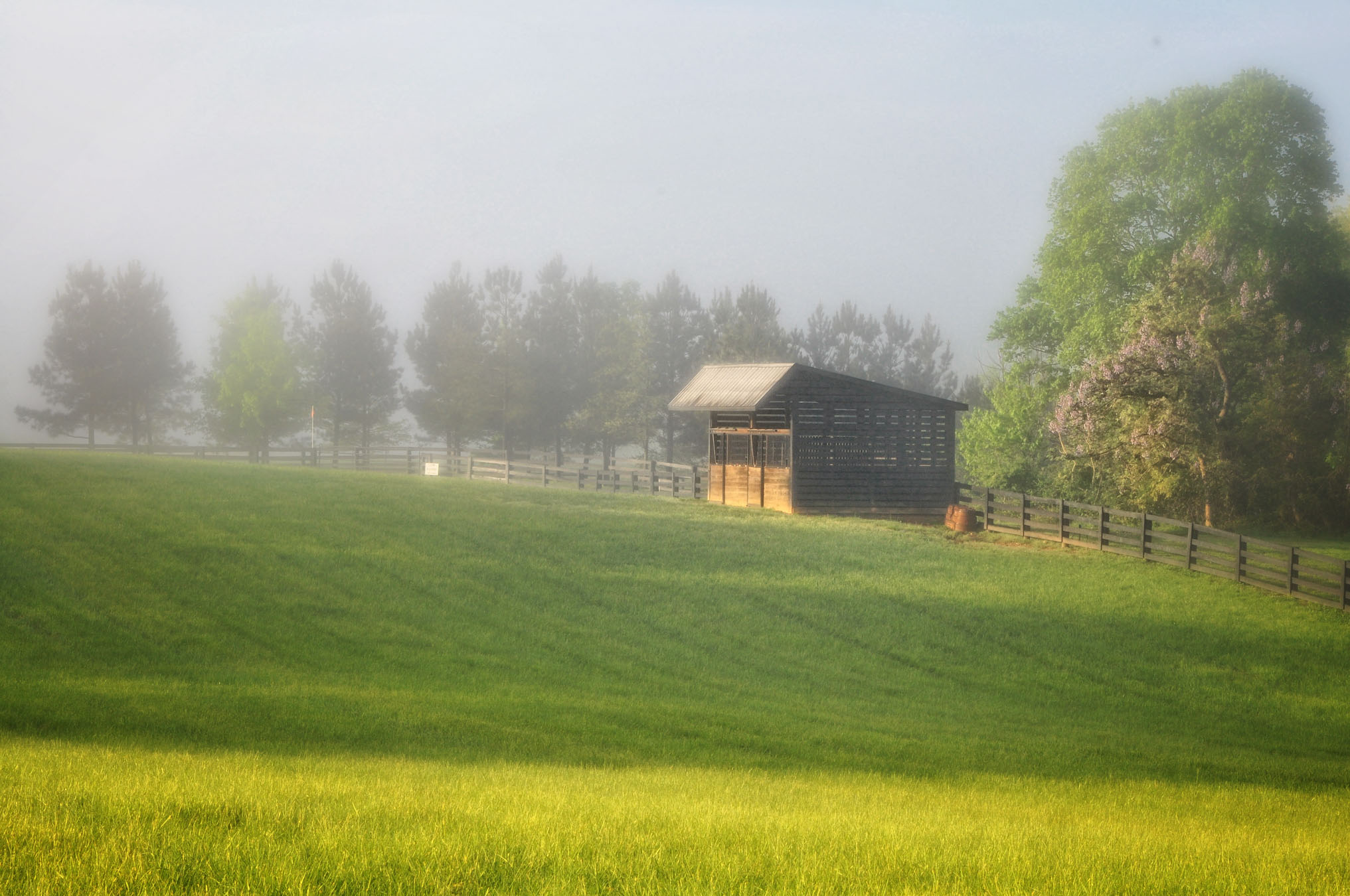

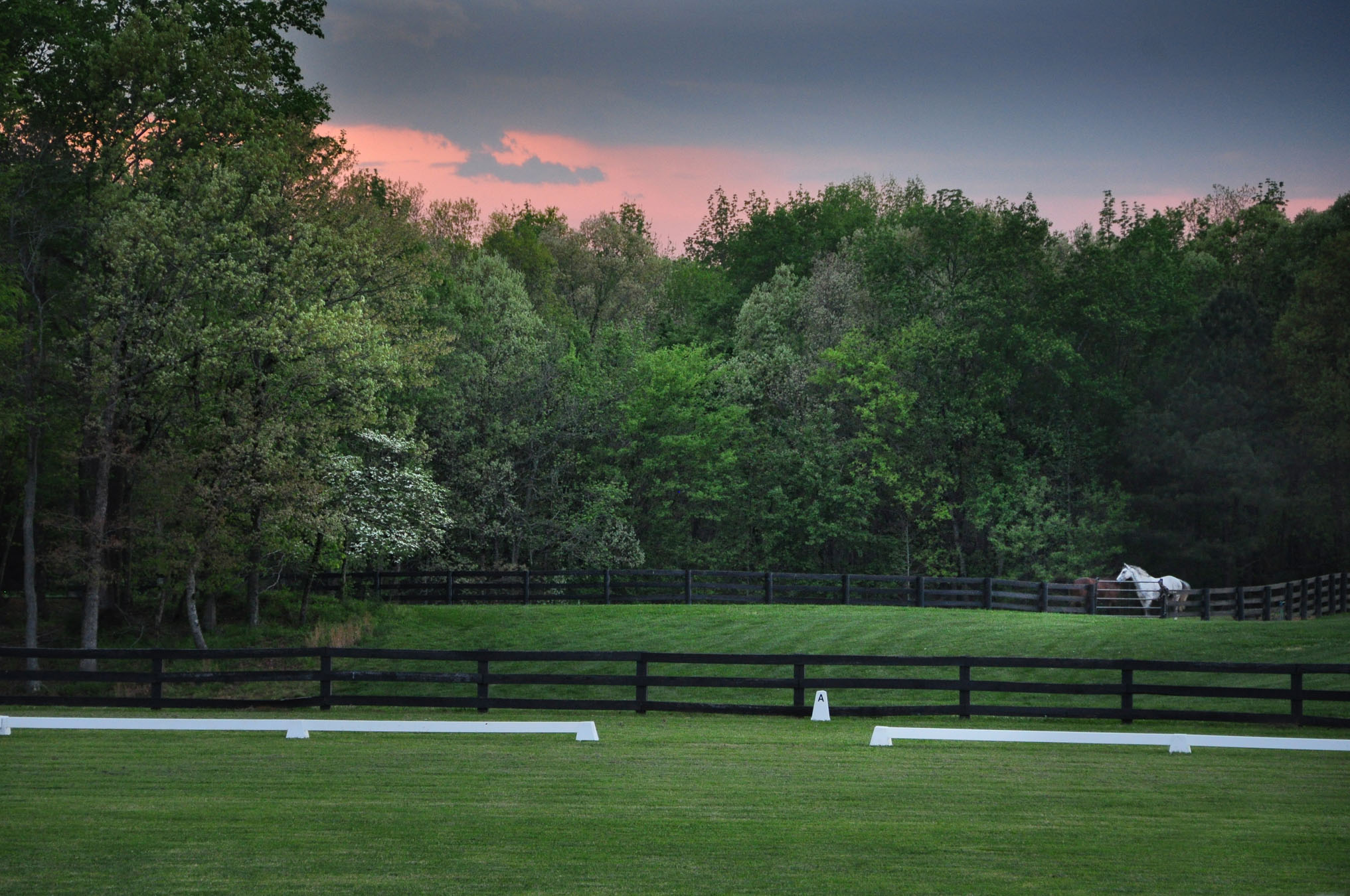

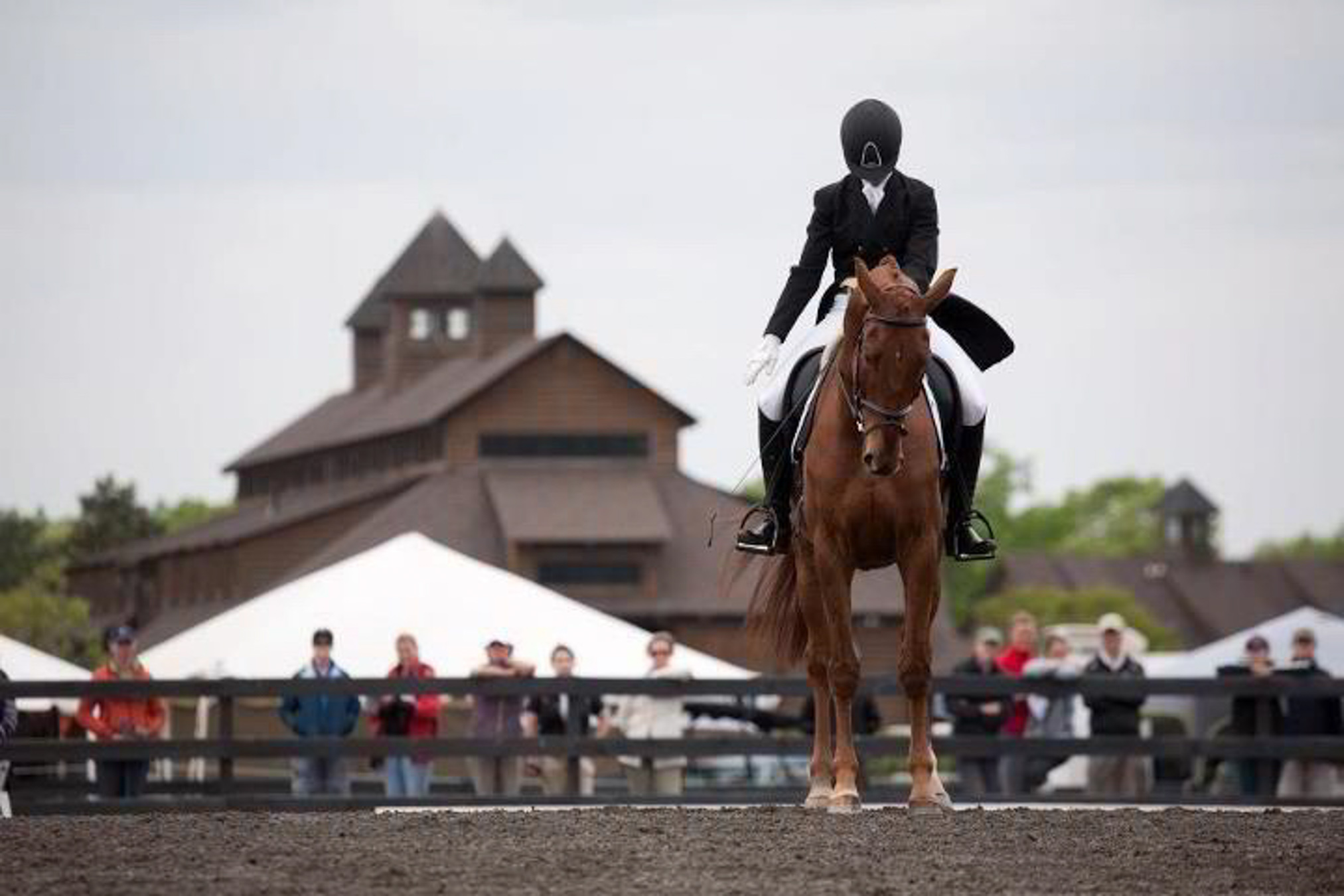
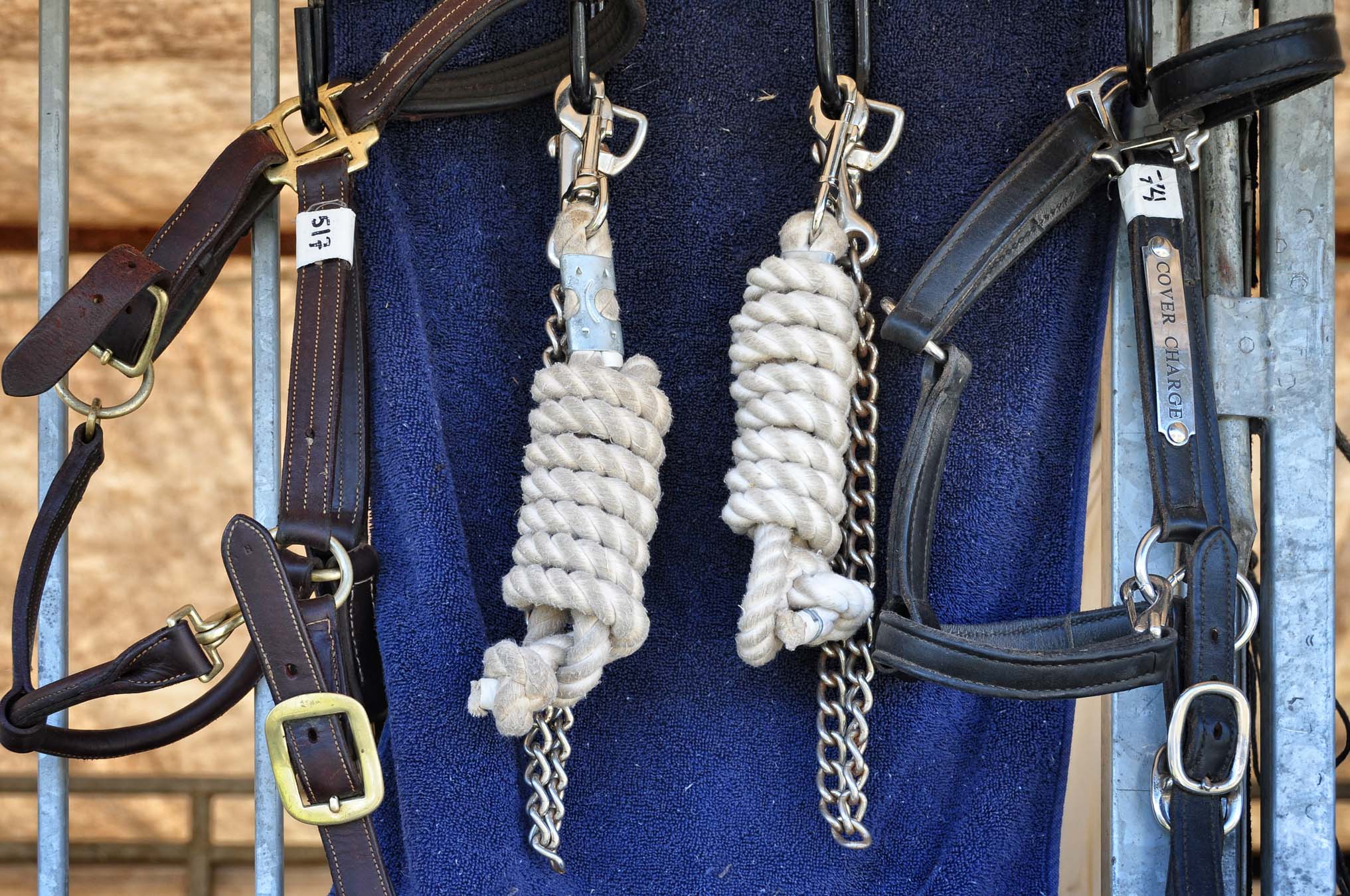

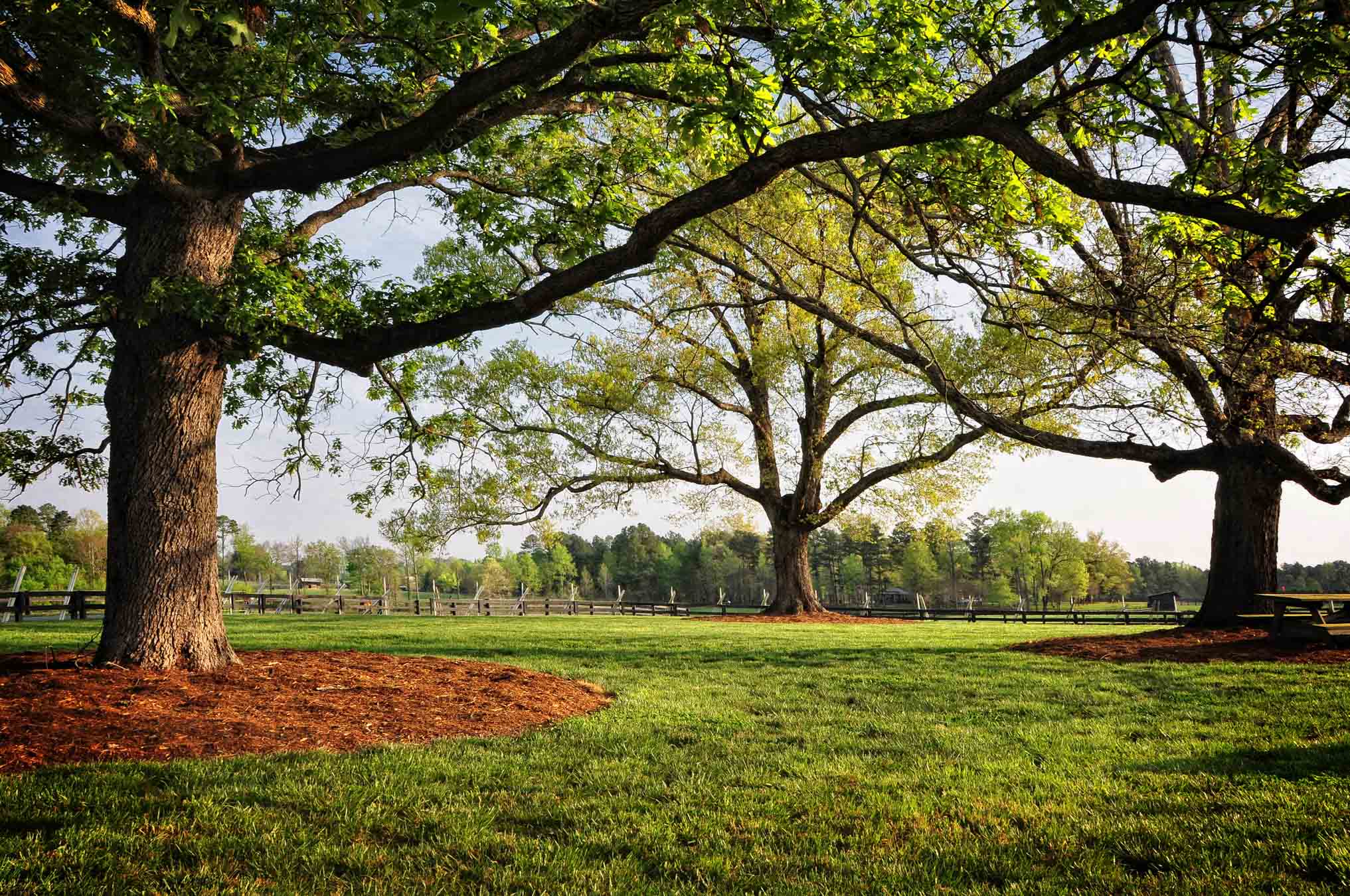





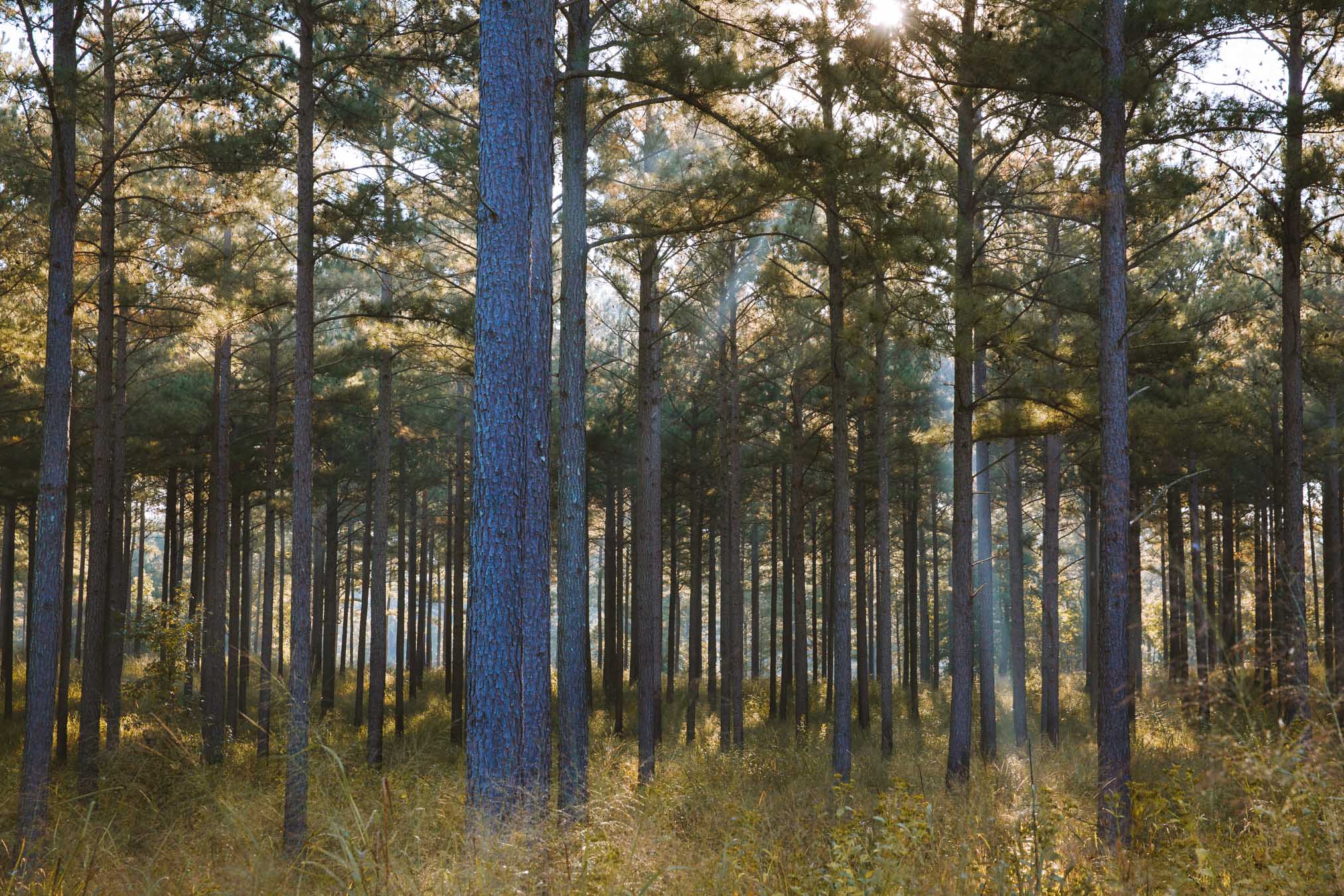







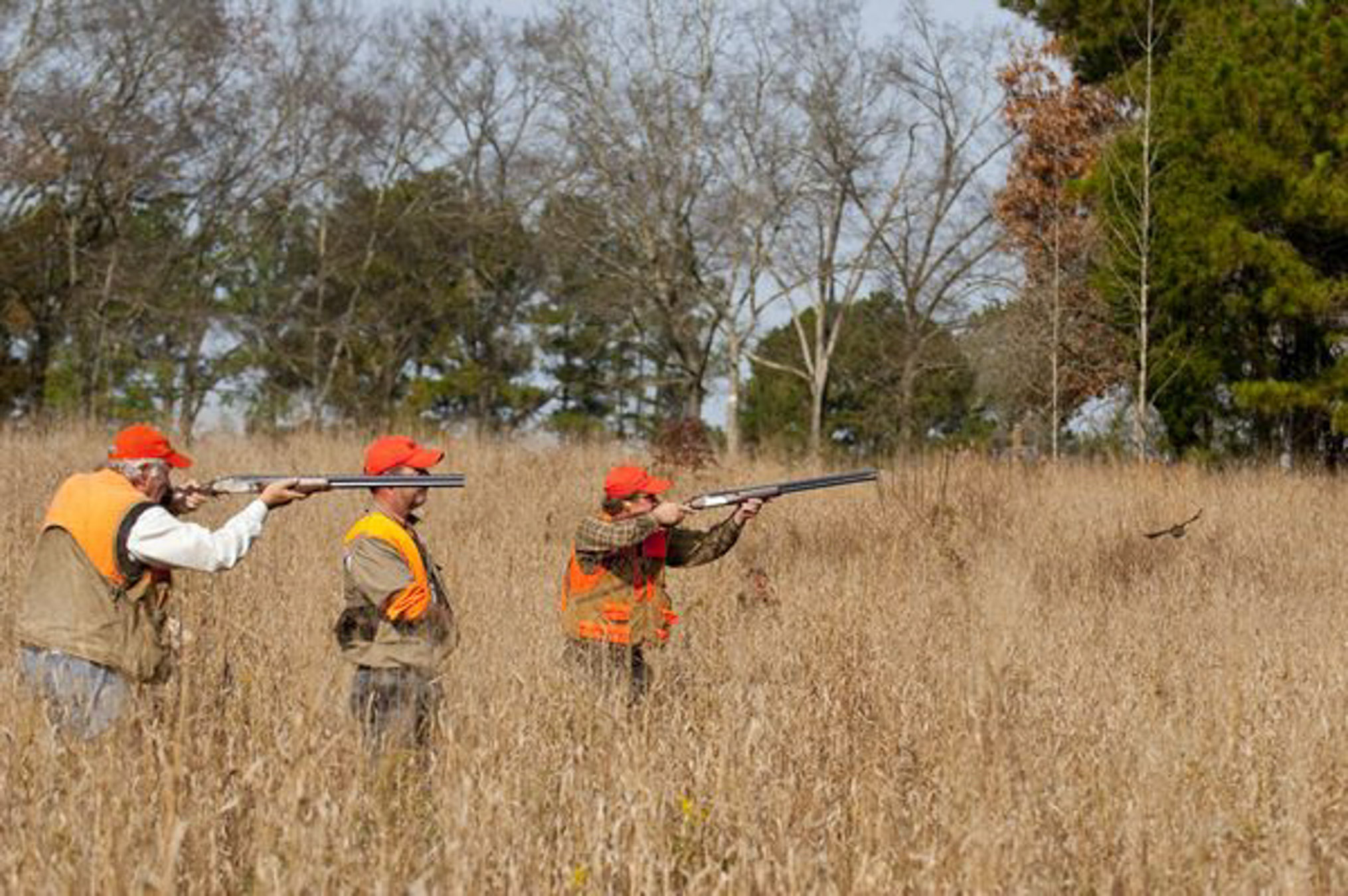


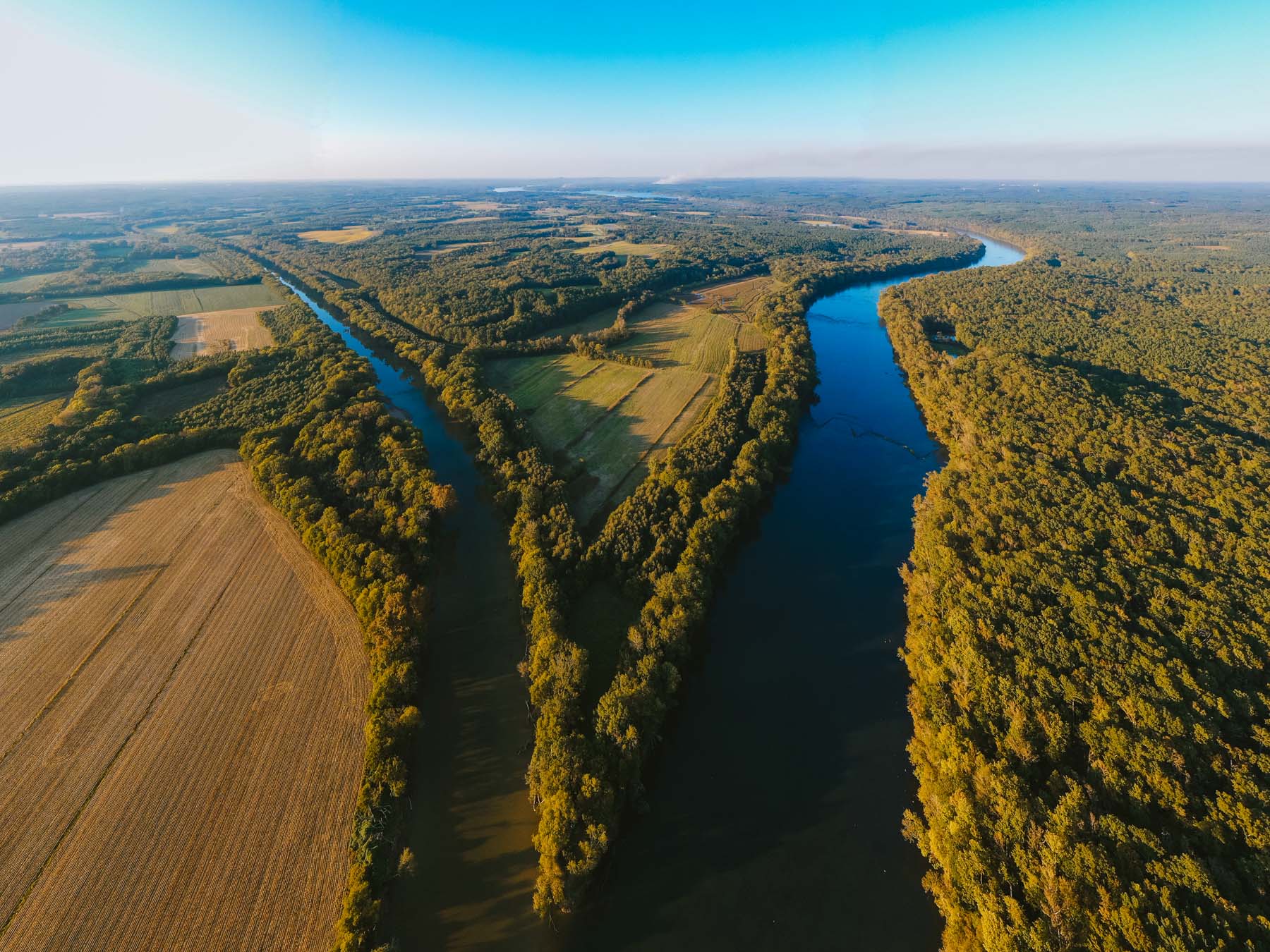
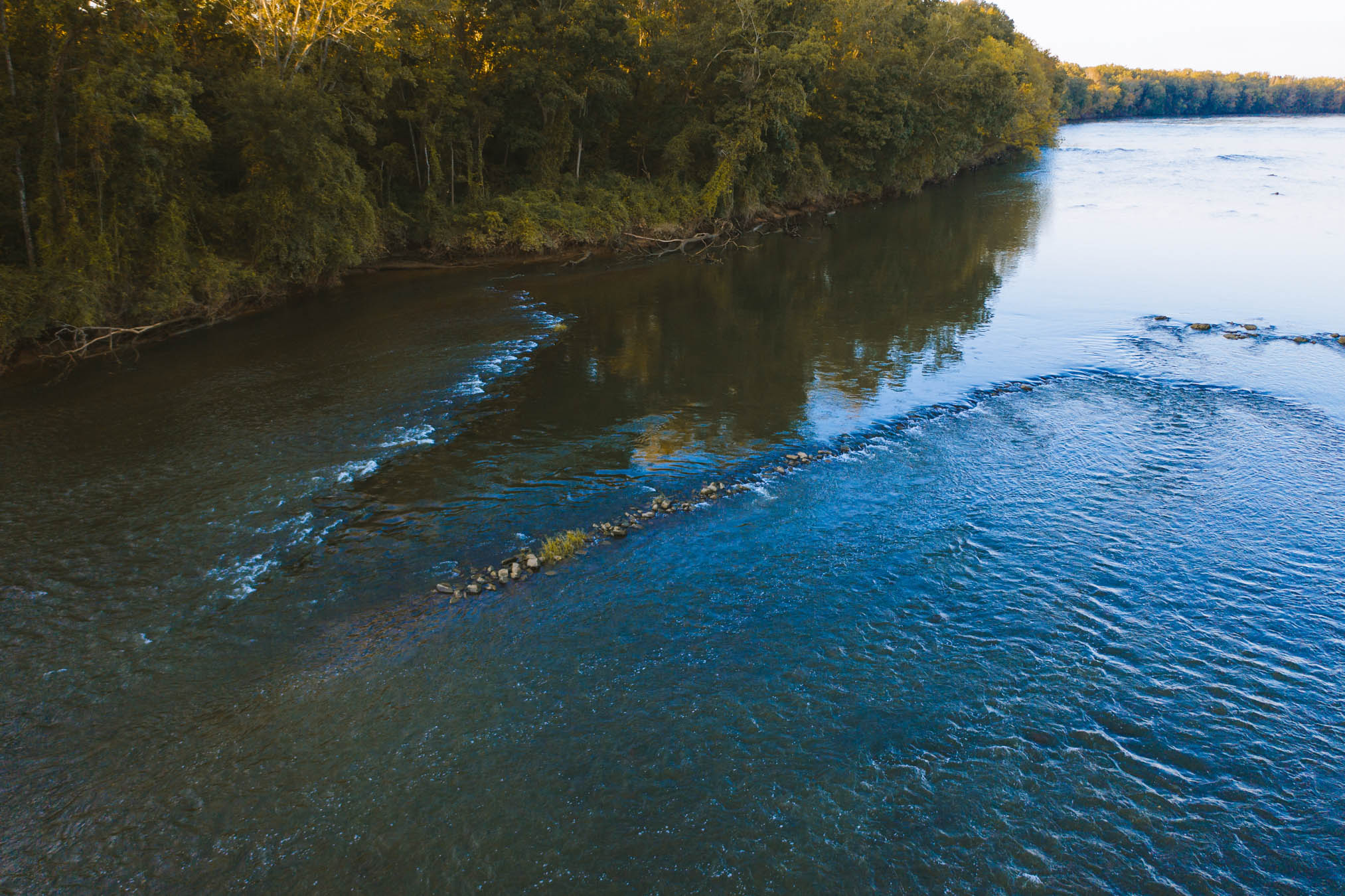
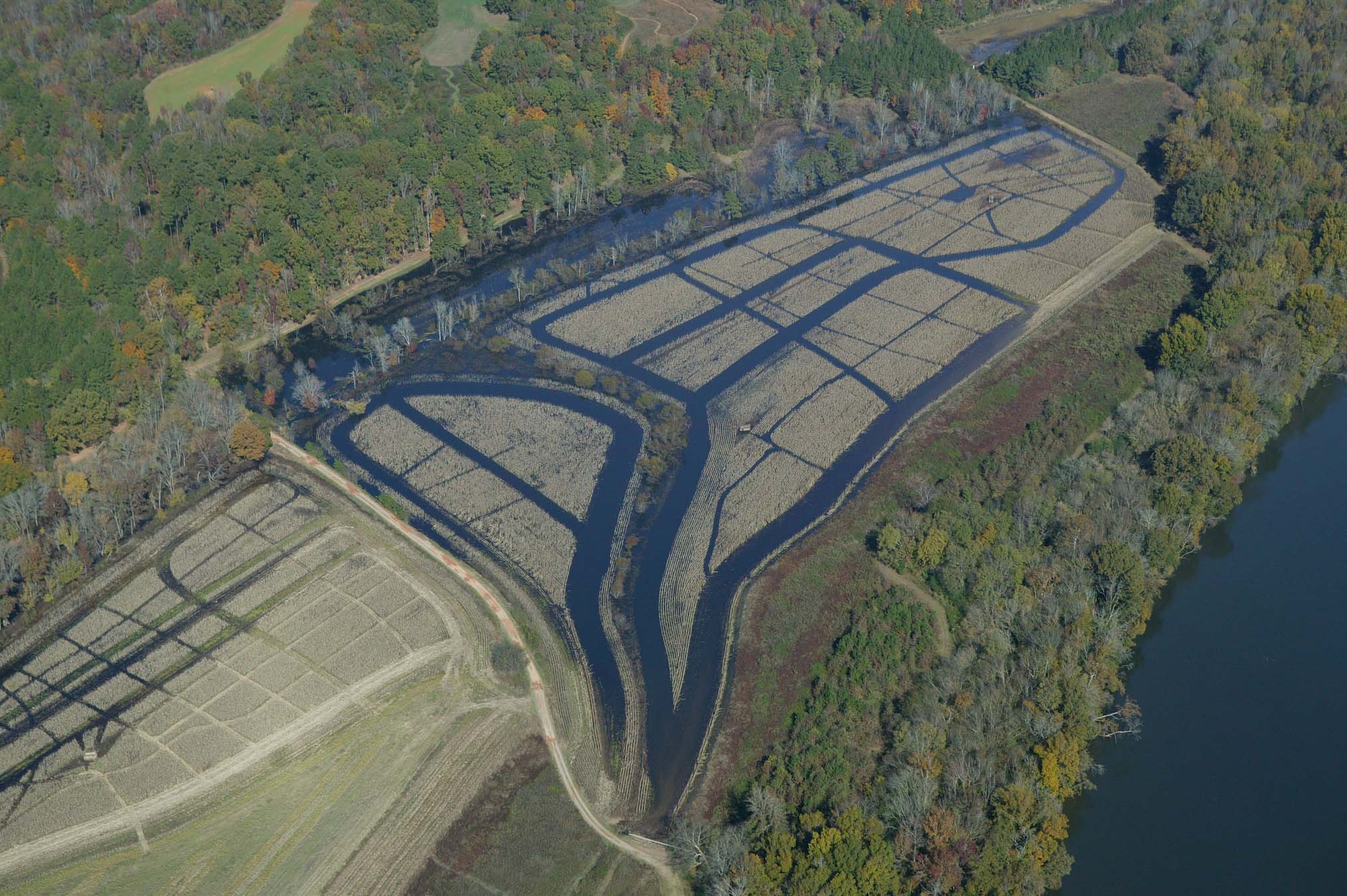
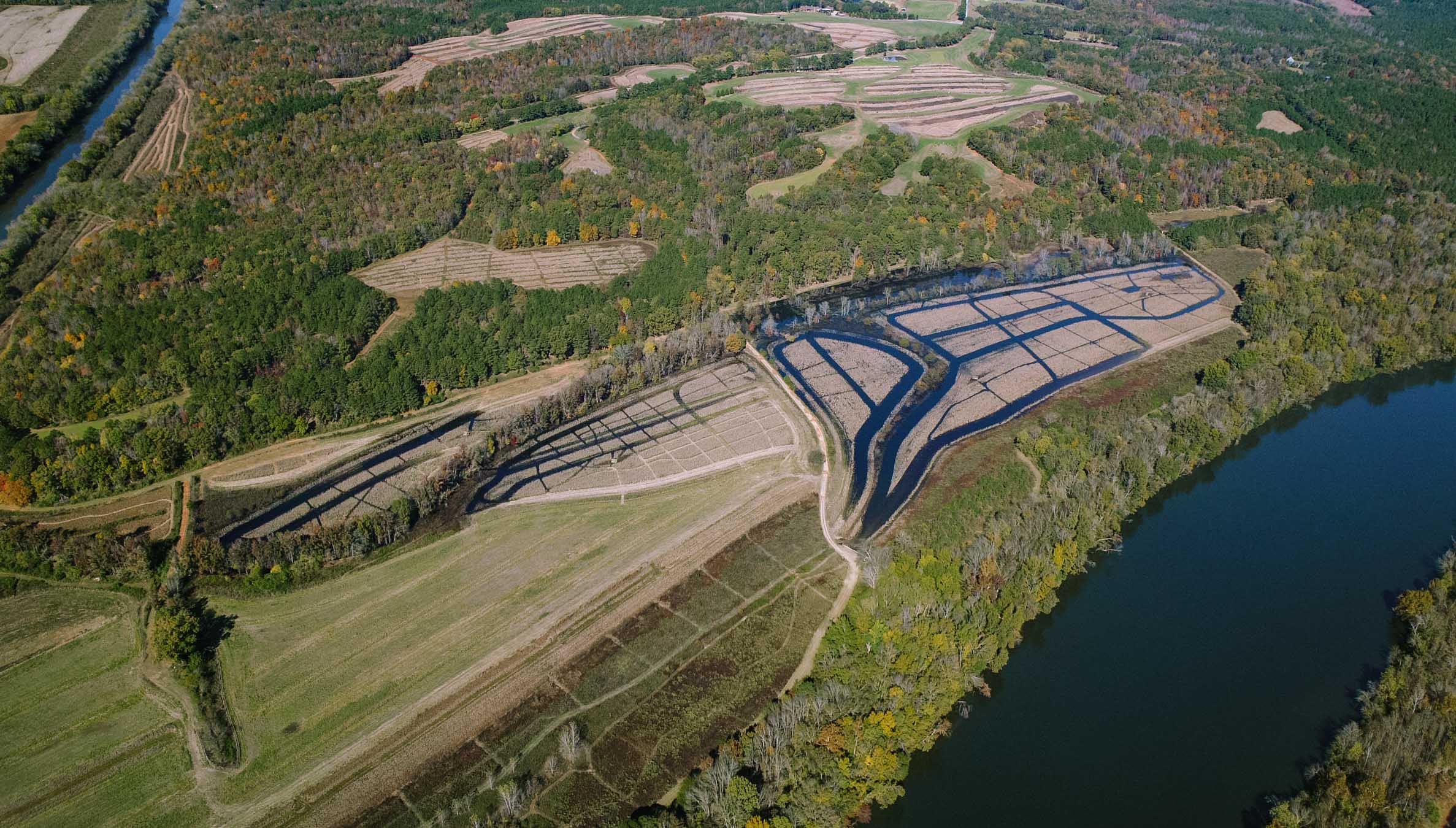

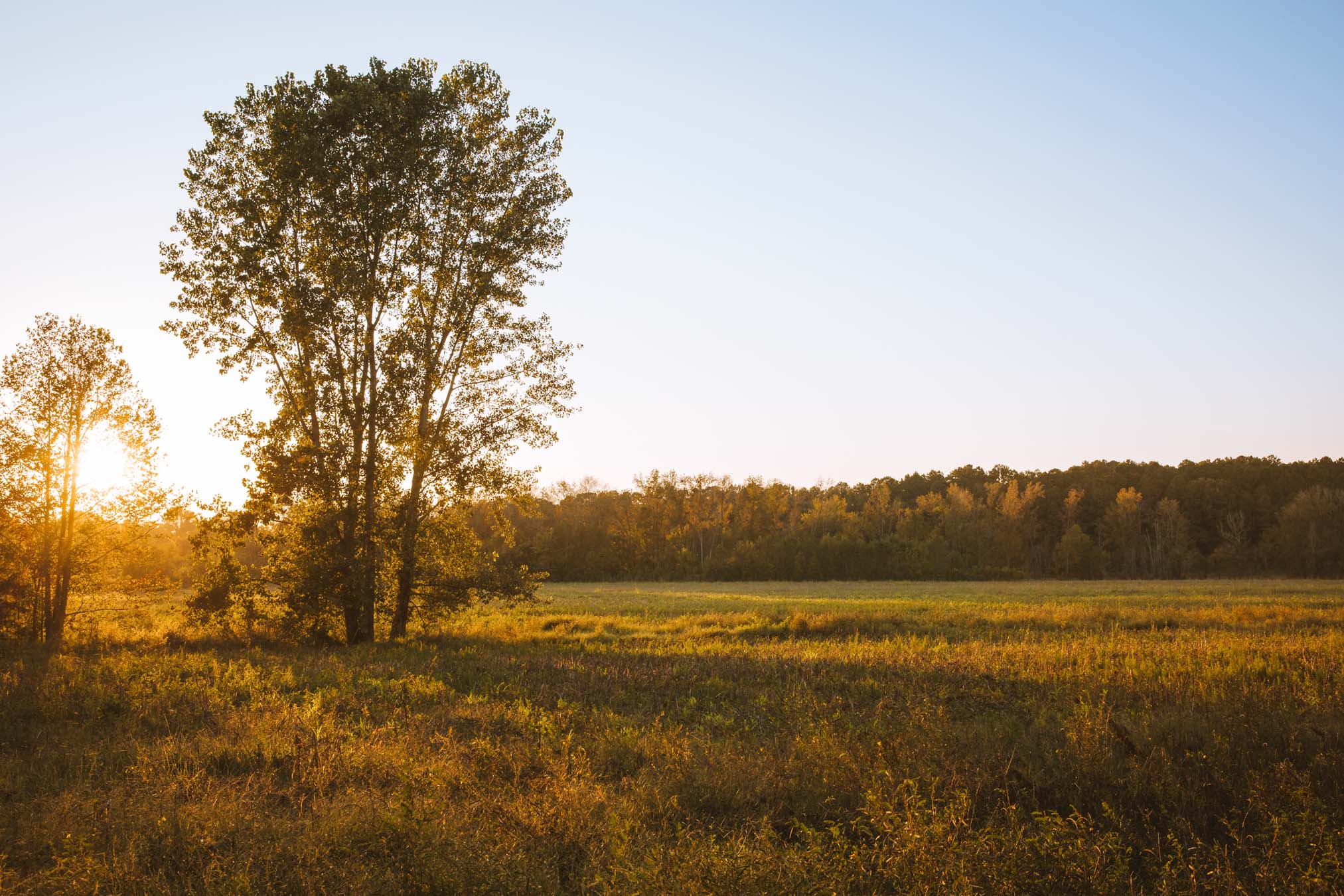
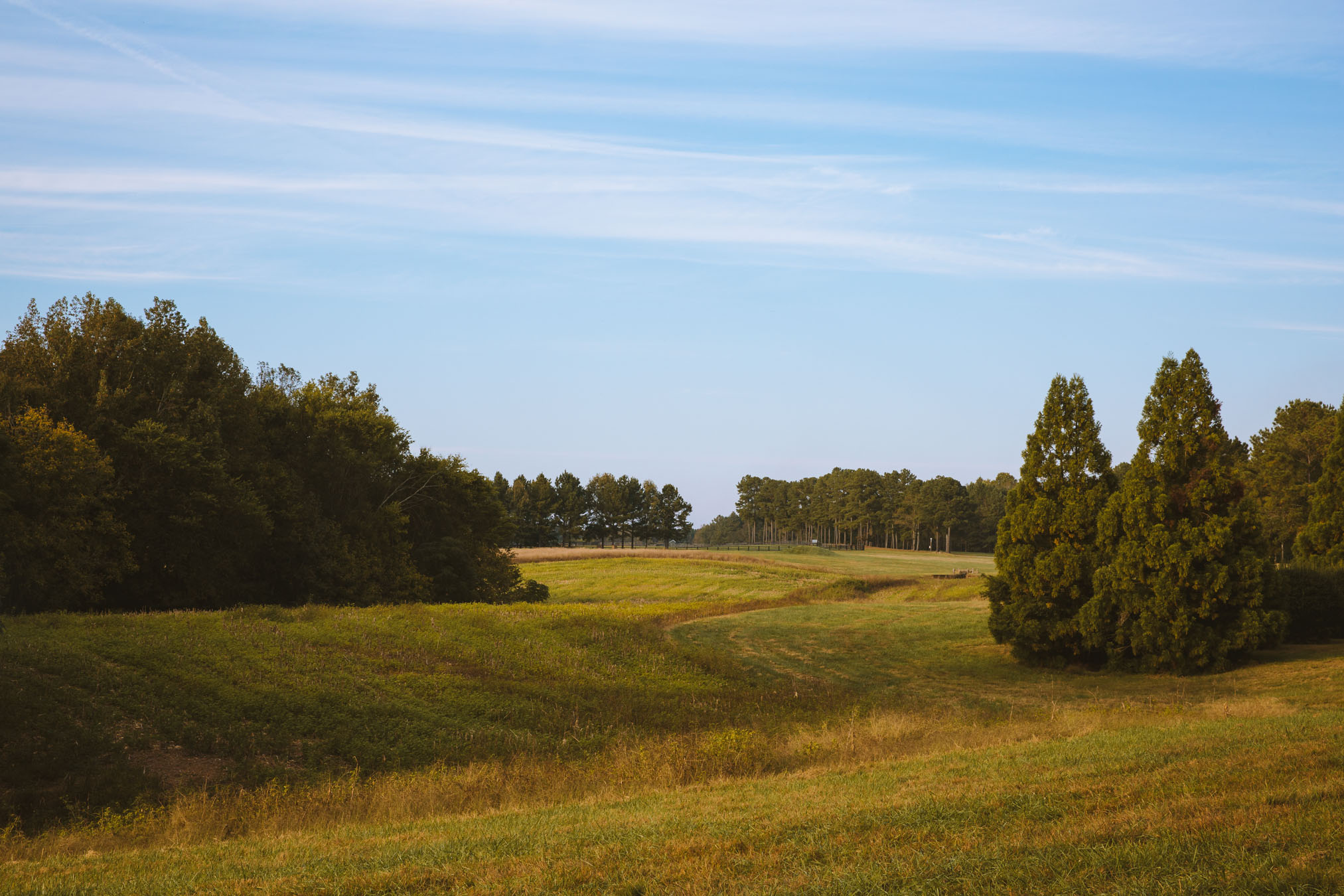


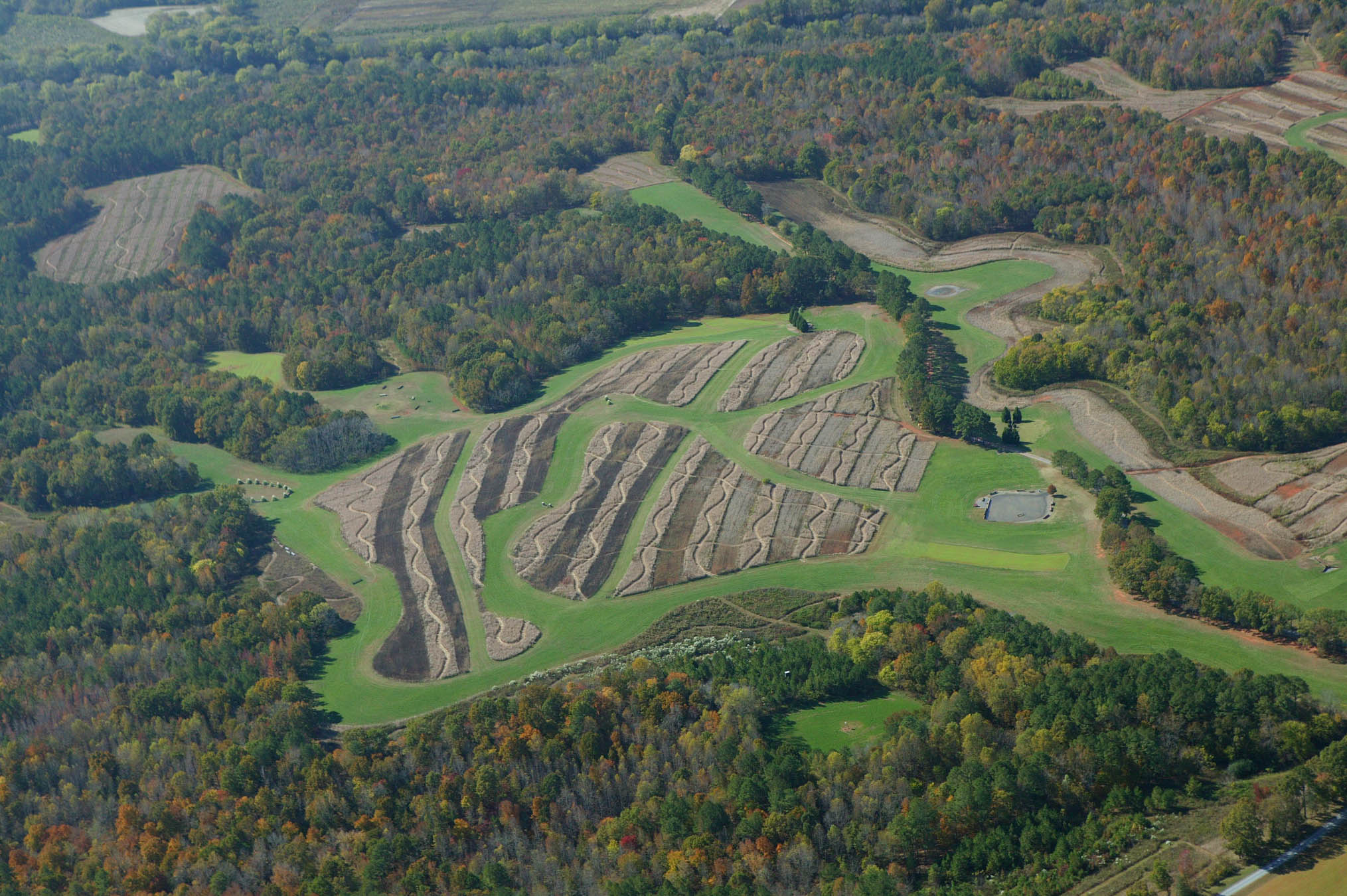
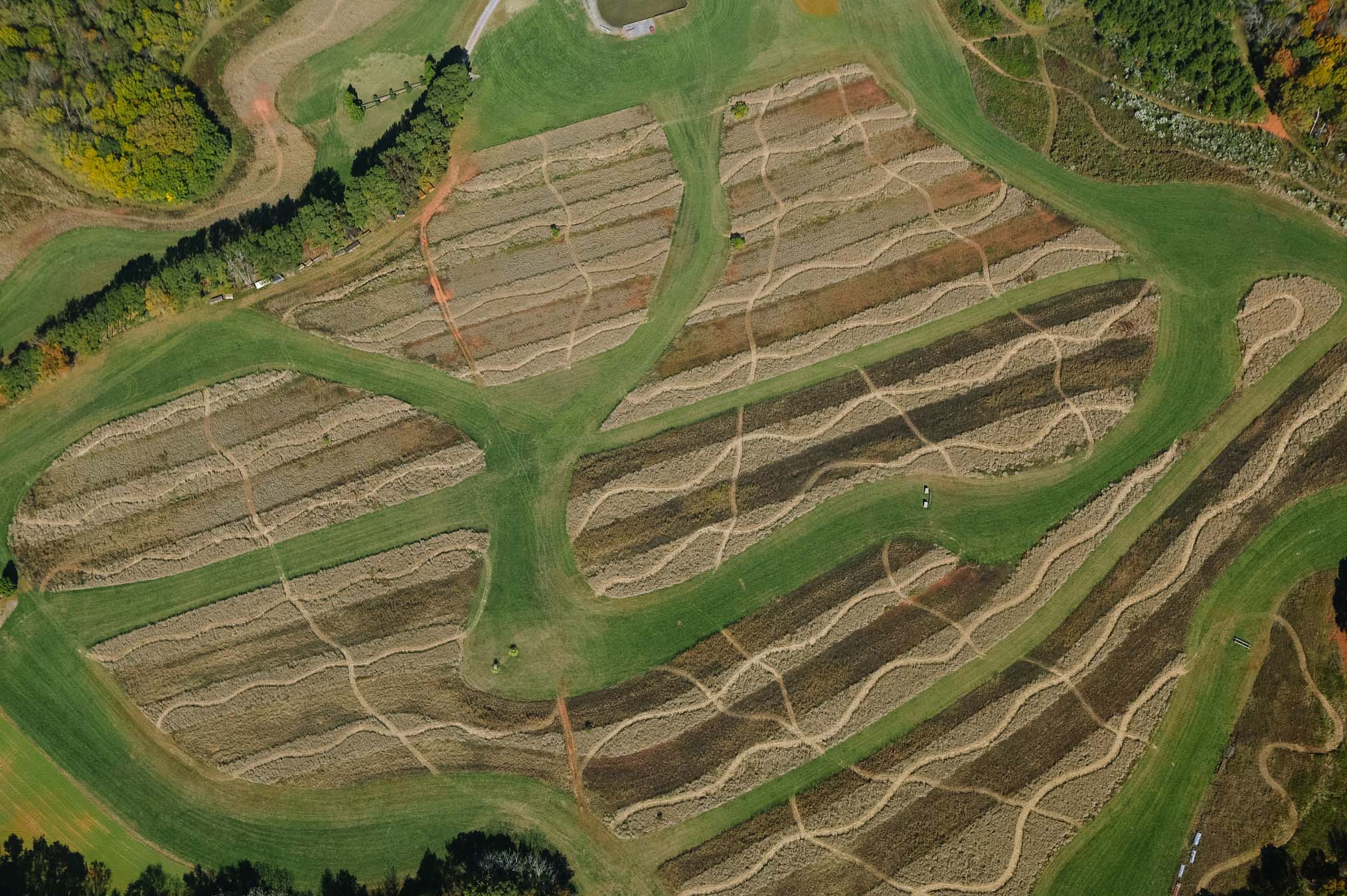

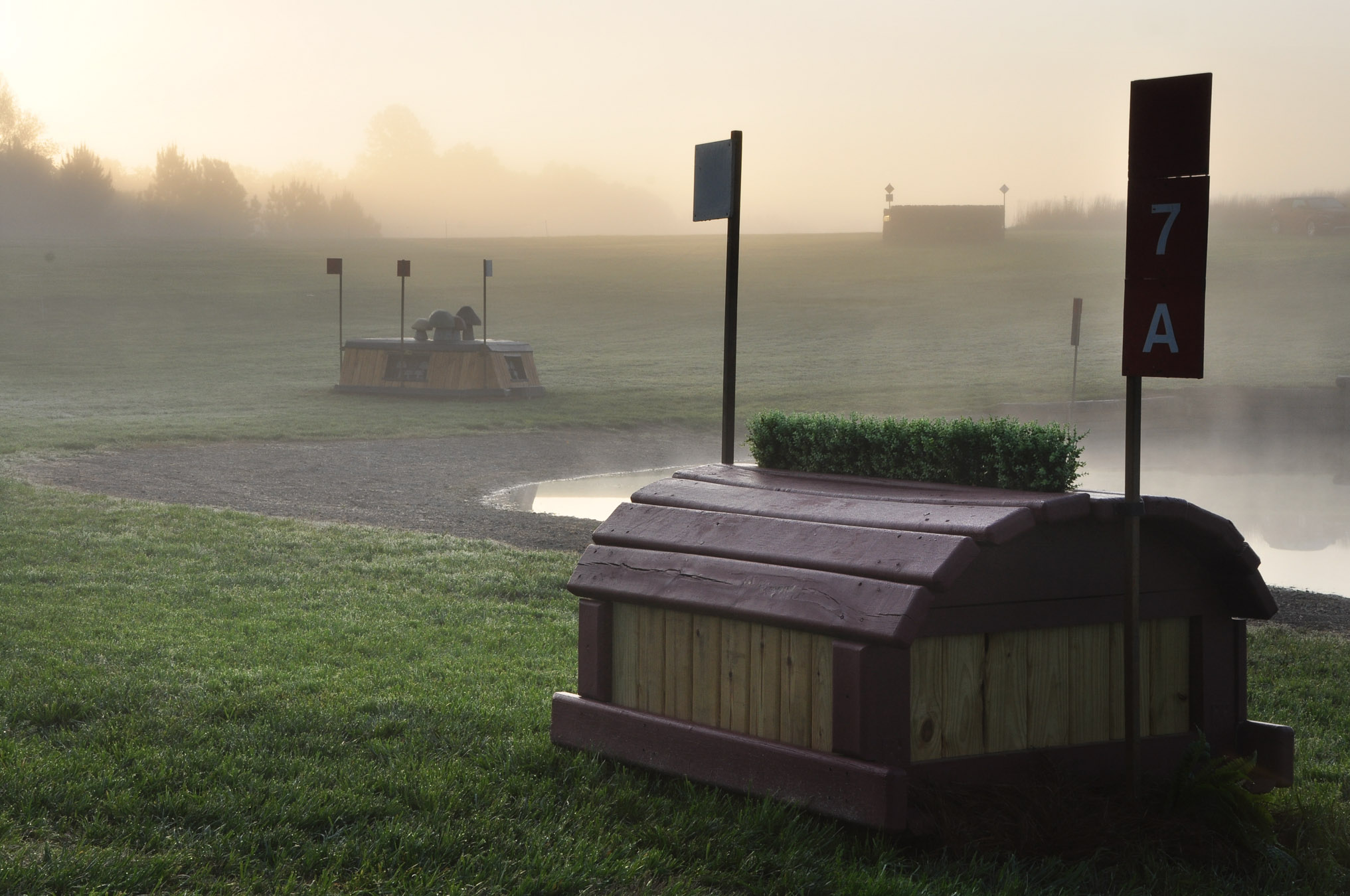
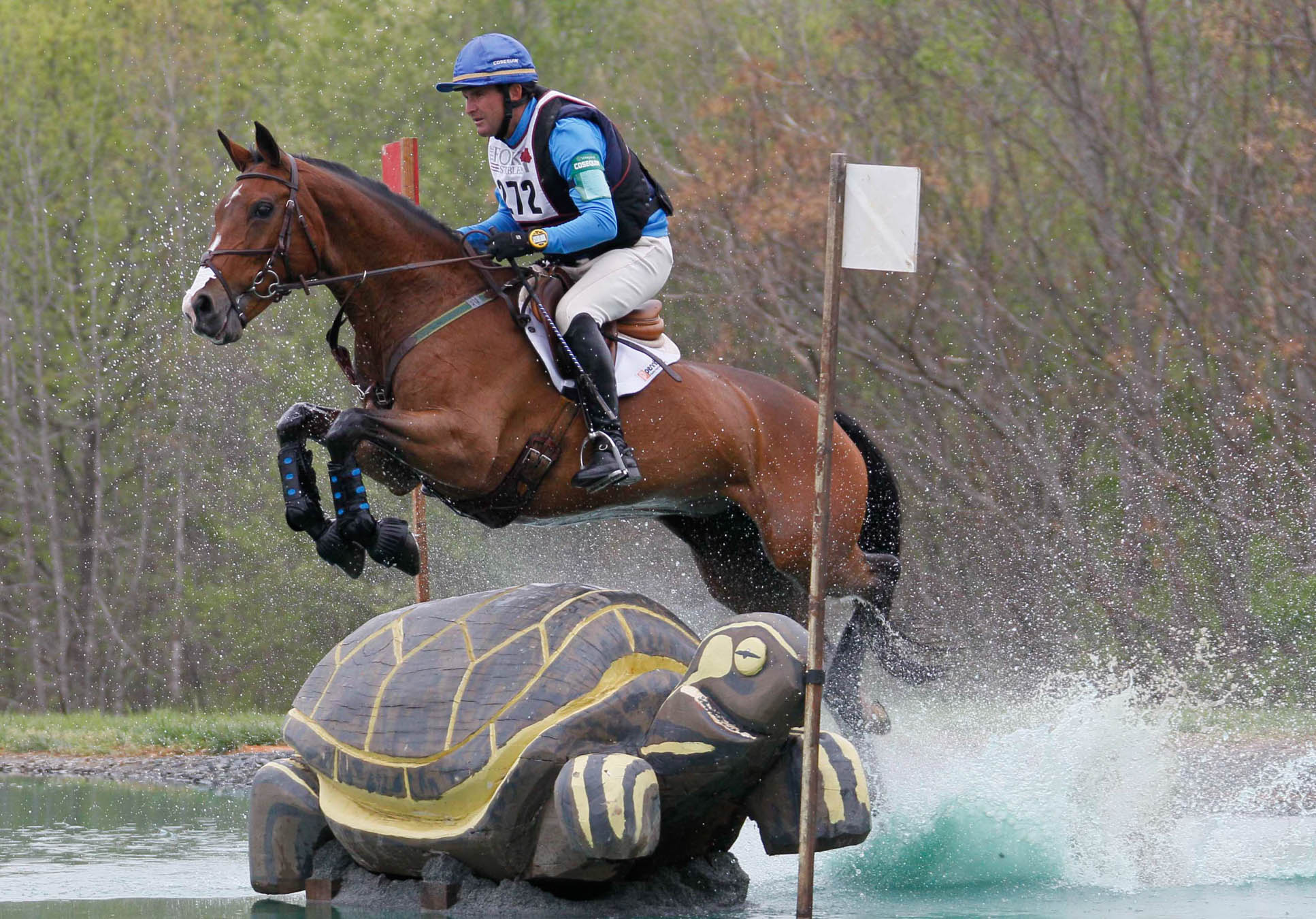
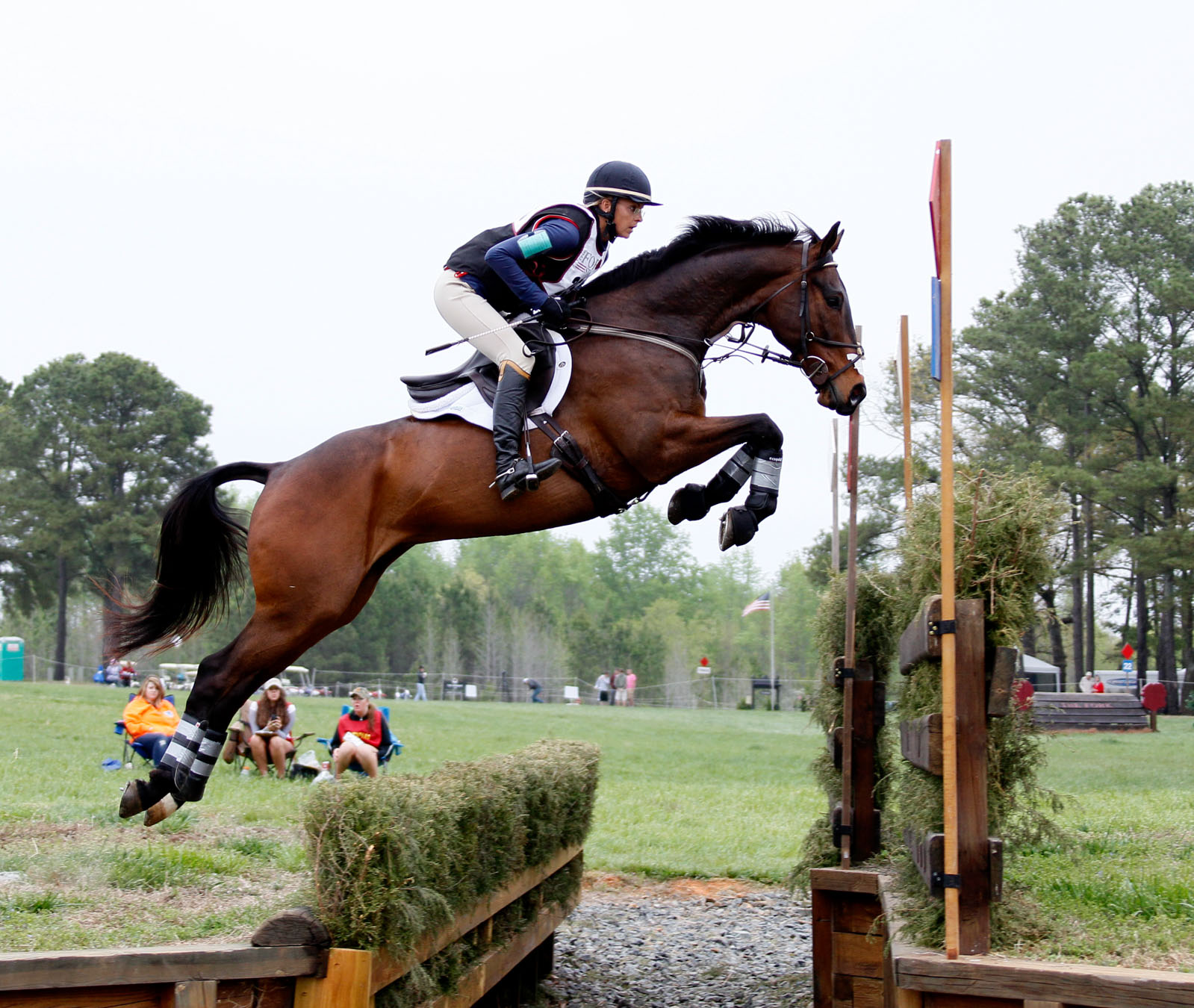
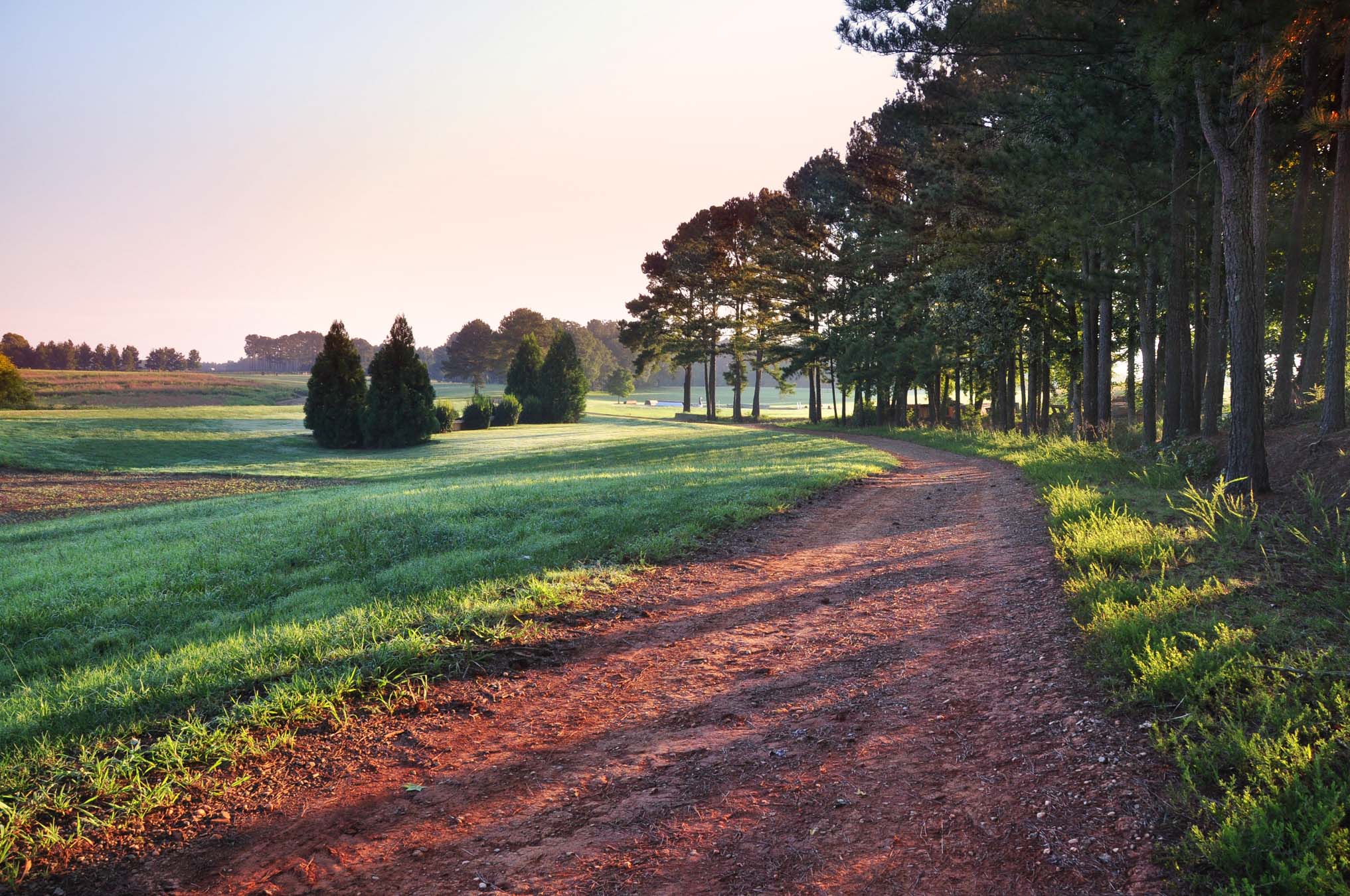


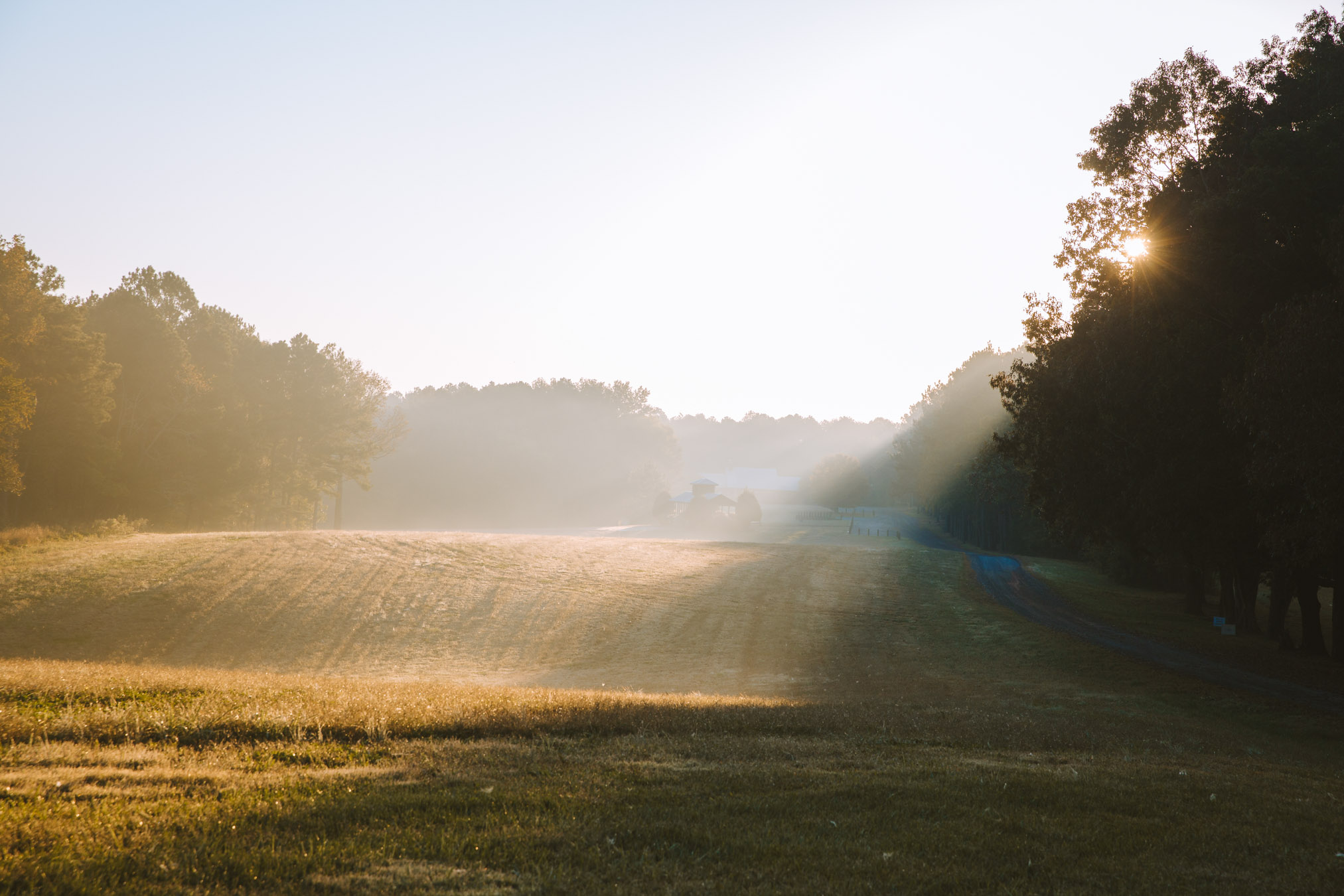


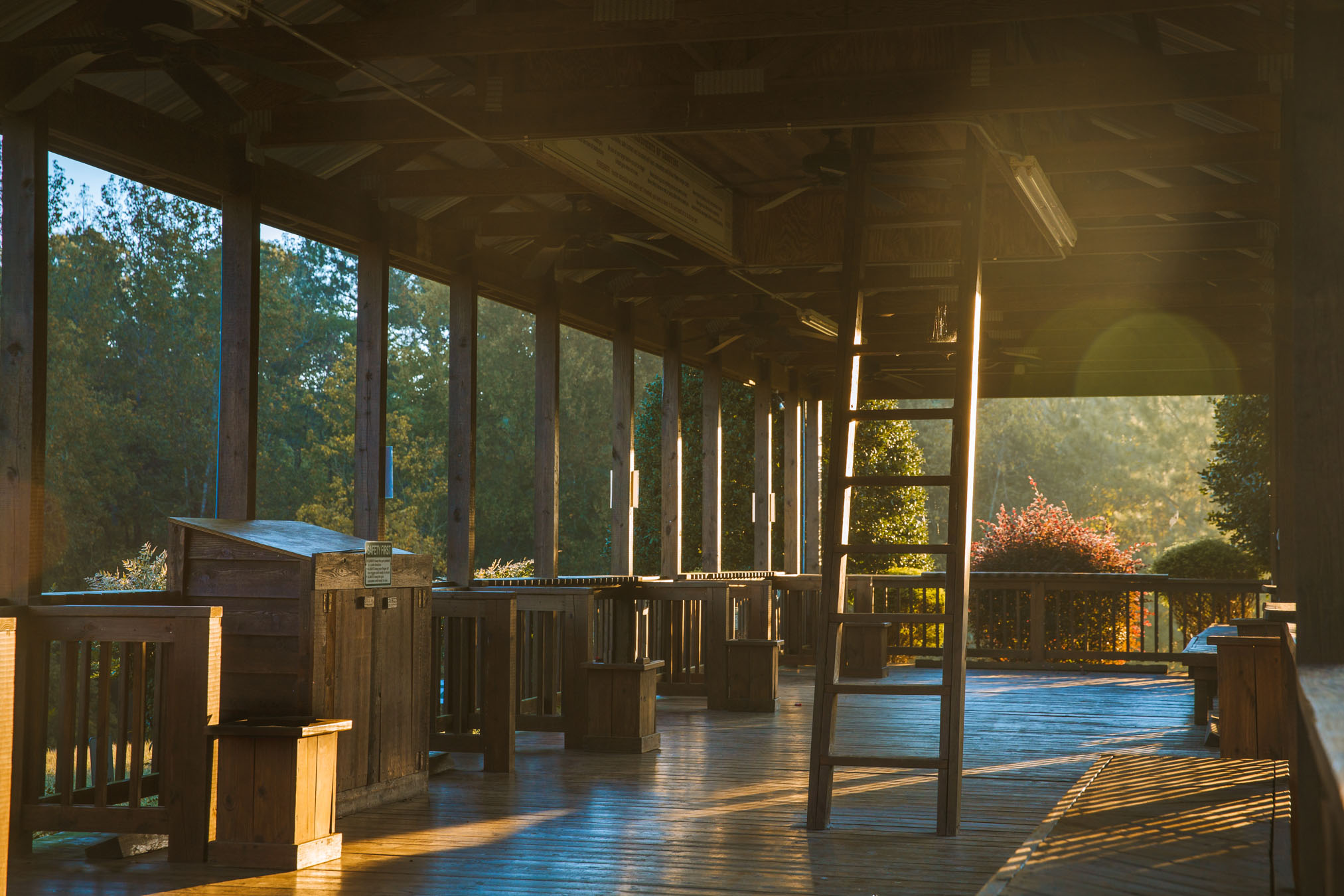

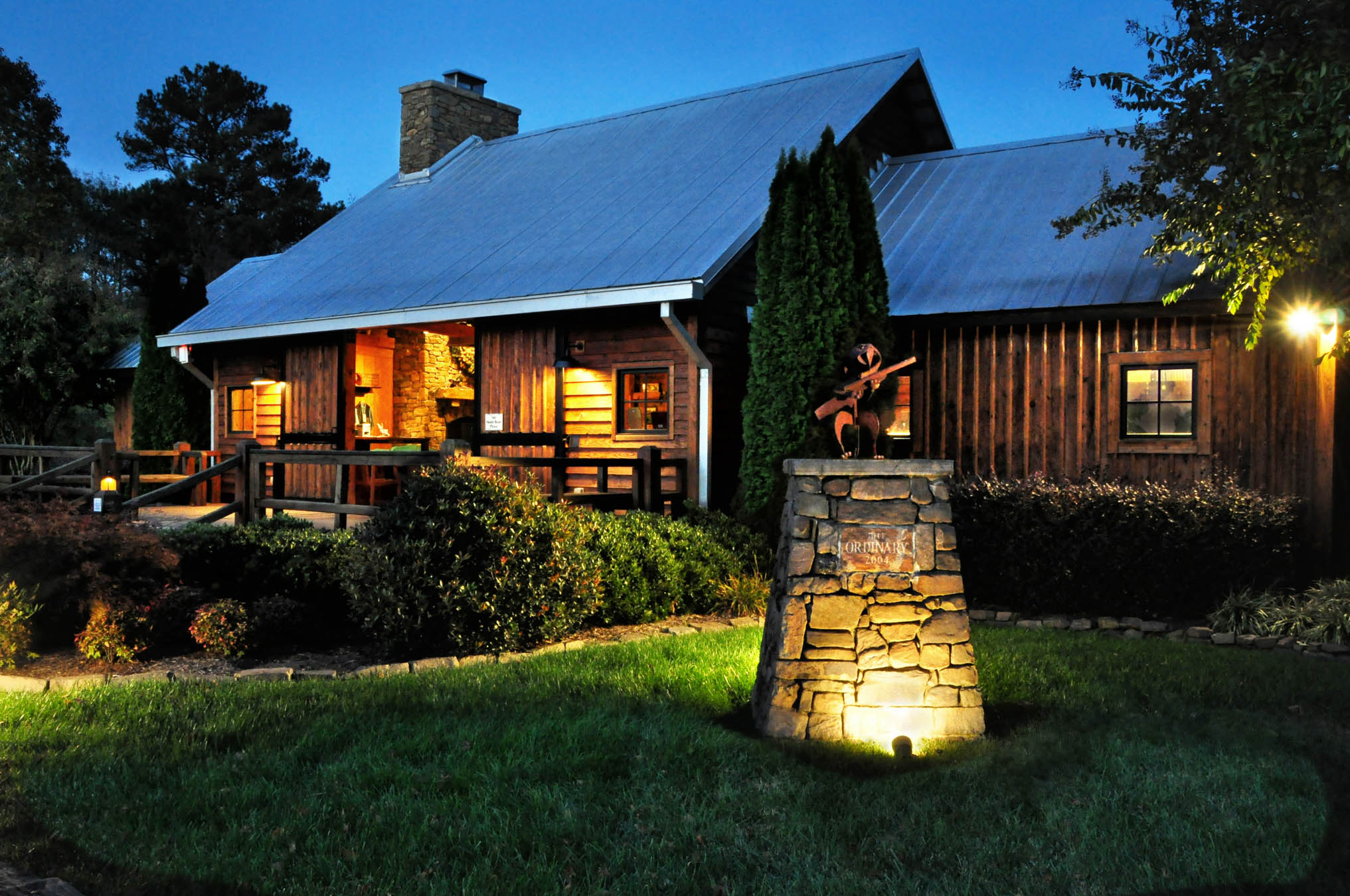


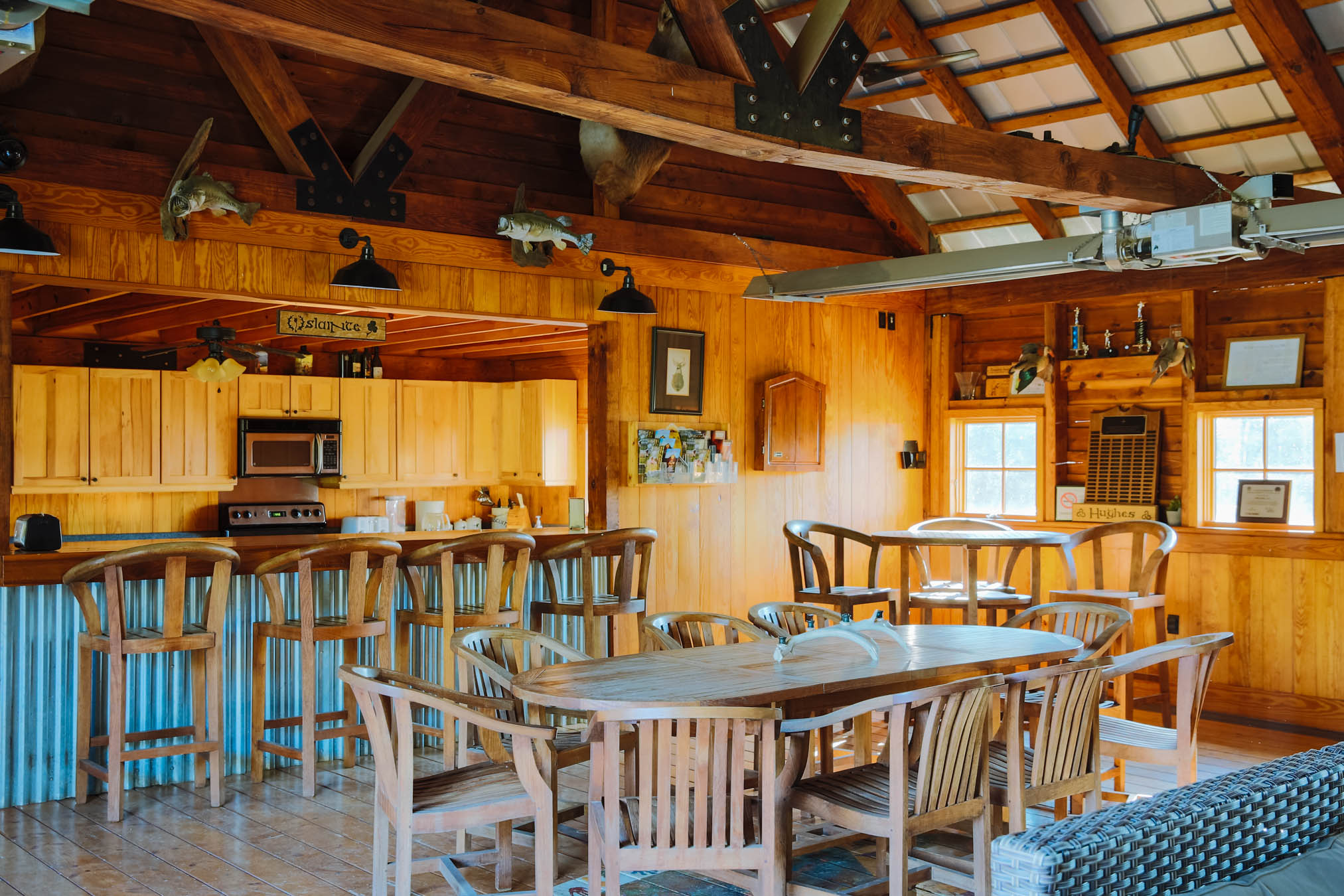
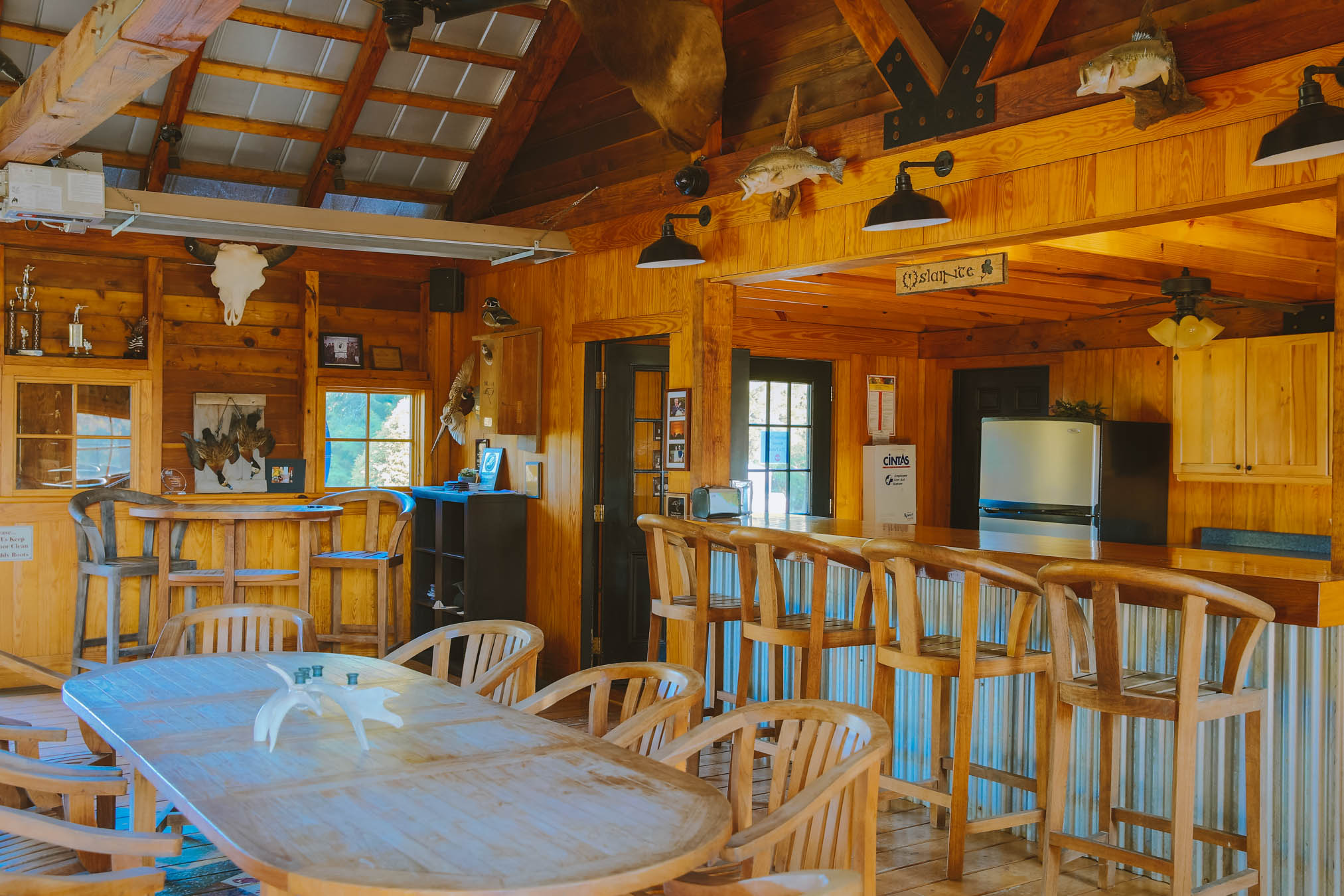


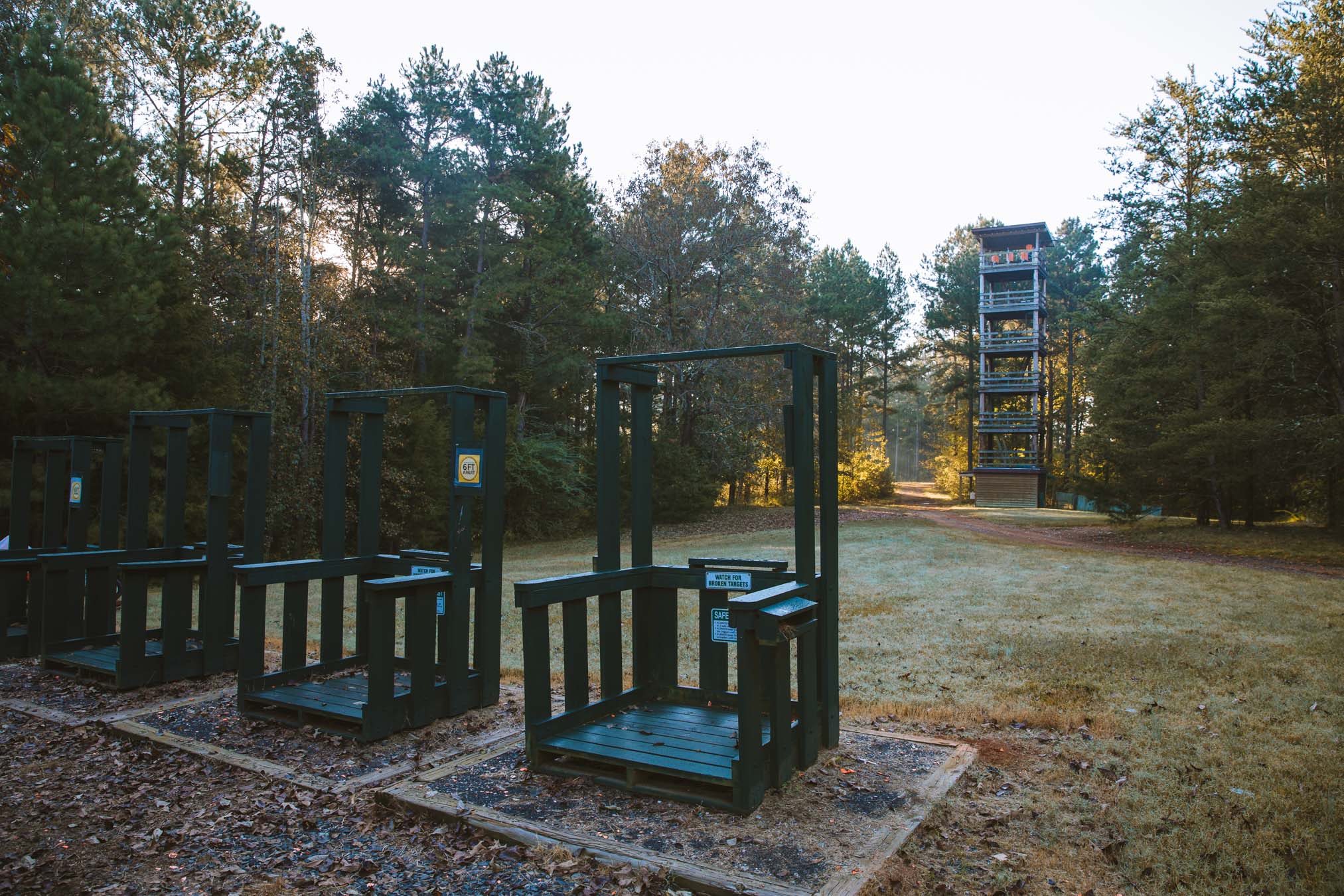

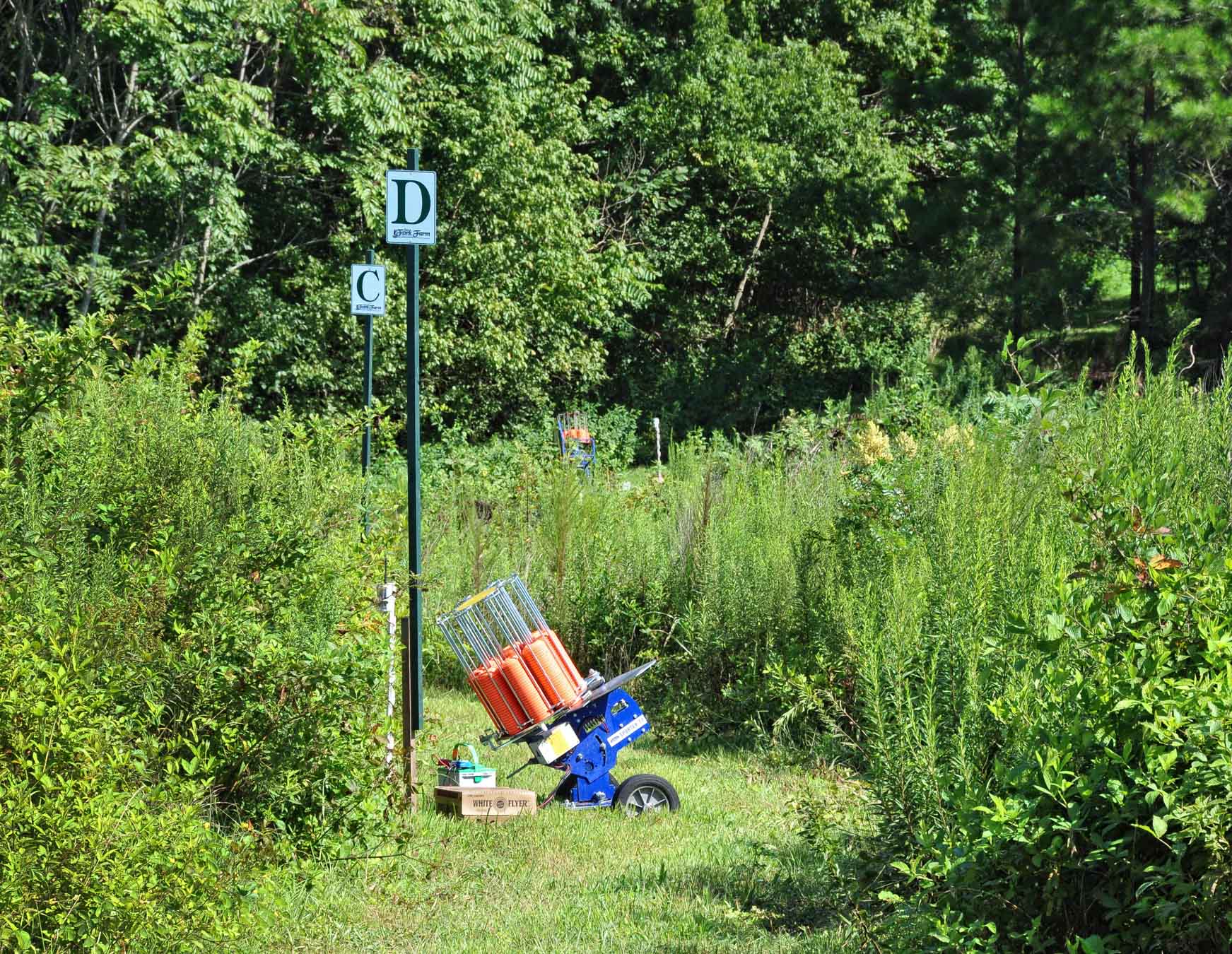






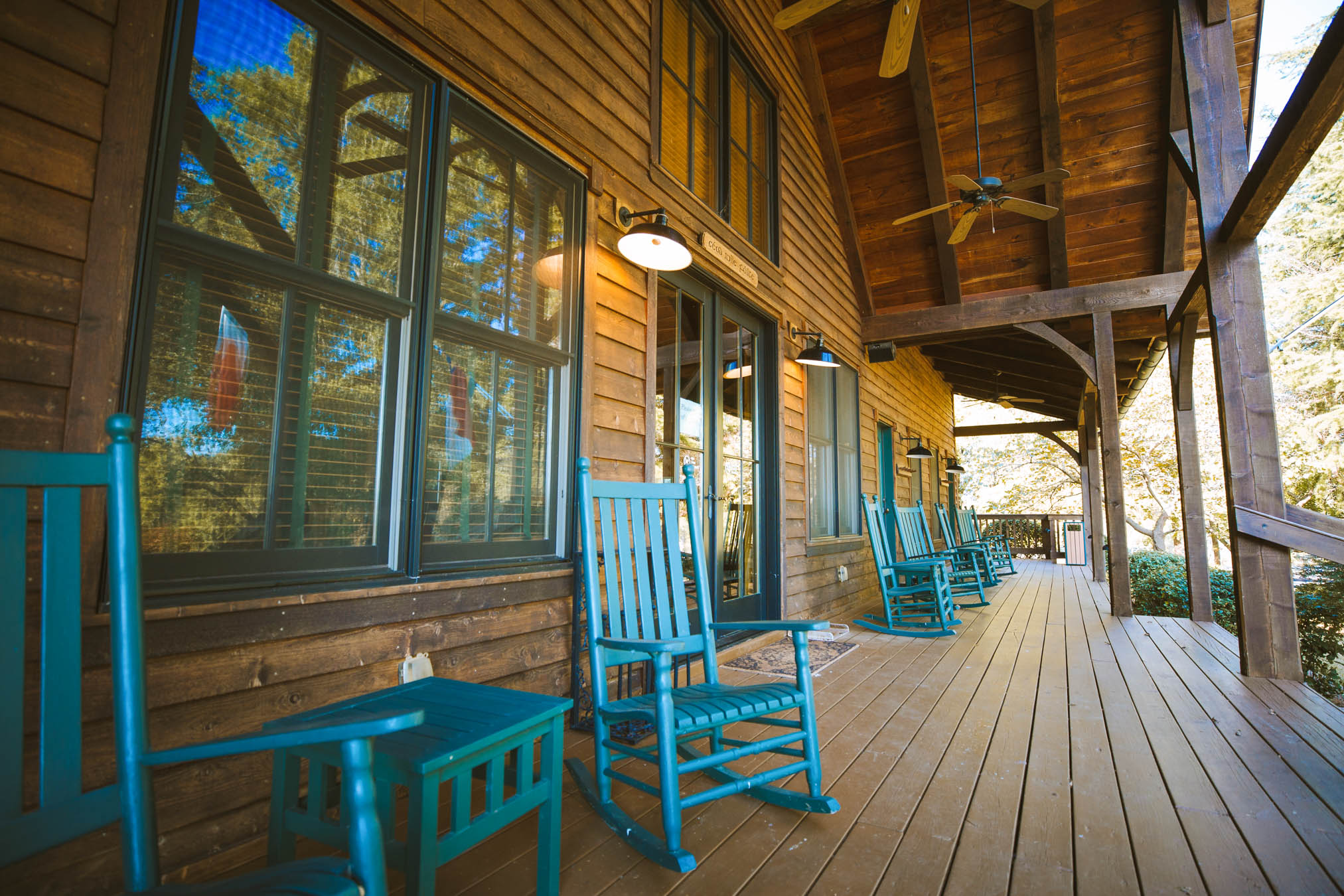
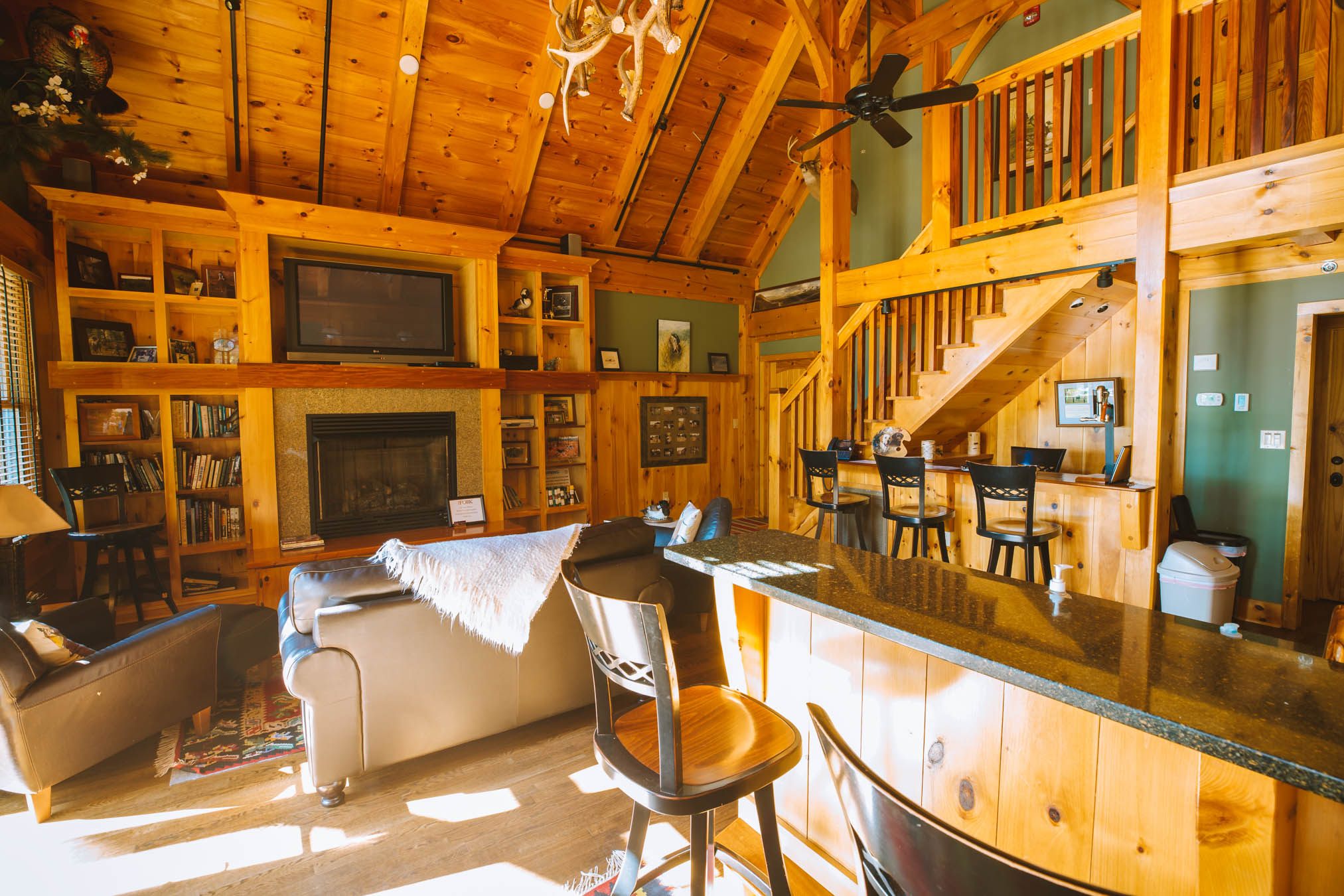


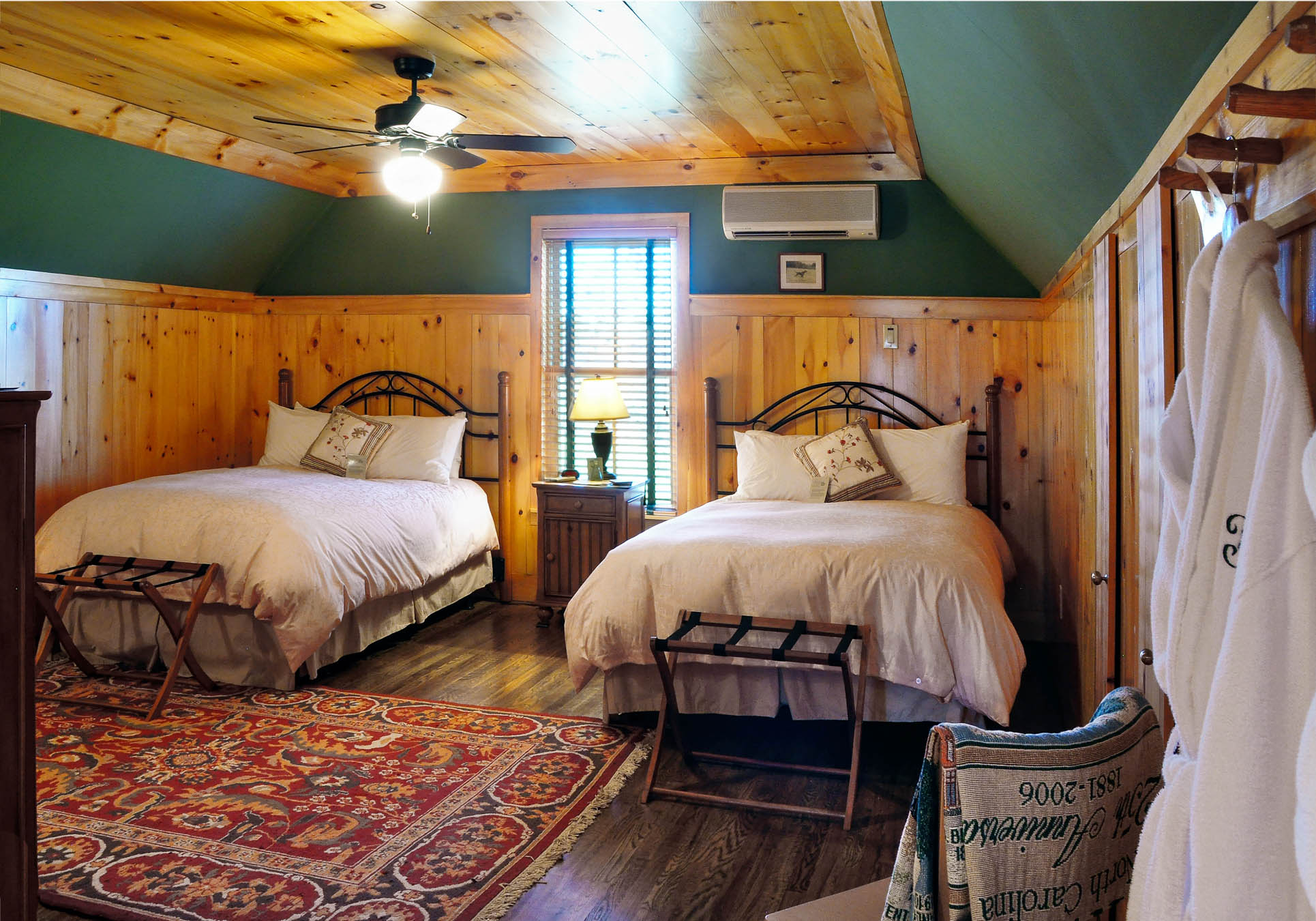
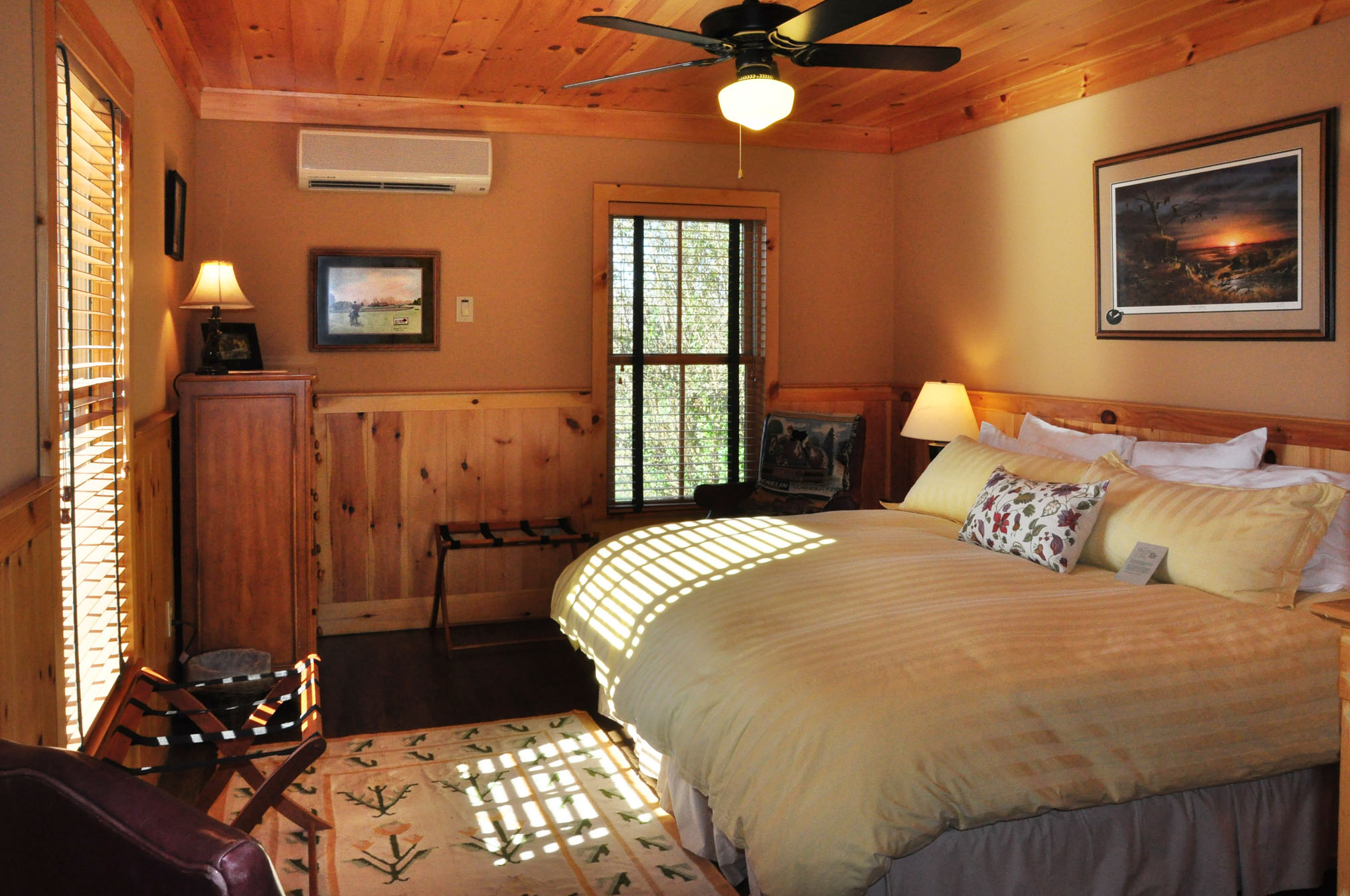
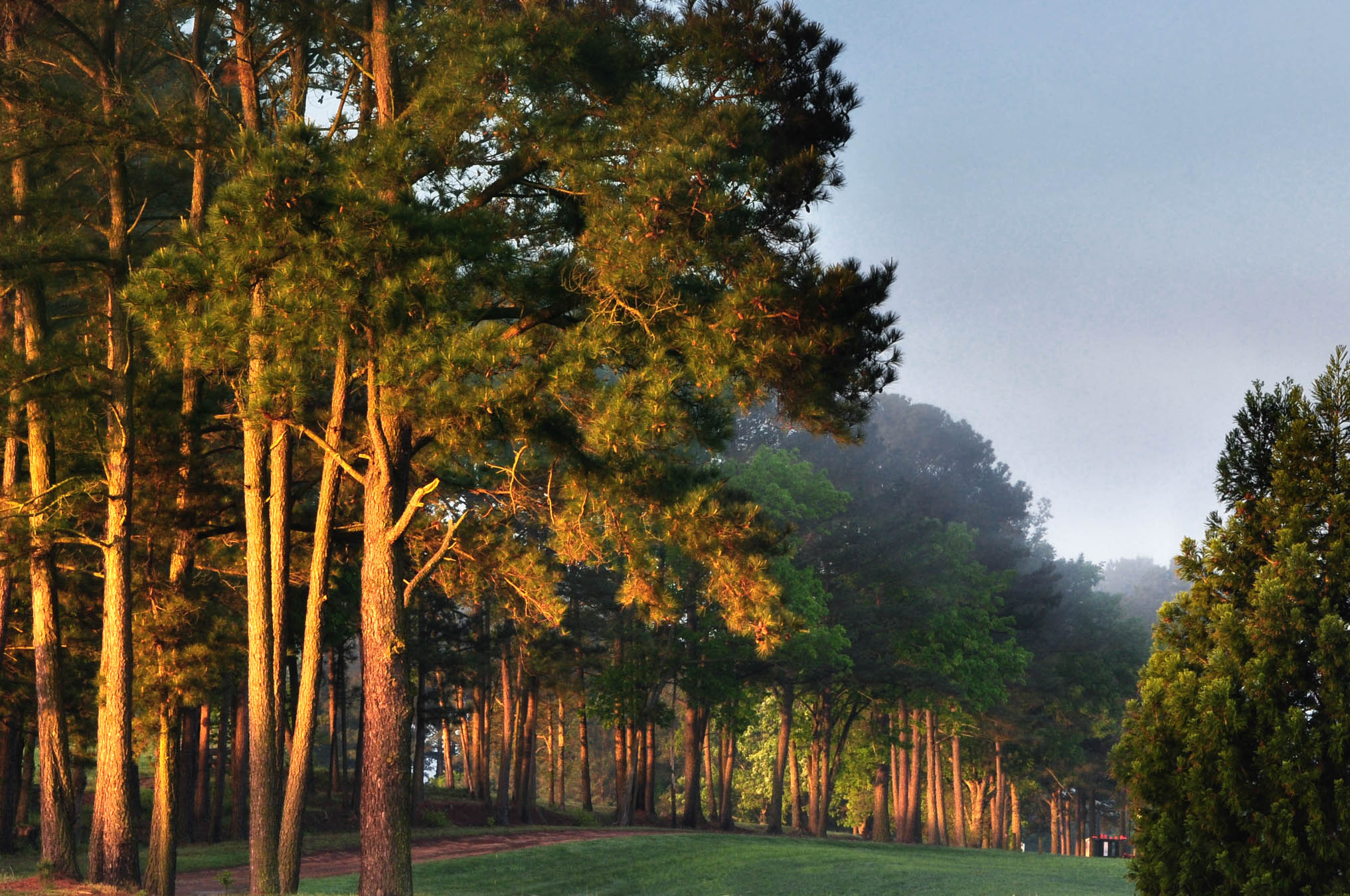


























































































































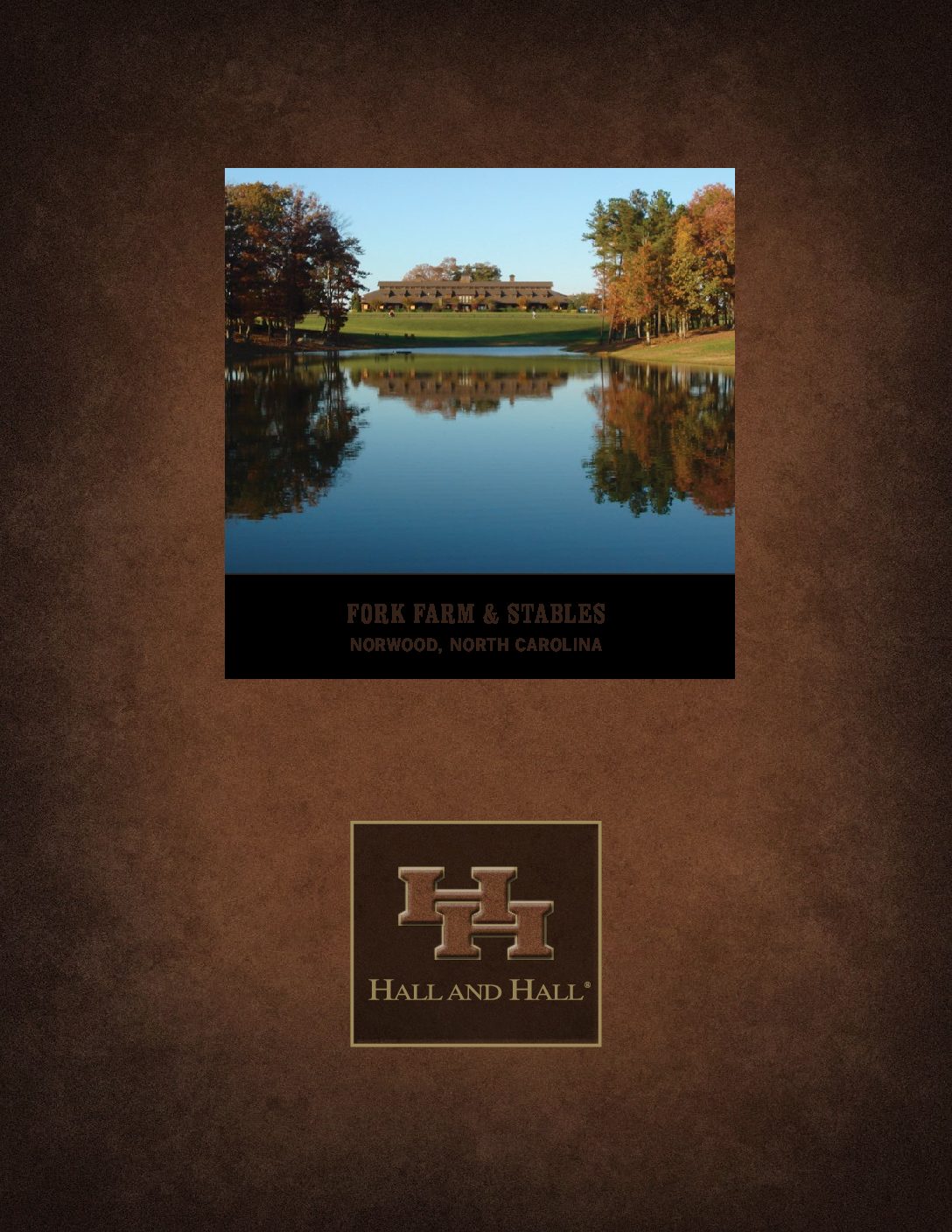
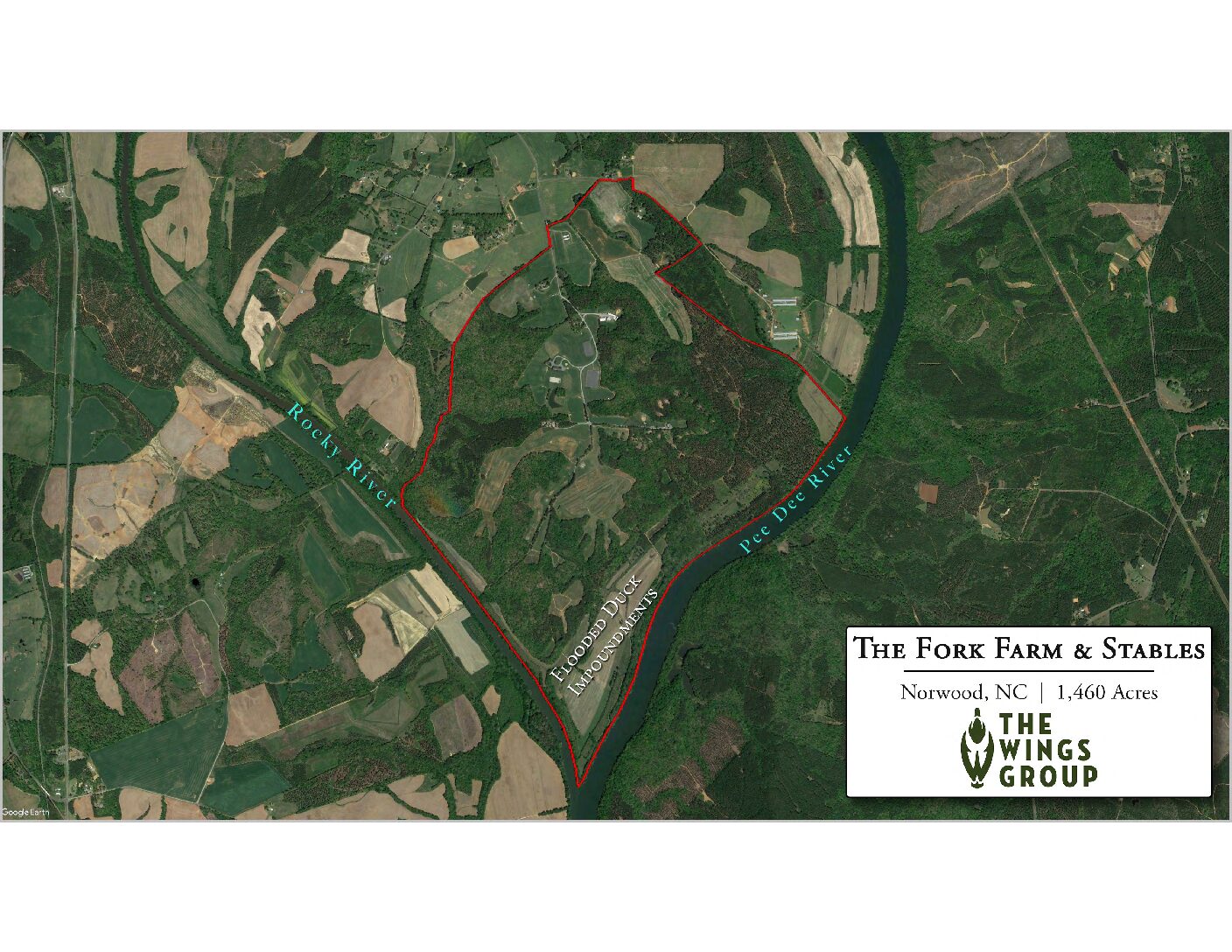

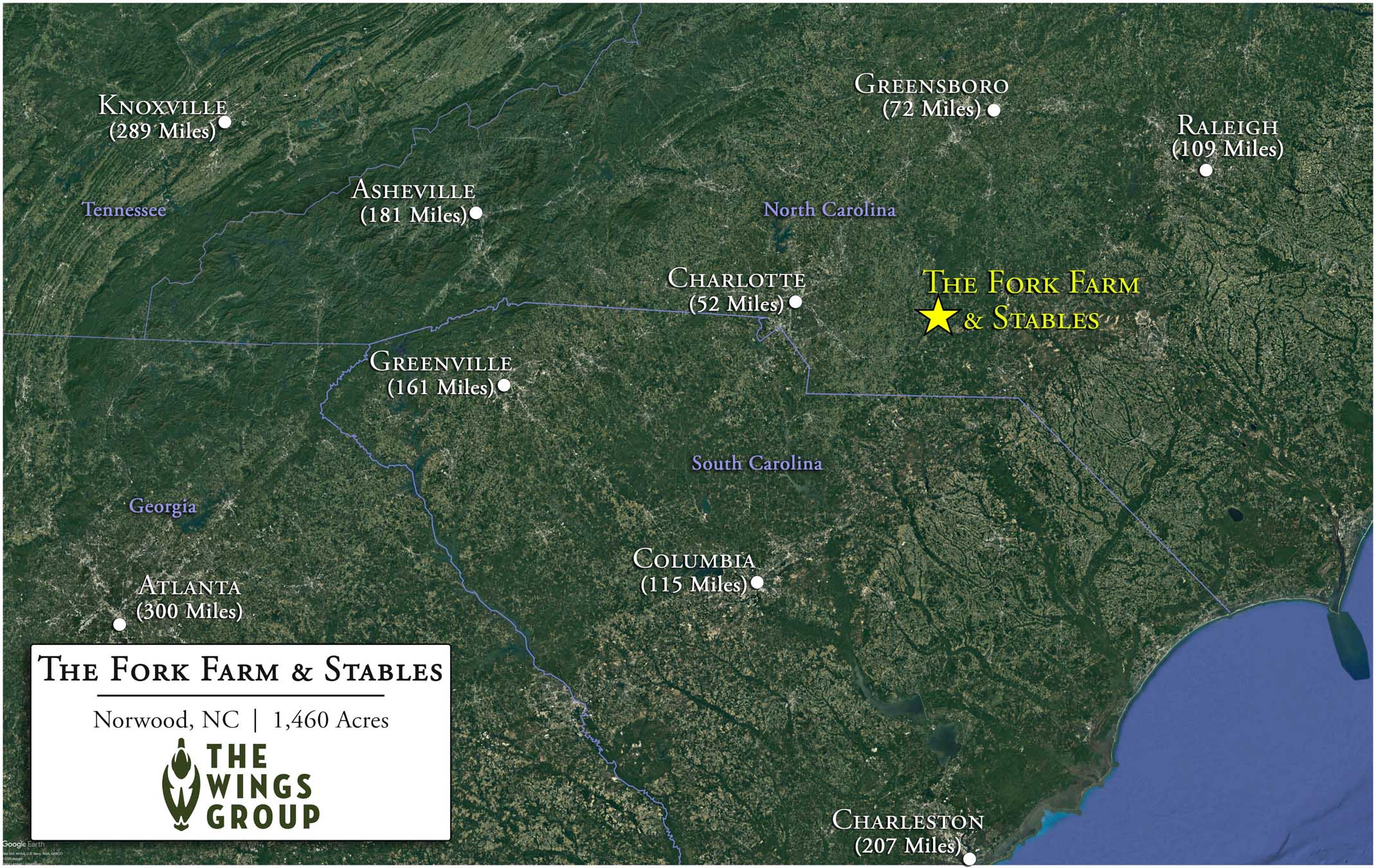


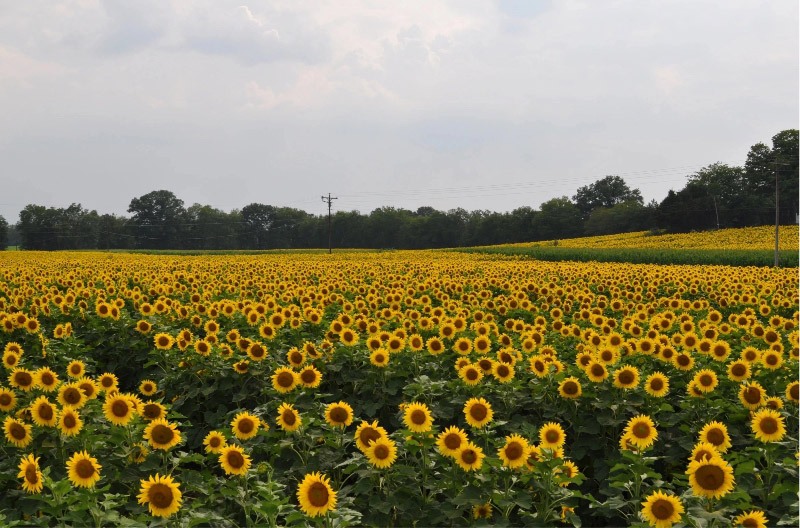
Broker’s Comment
“The Fork is the type of the property that resonates with anyone who loves land and the outdoors. Its scenery and natural resources are apparent, but dig deeper and the seller’s meticulous planning and execution becomes clear. This is the only place I’ve seen upland bird habitat seamlessly integrated within an Olympic-level cross country course. It’s rewarding to be involved in the sale of such a unique property, and we’re excited to see the new owners begin the next chapter of this exceptional farm.”